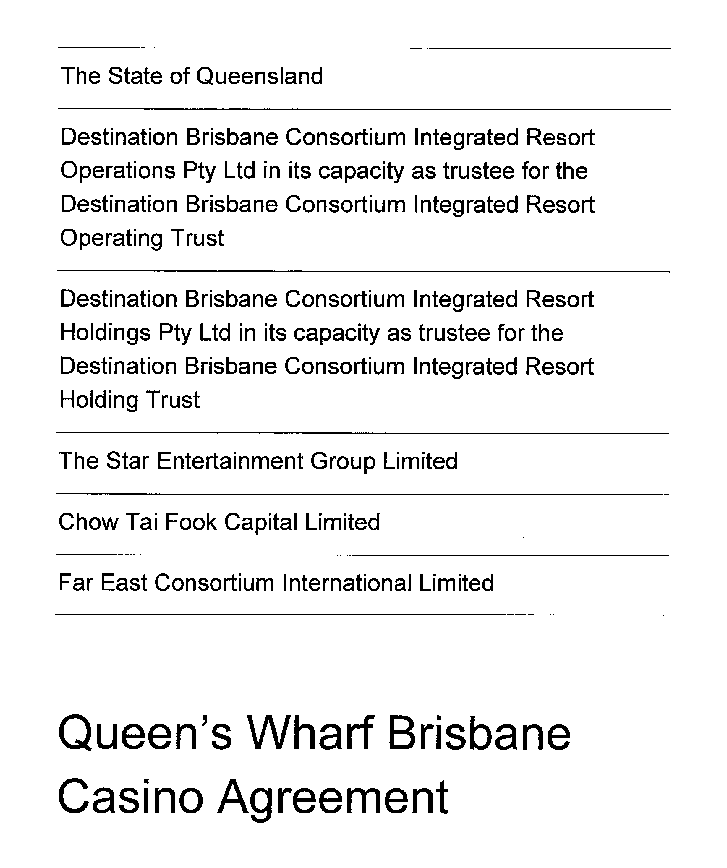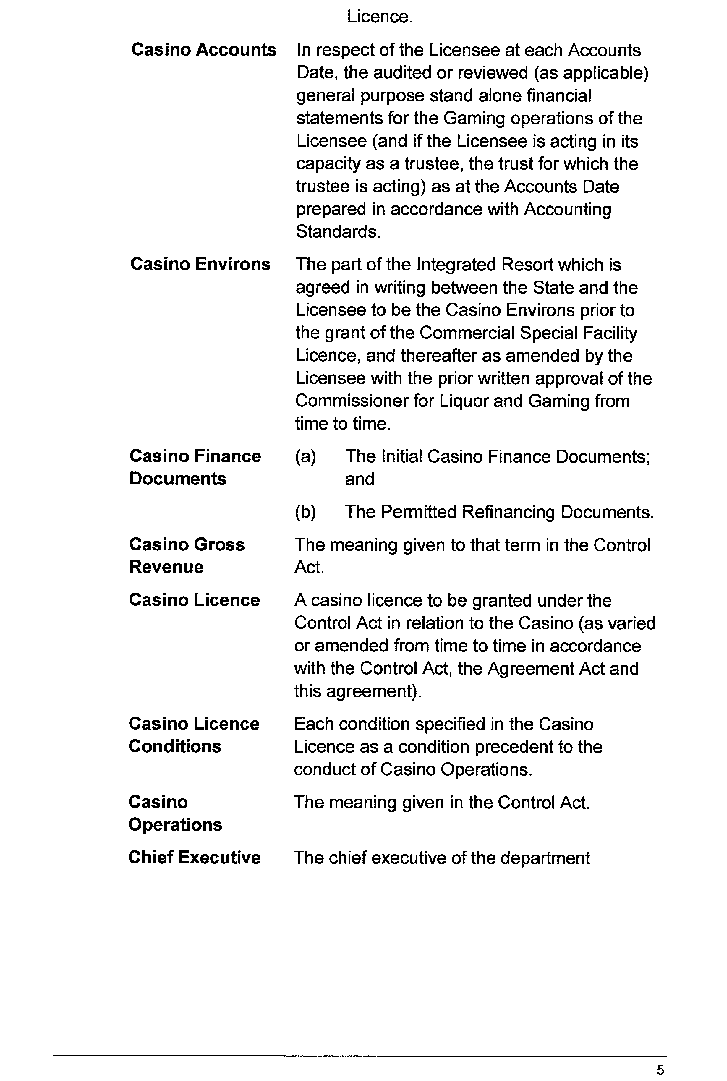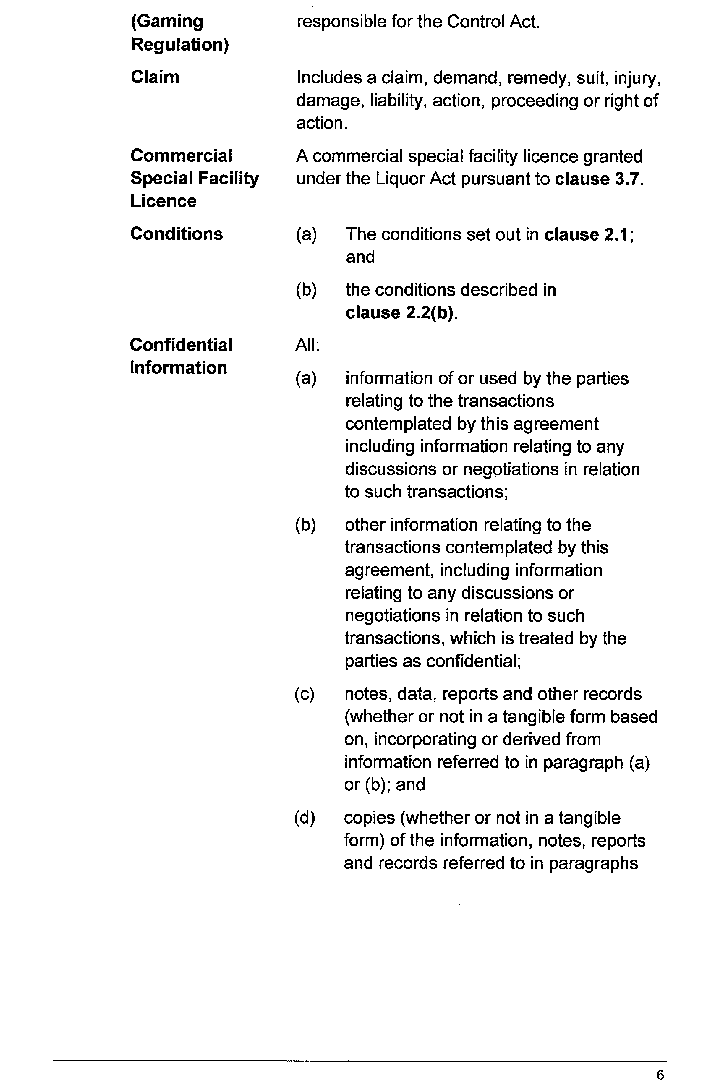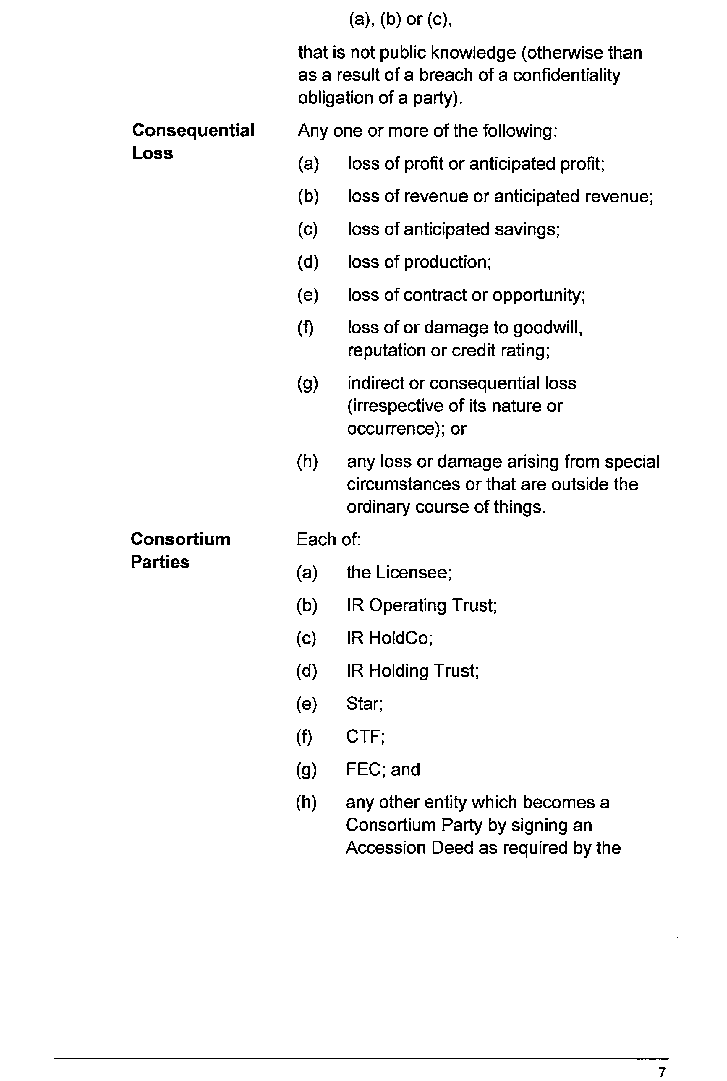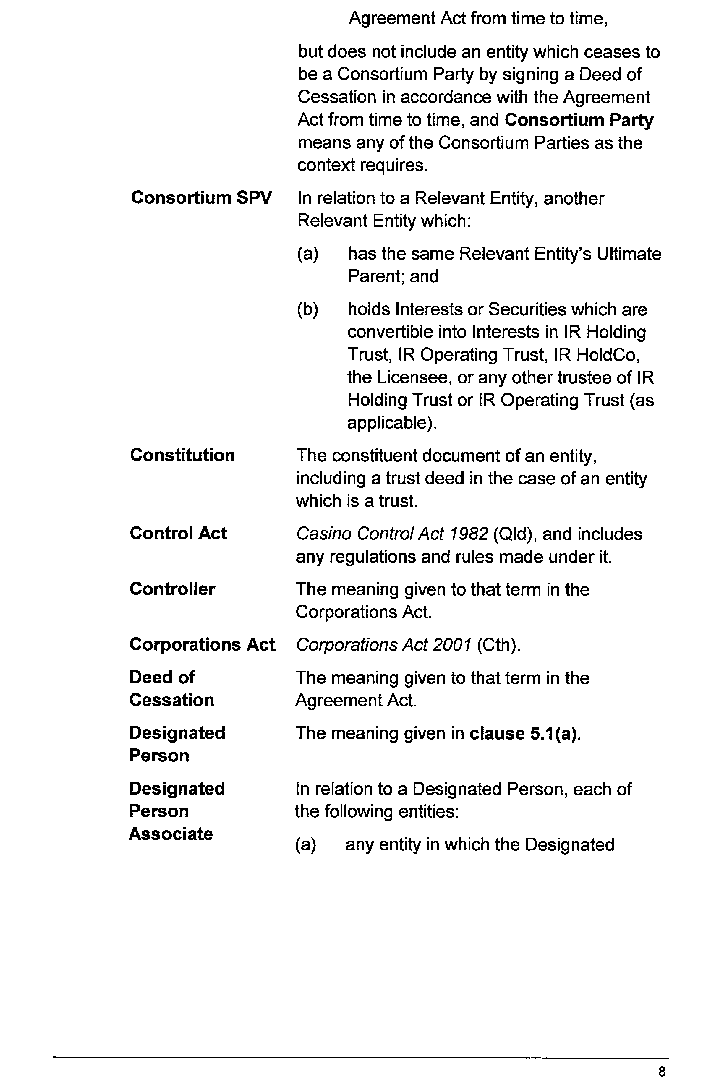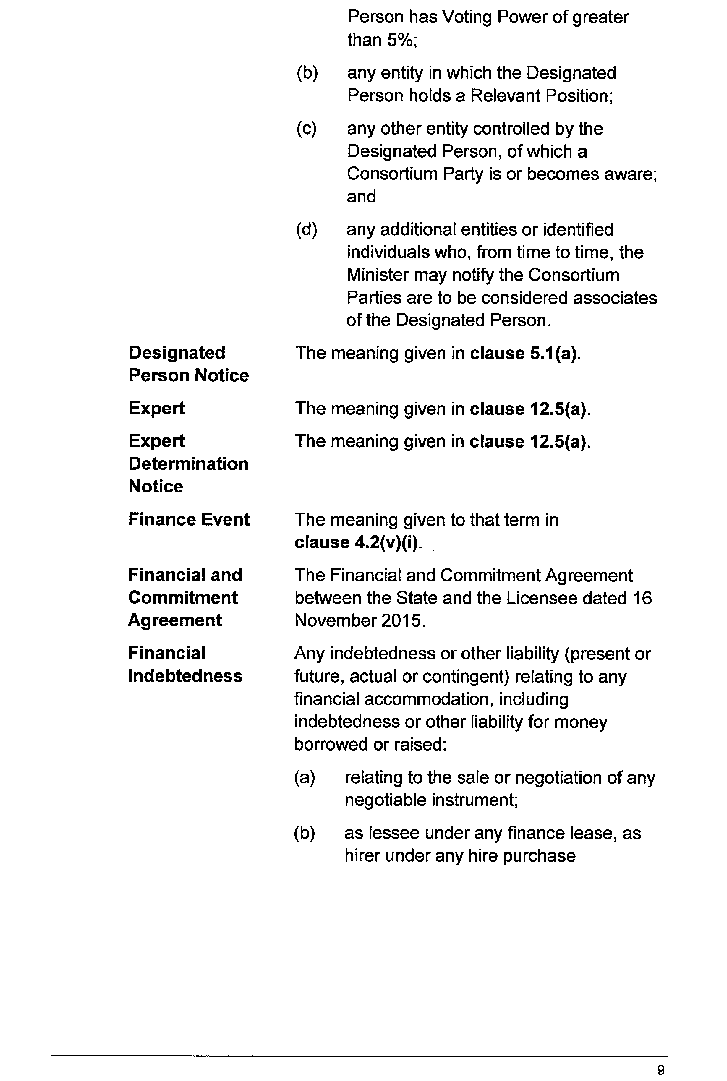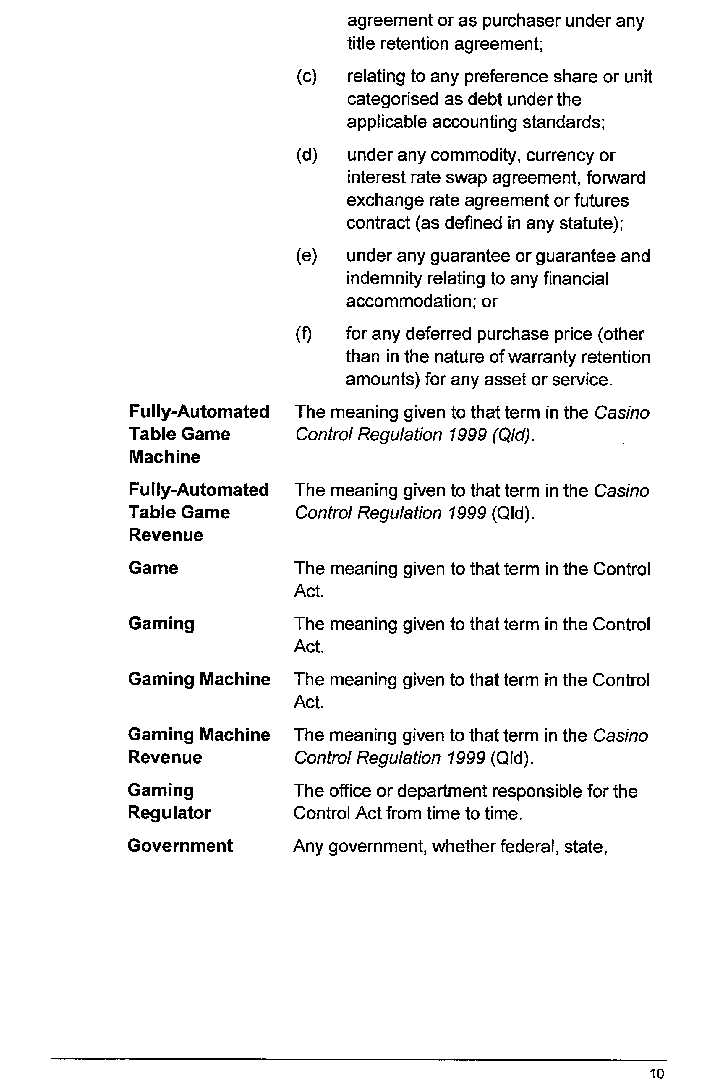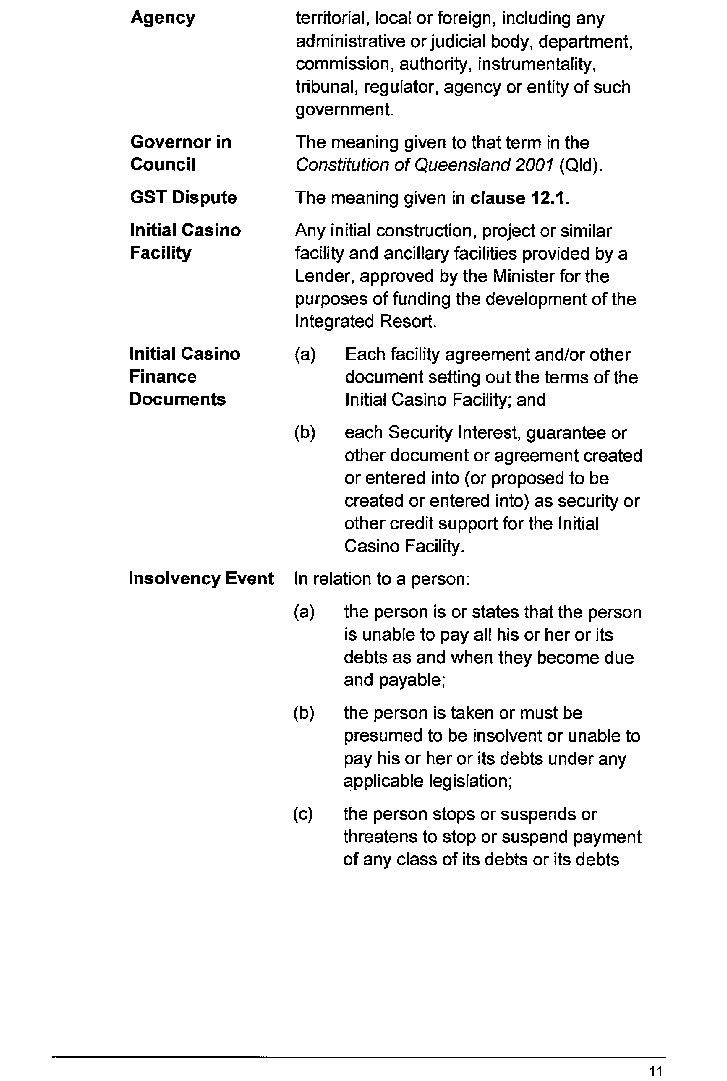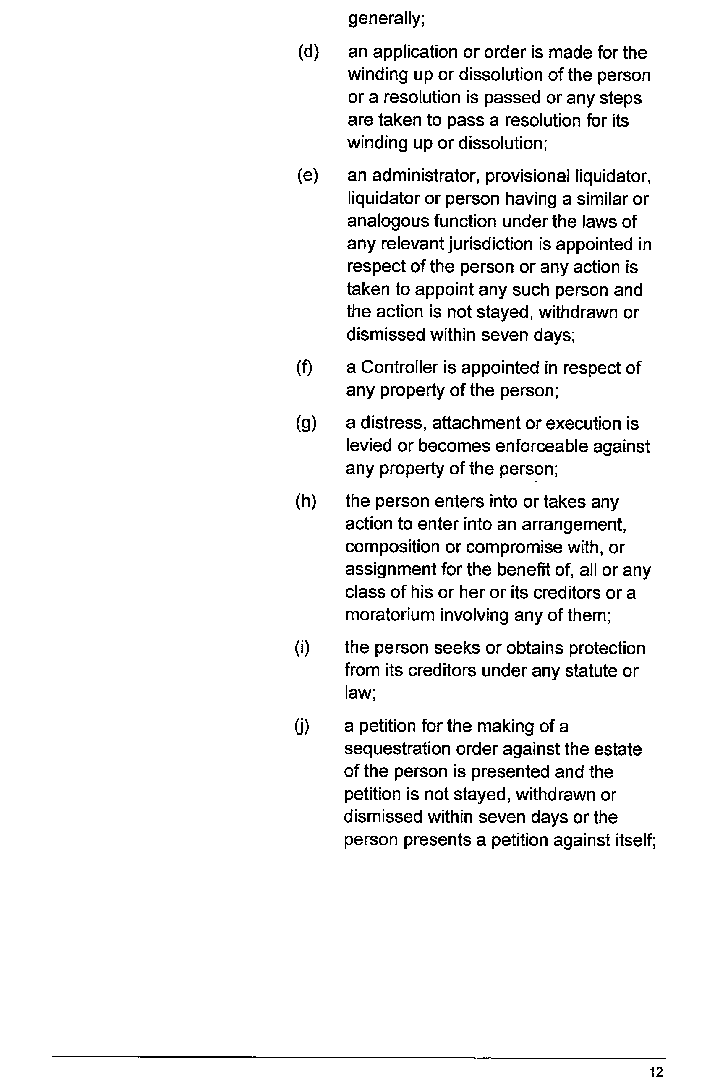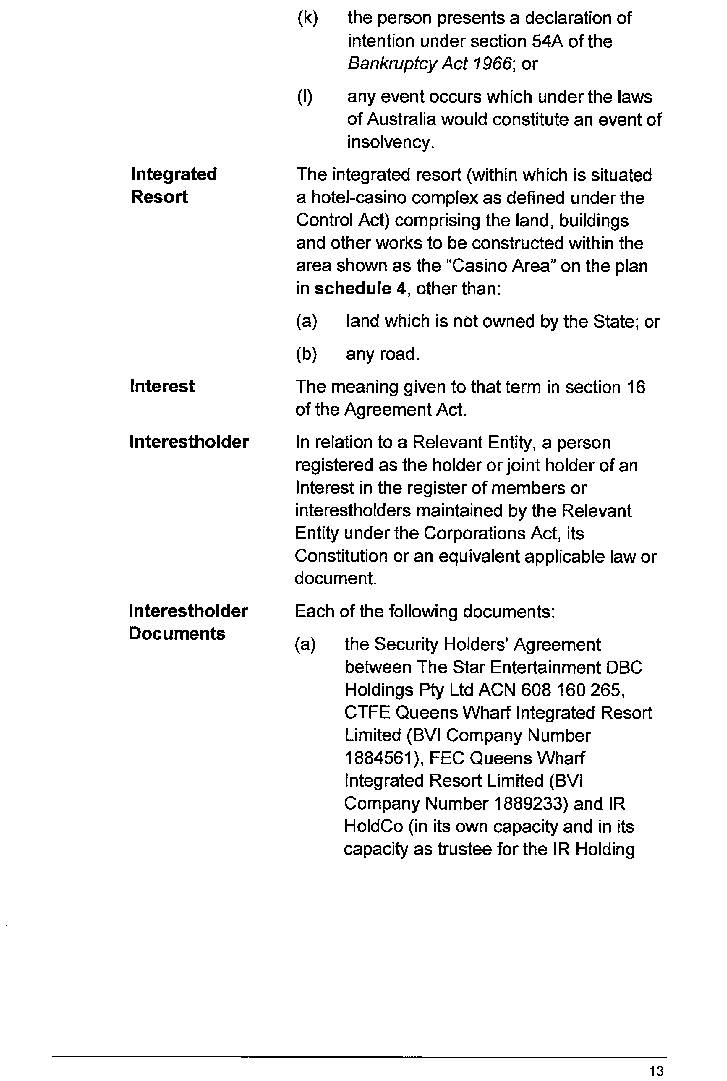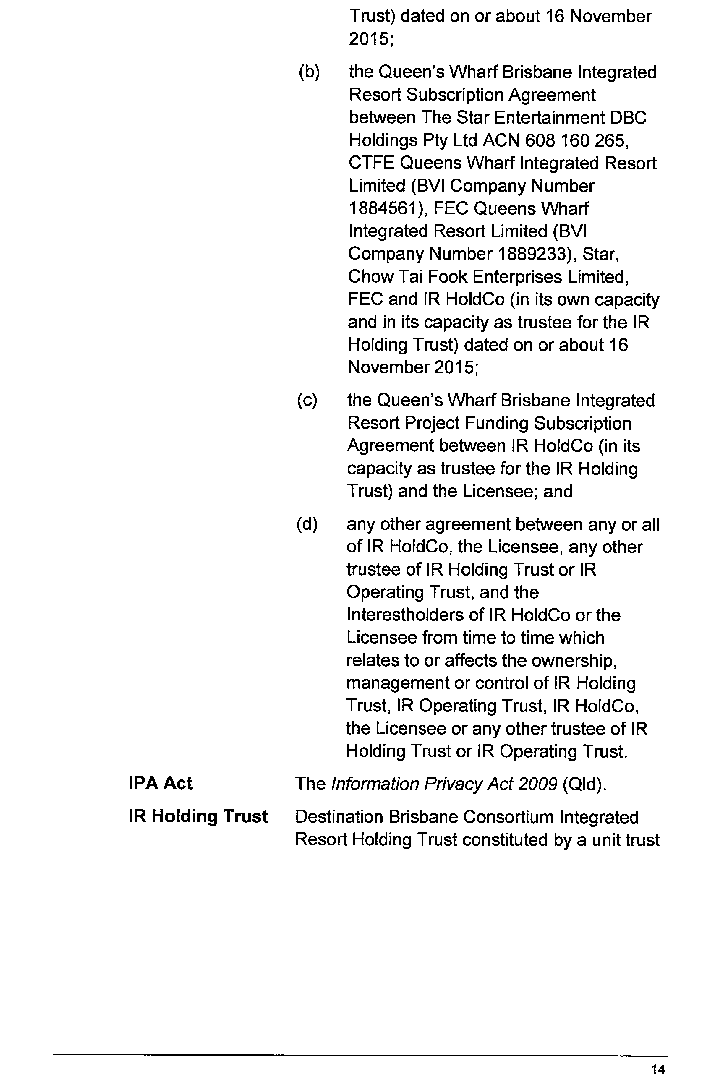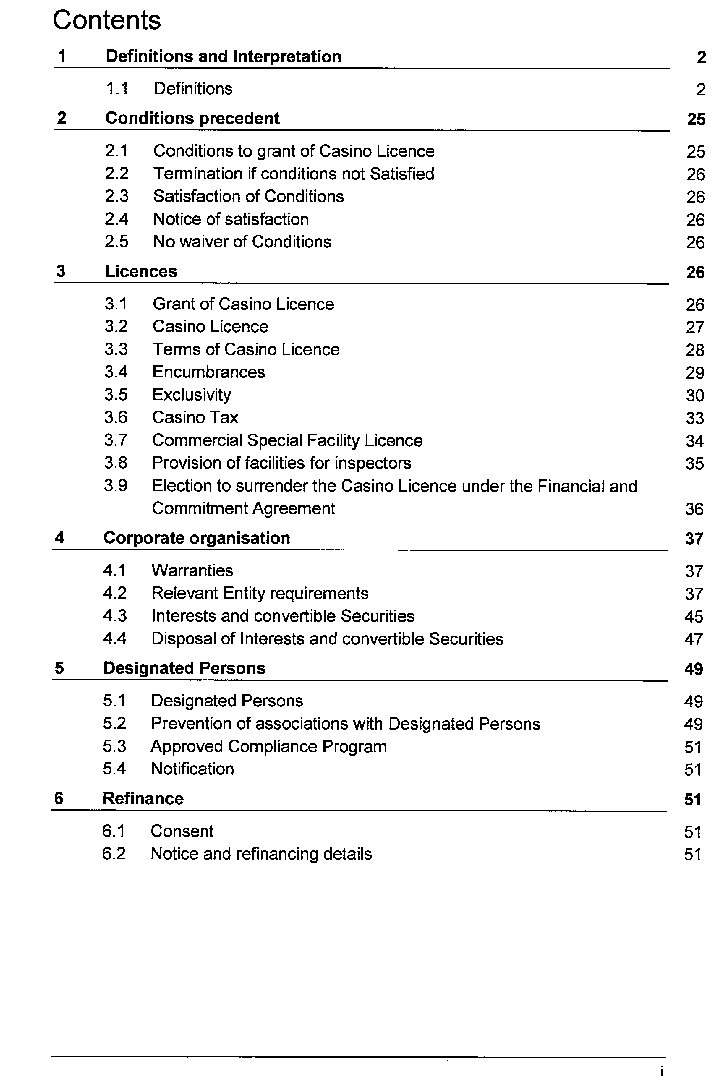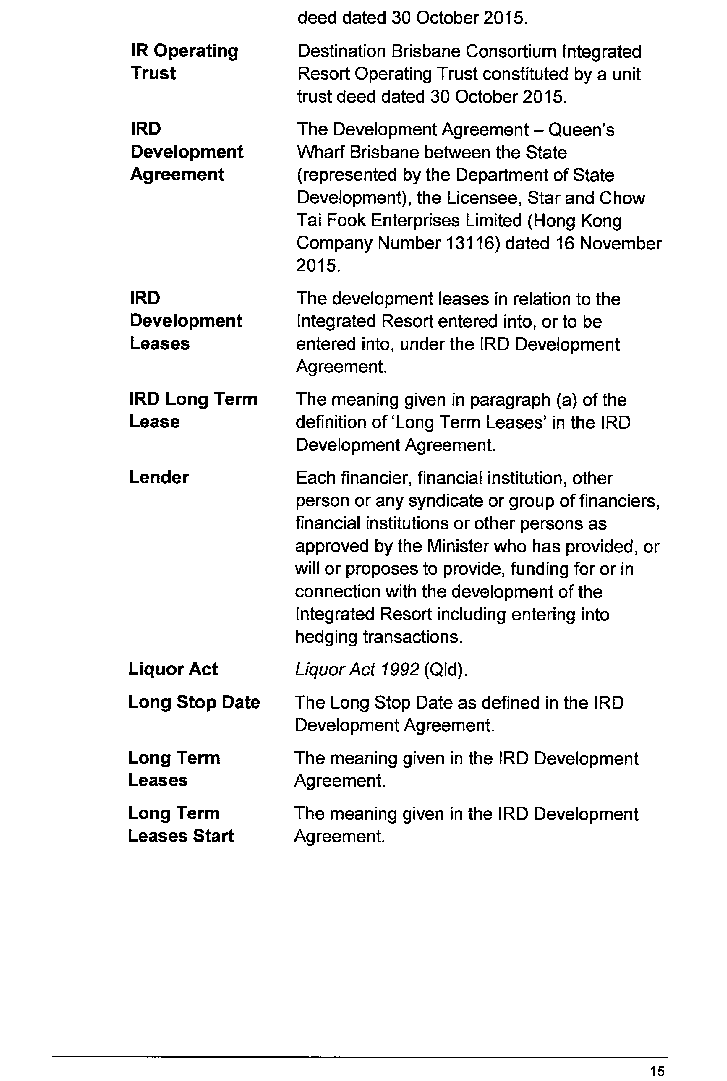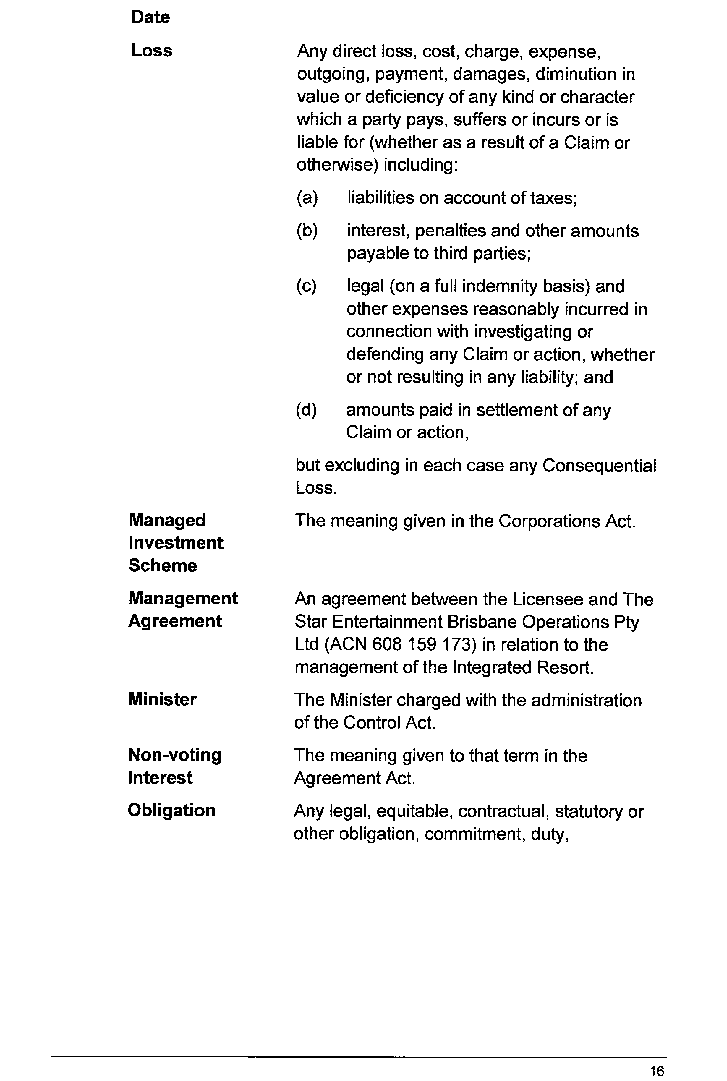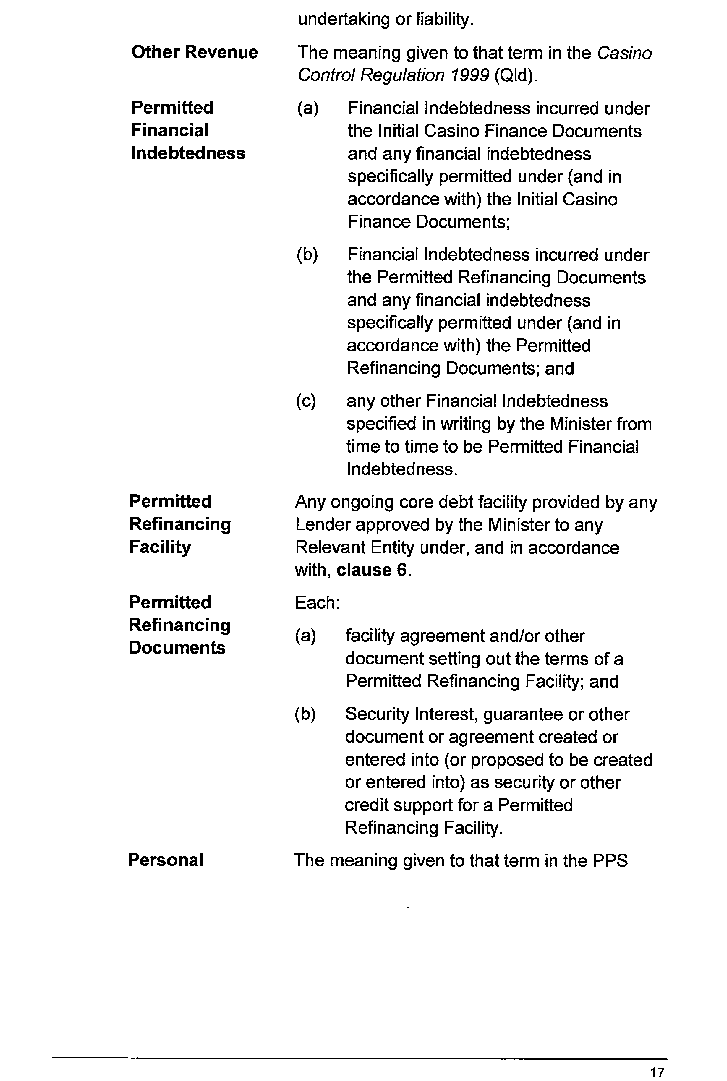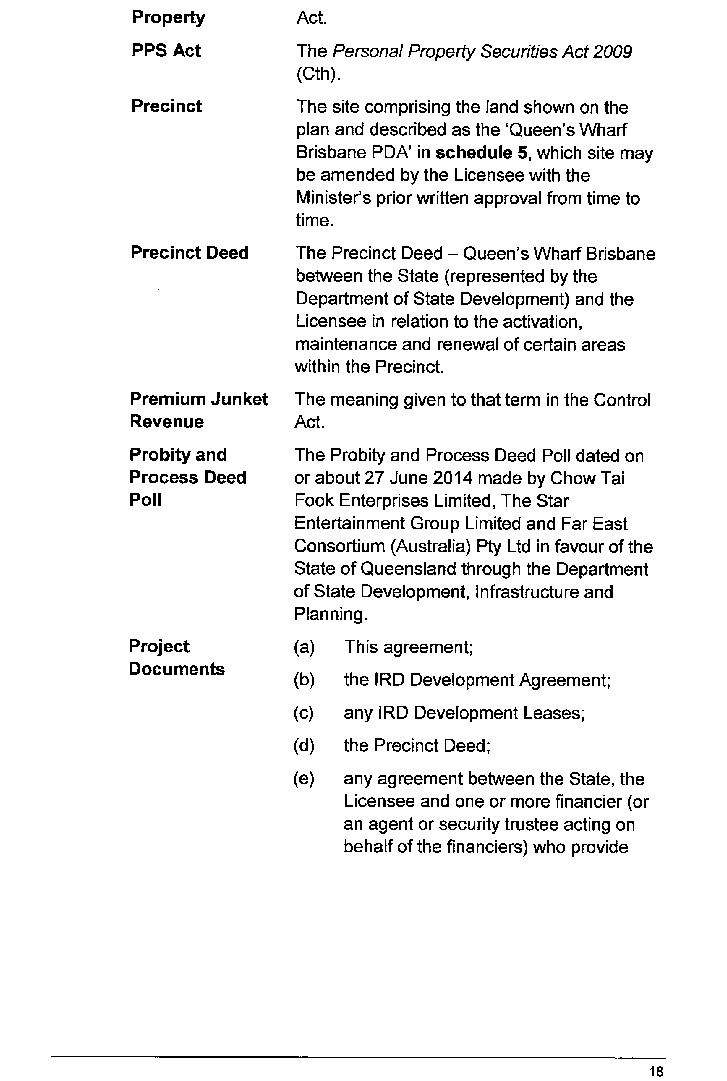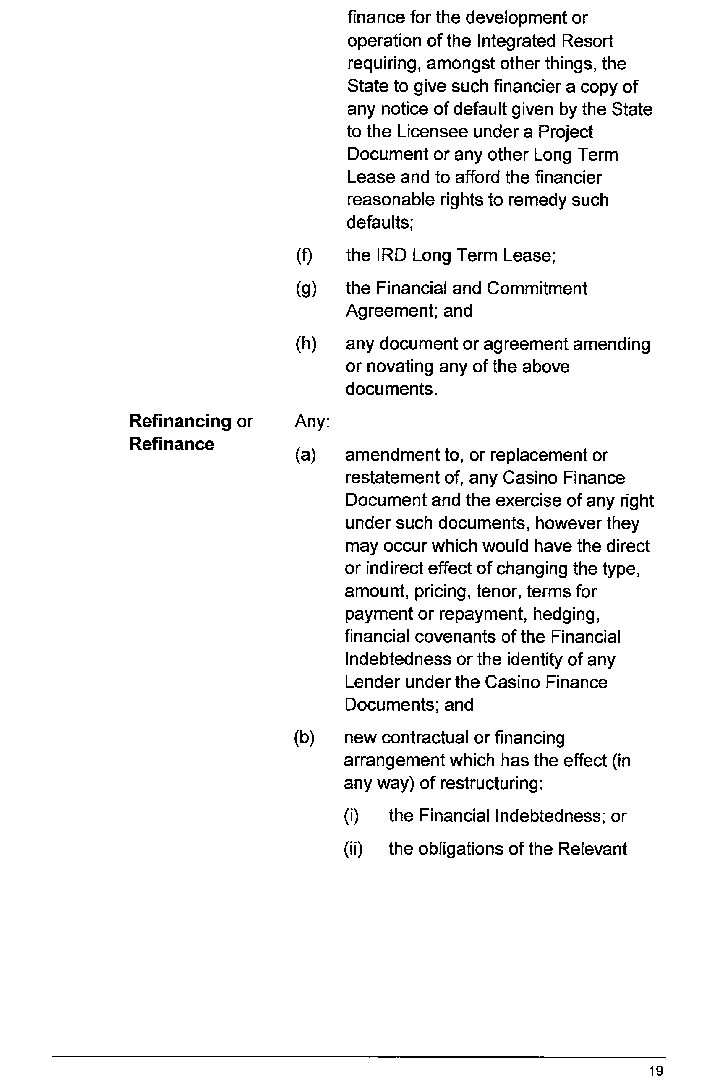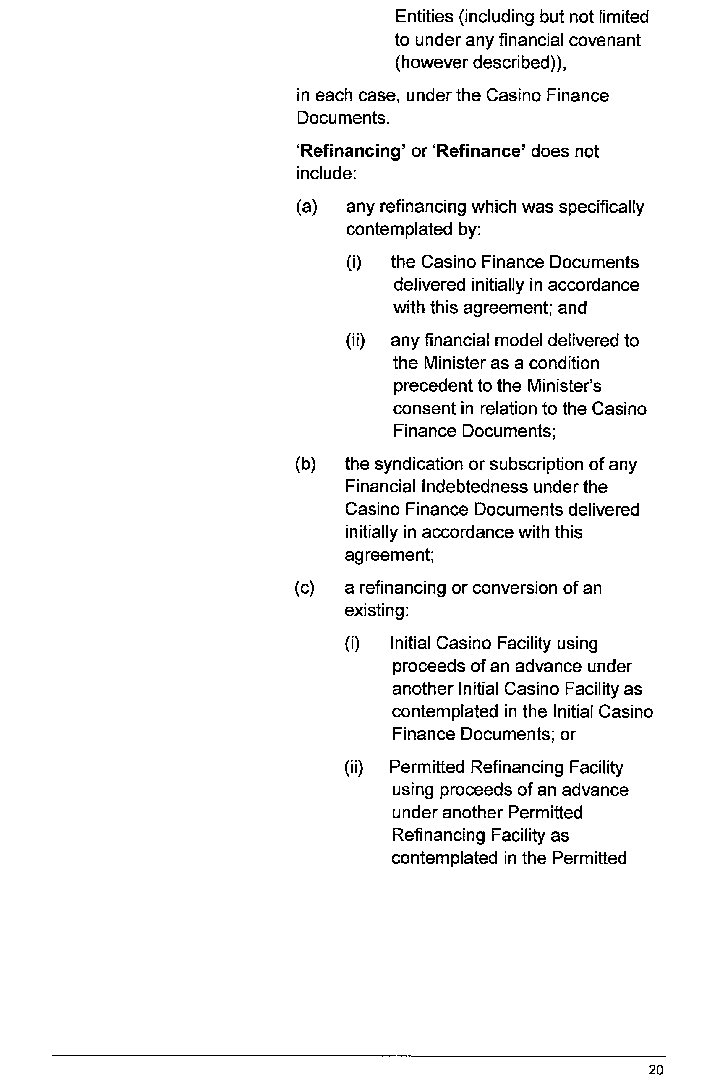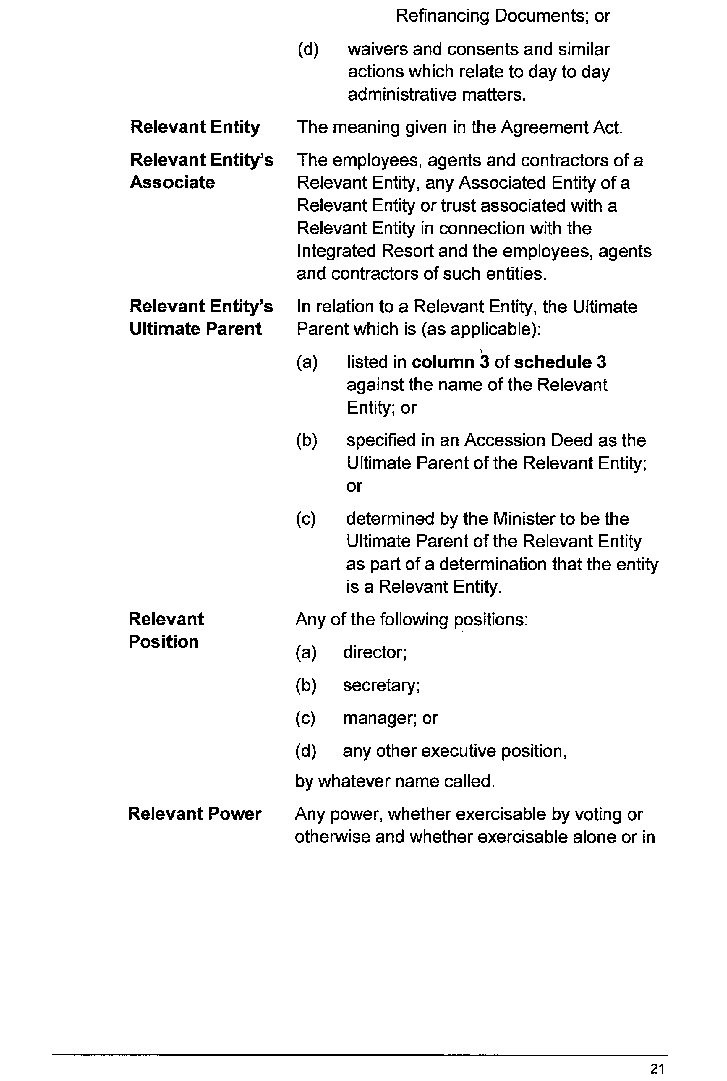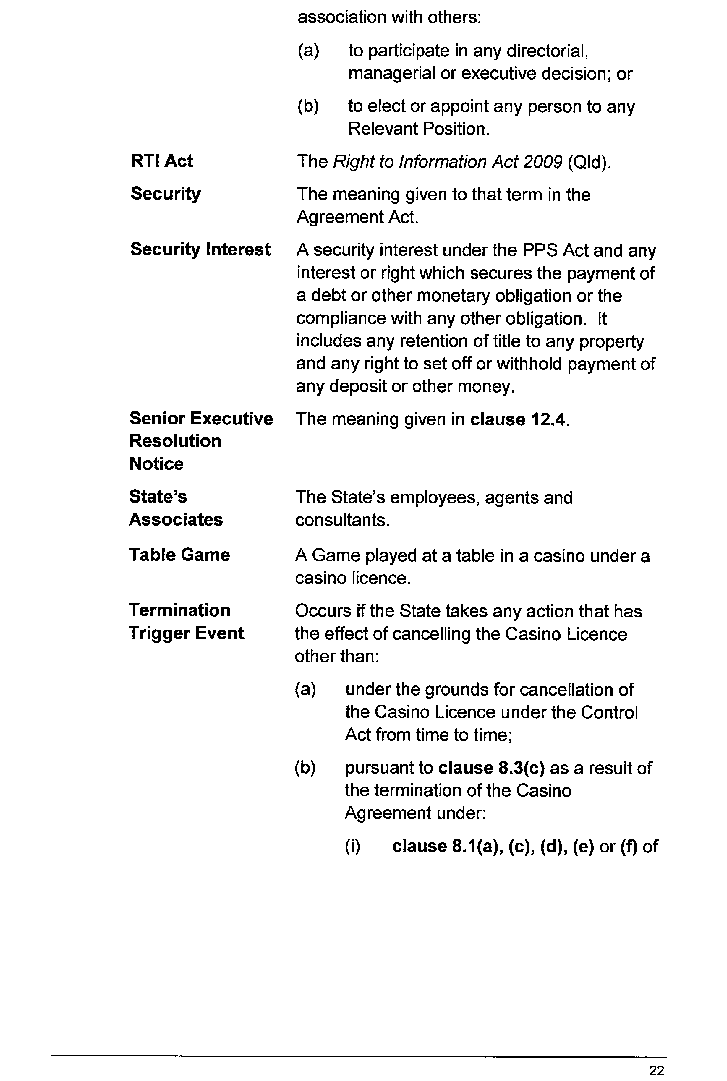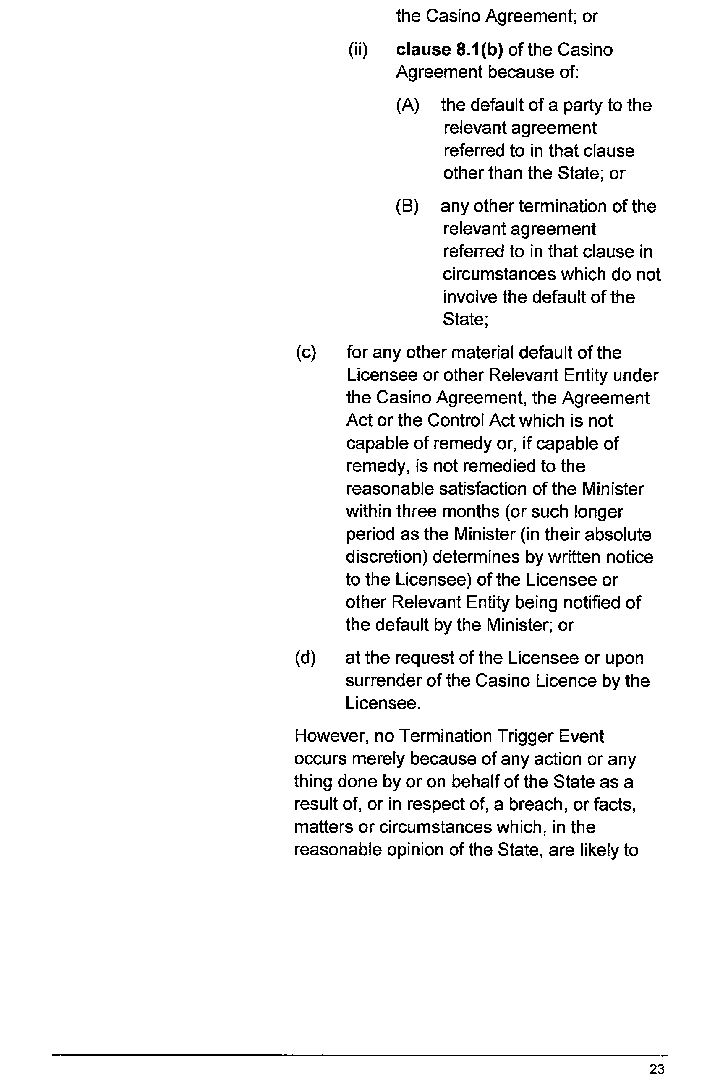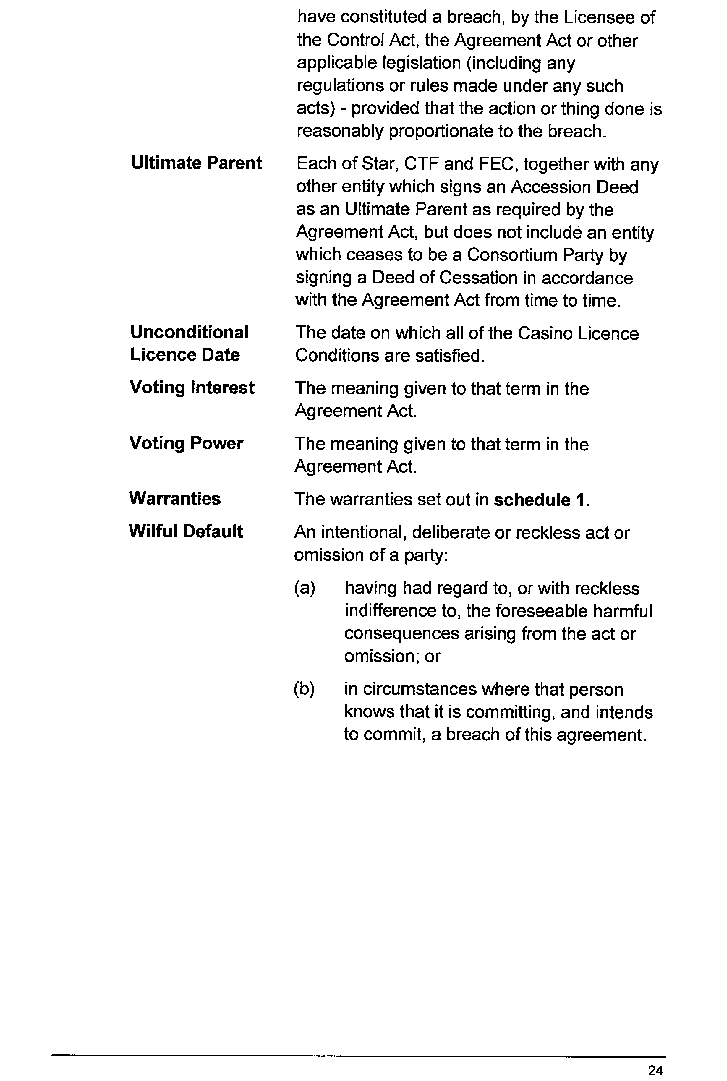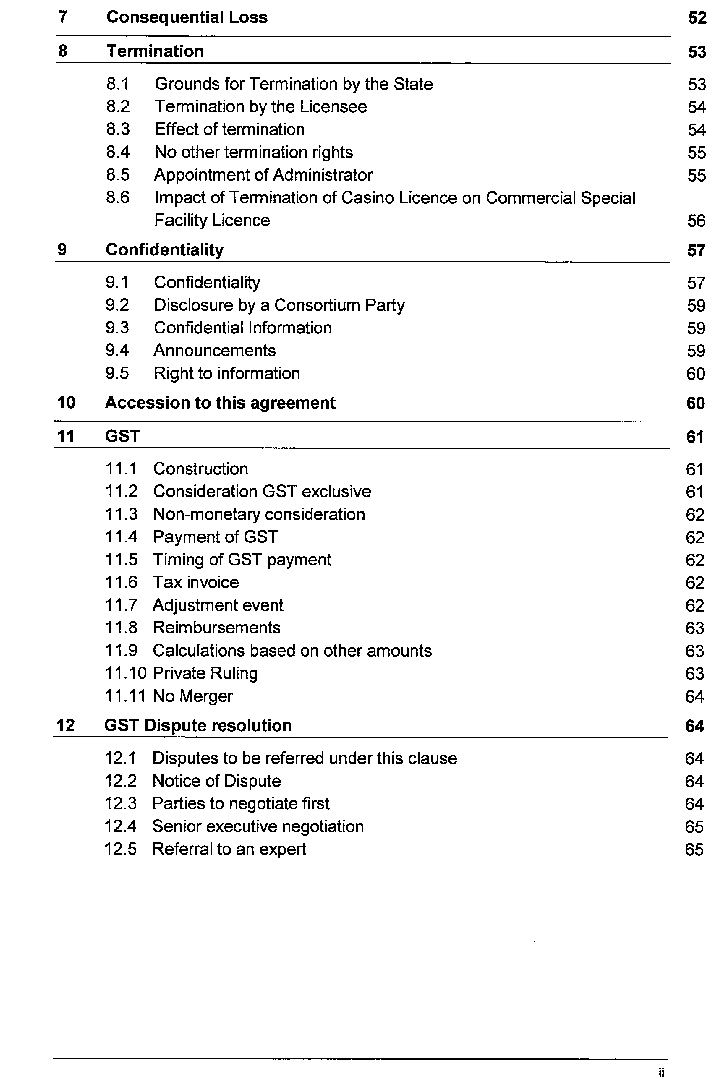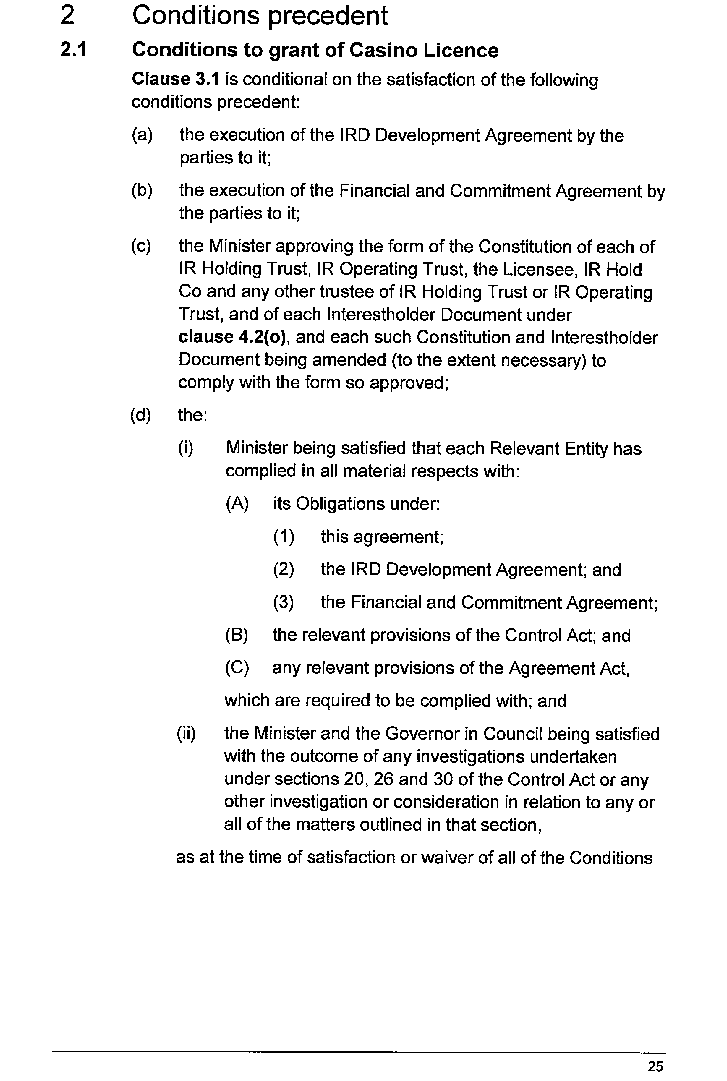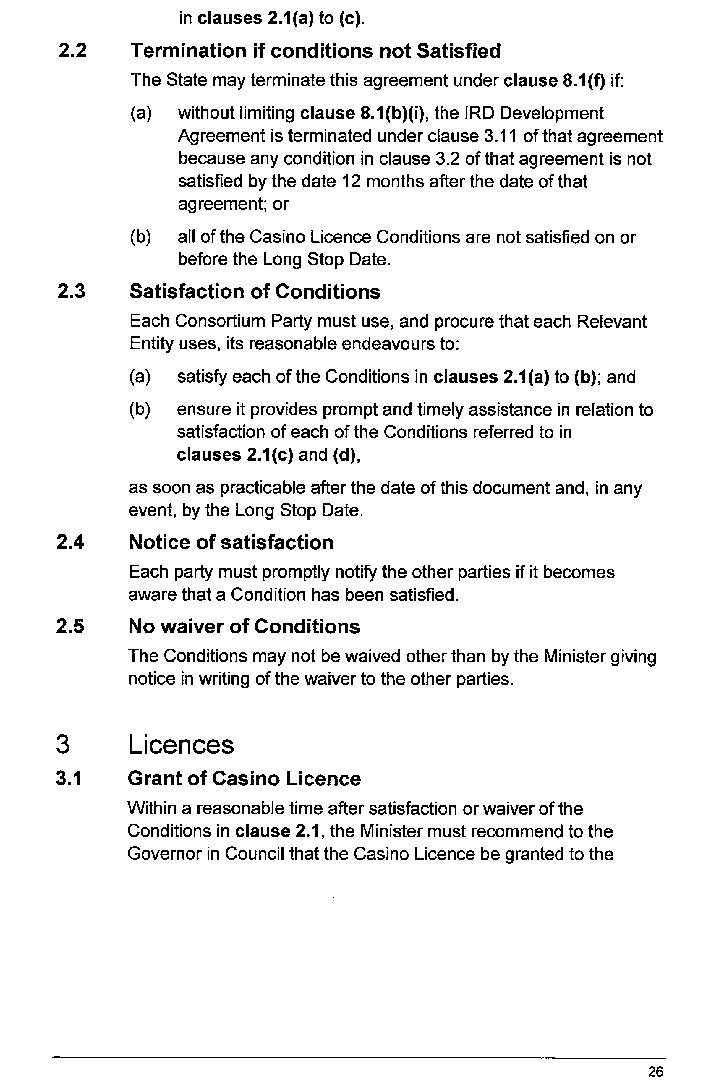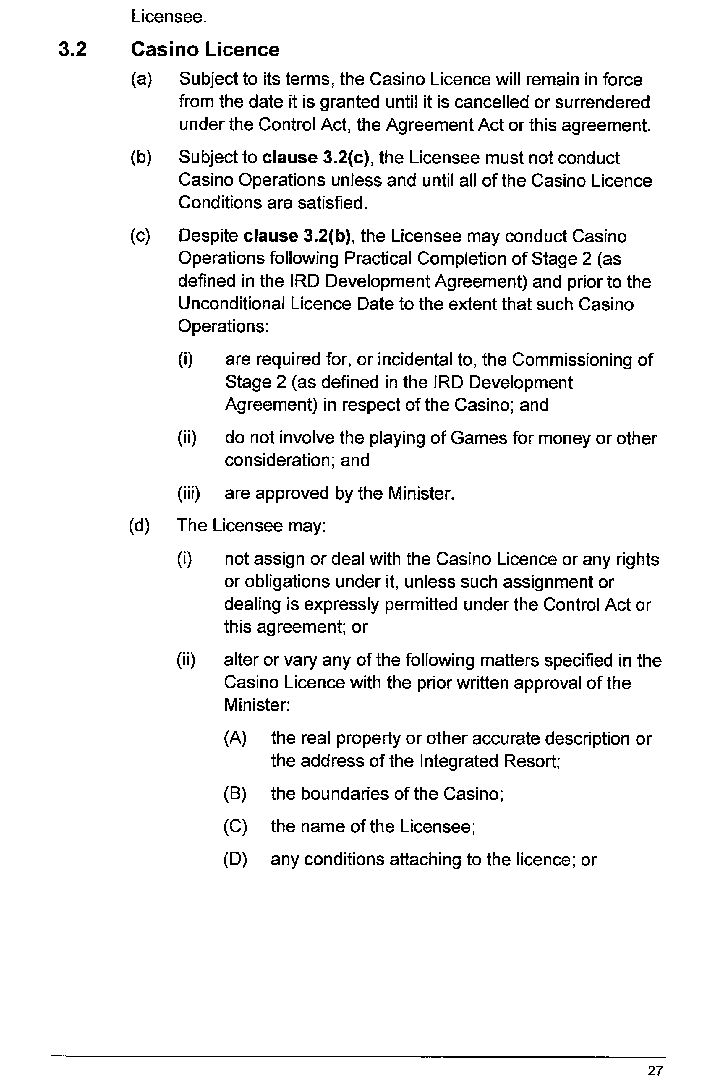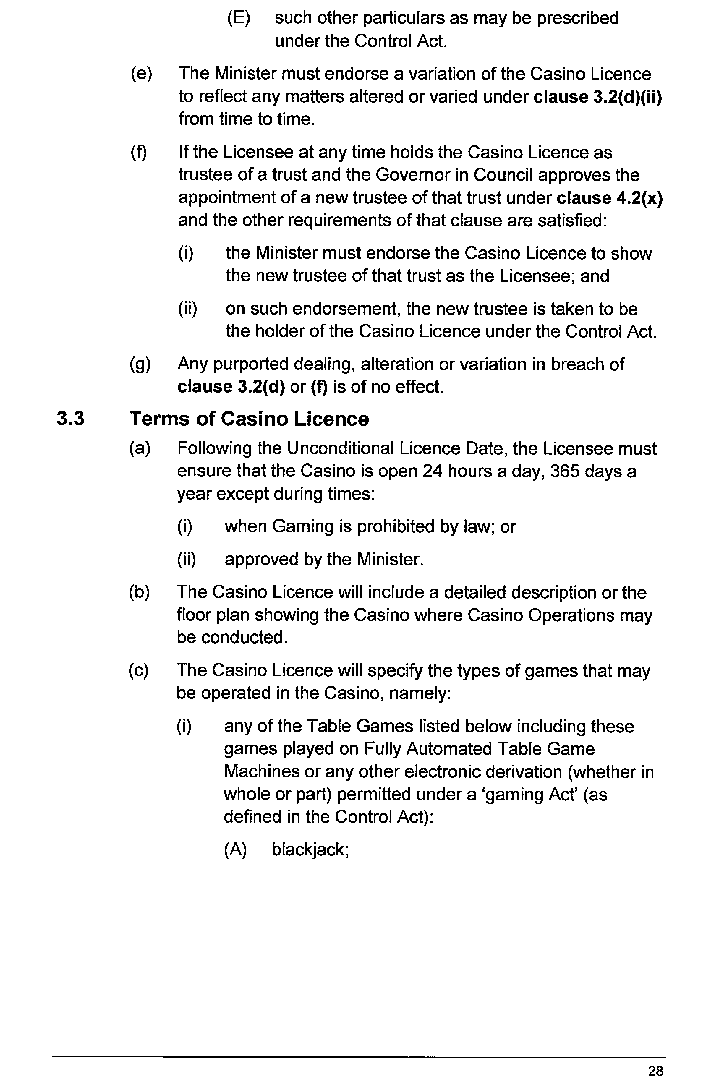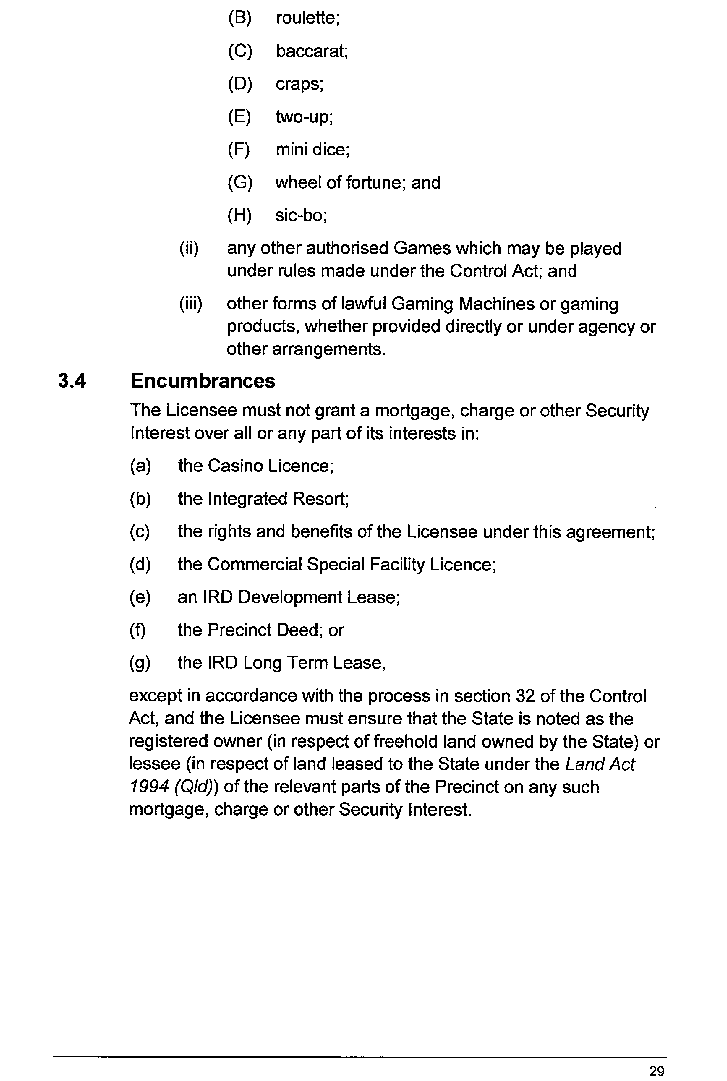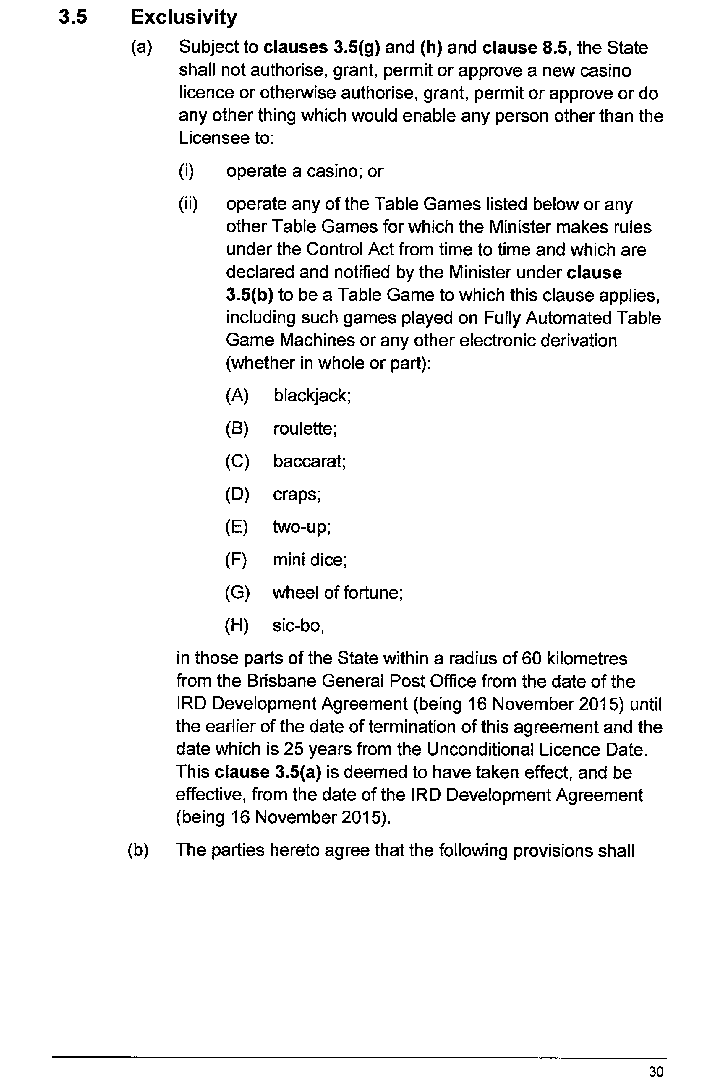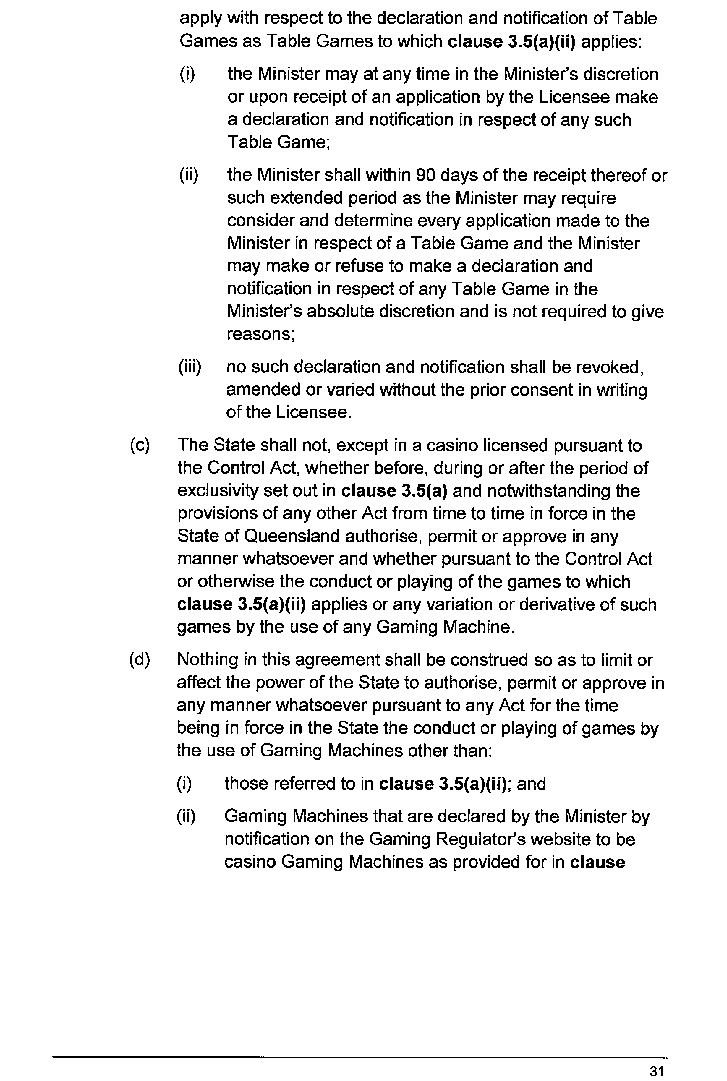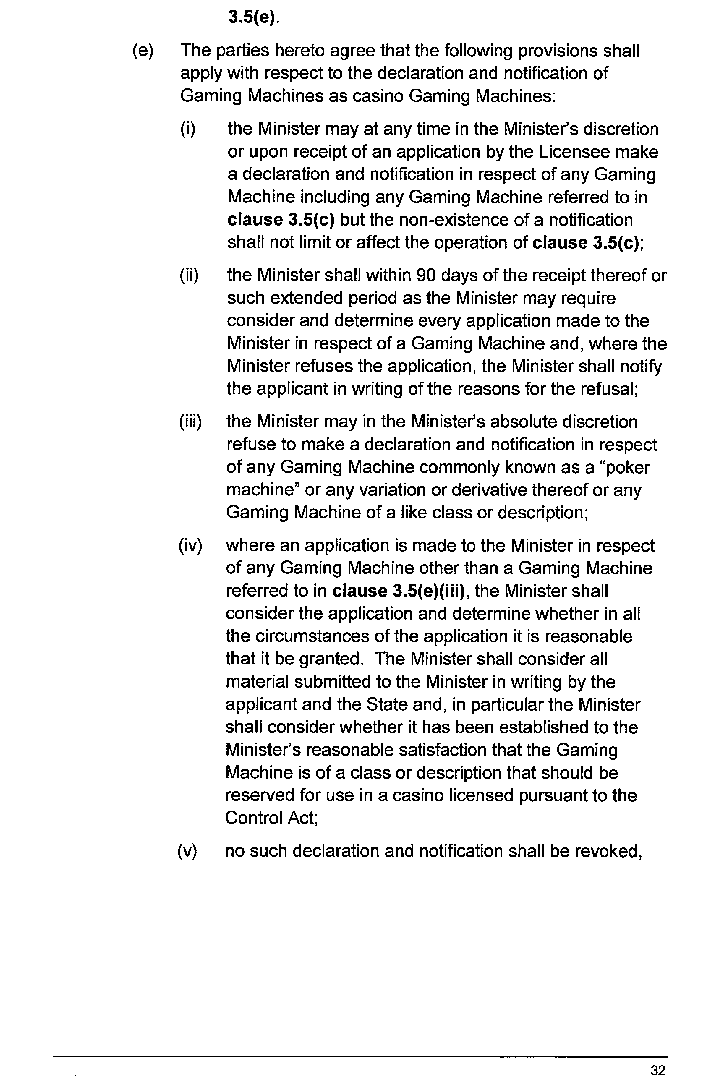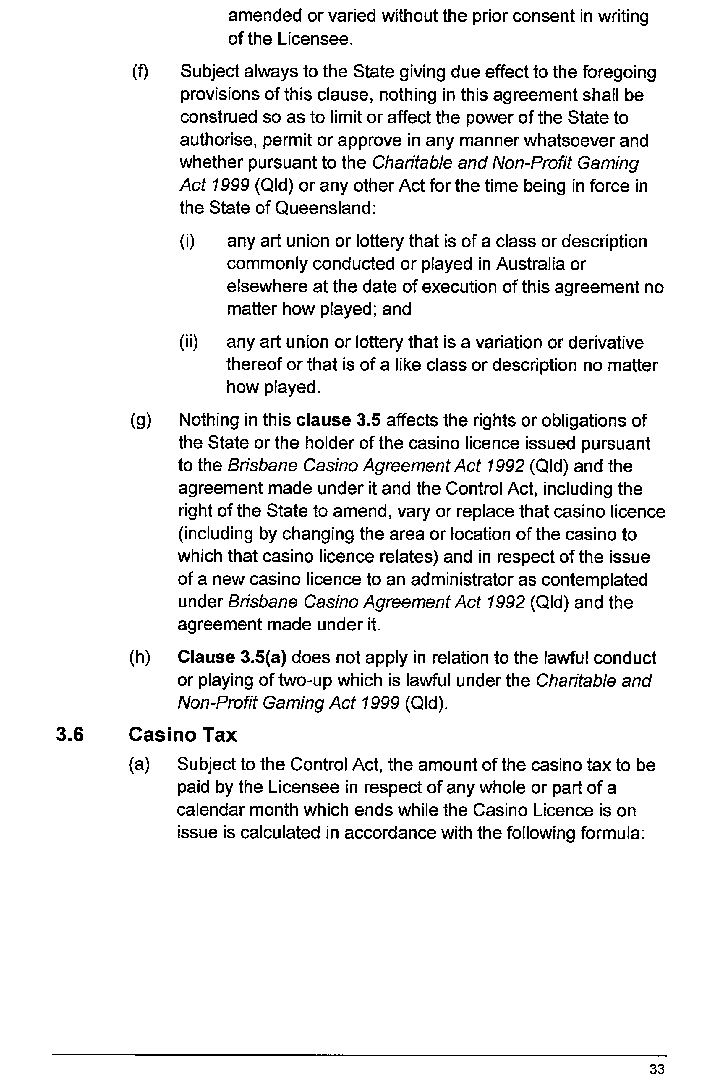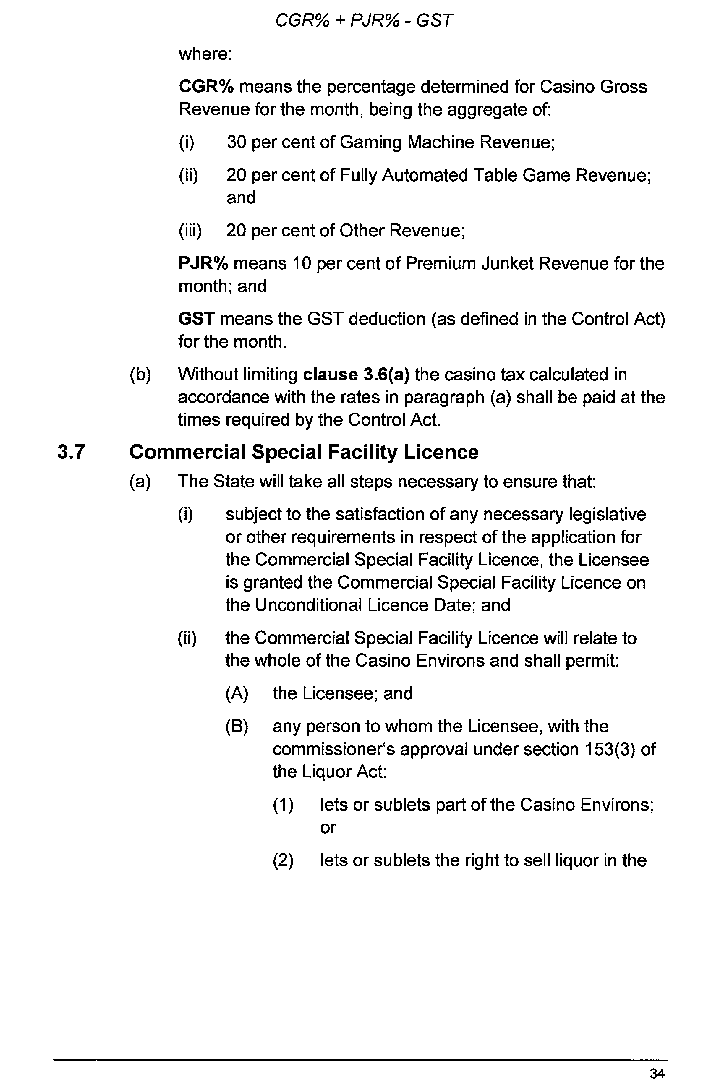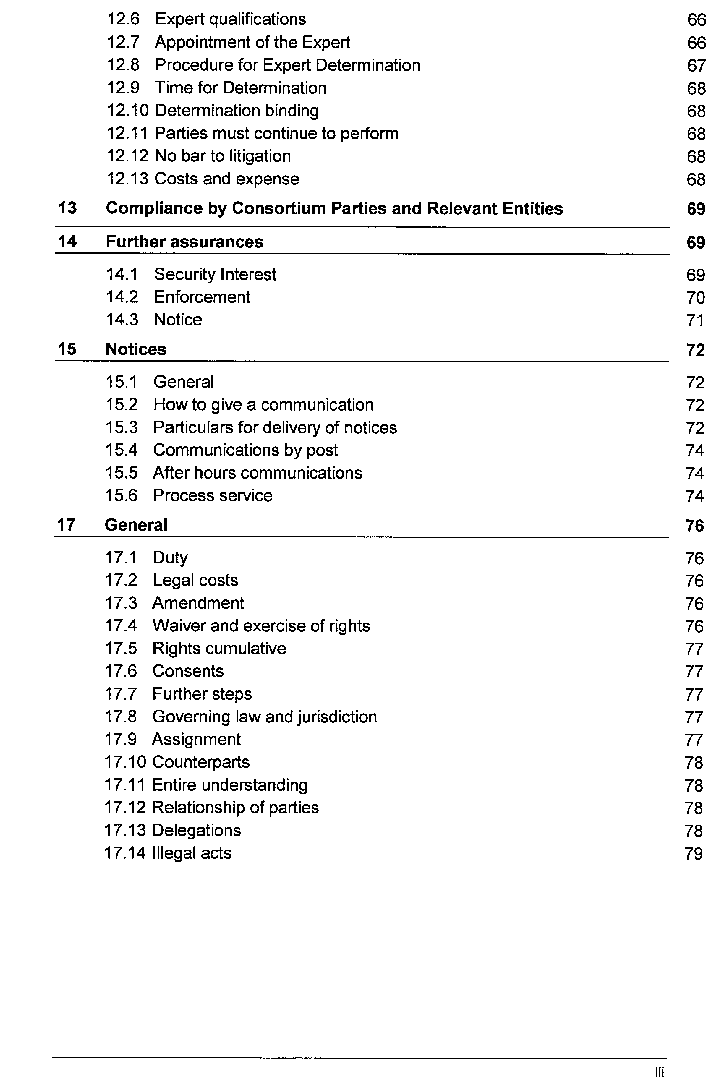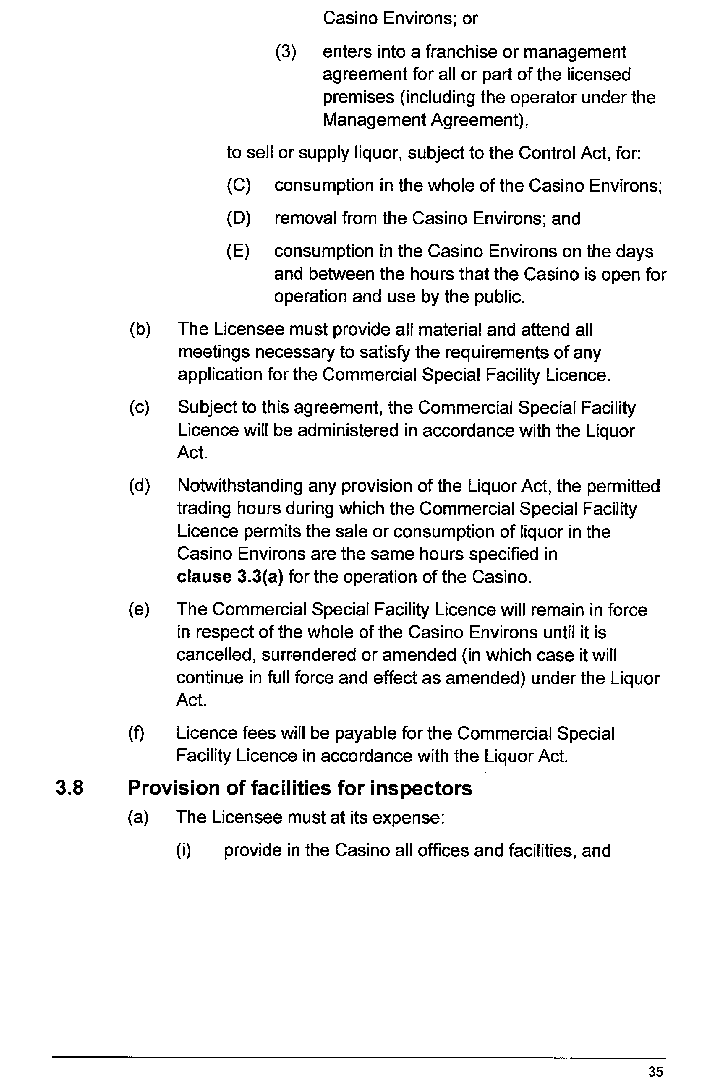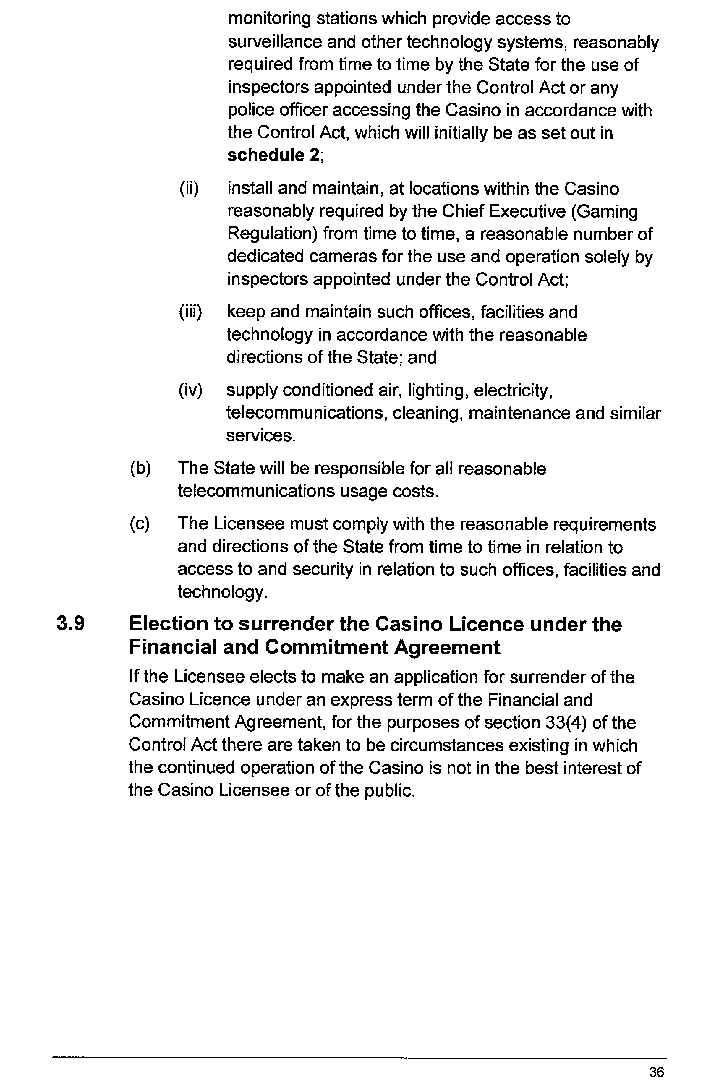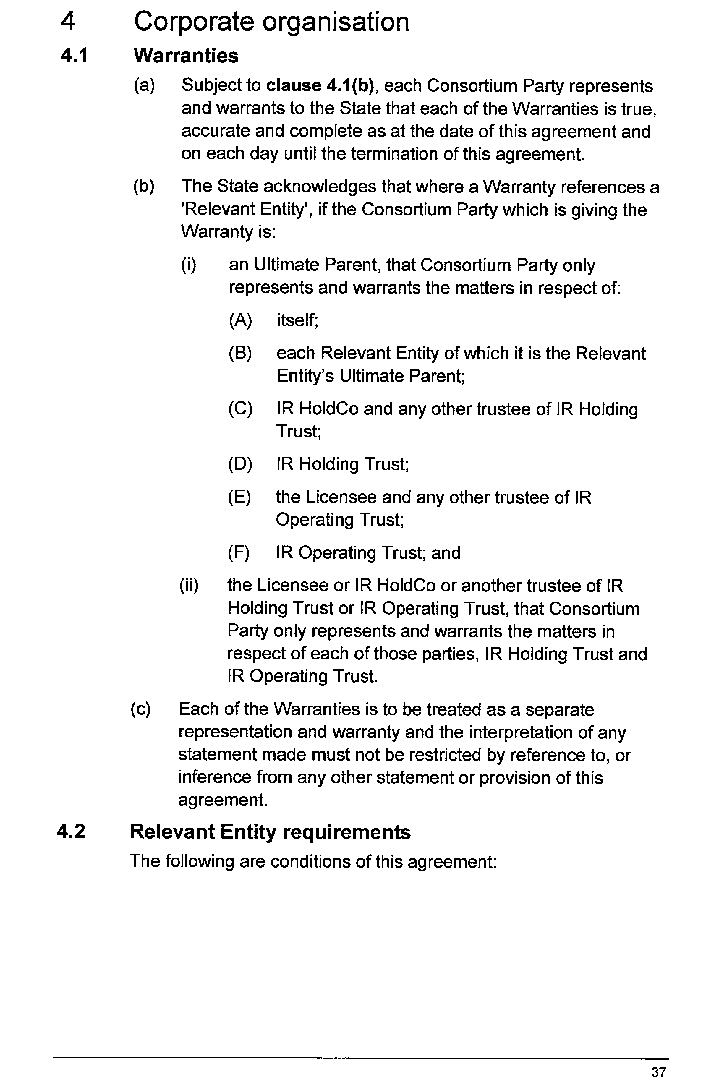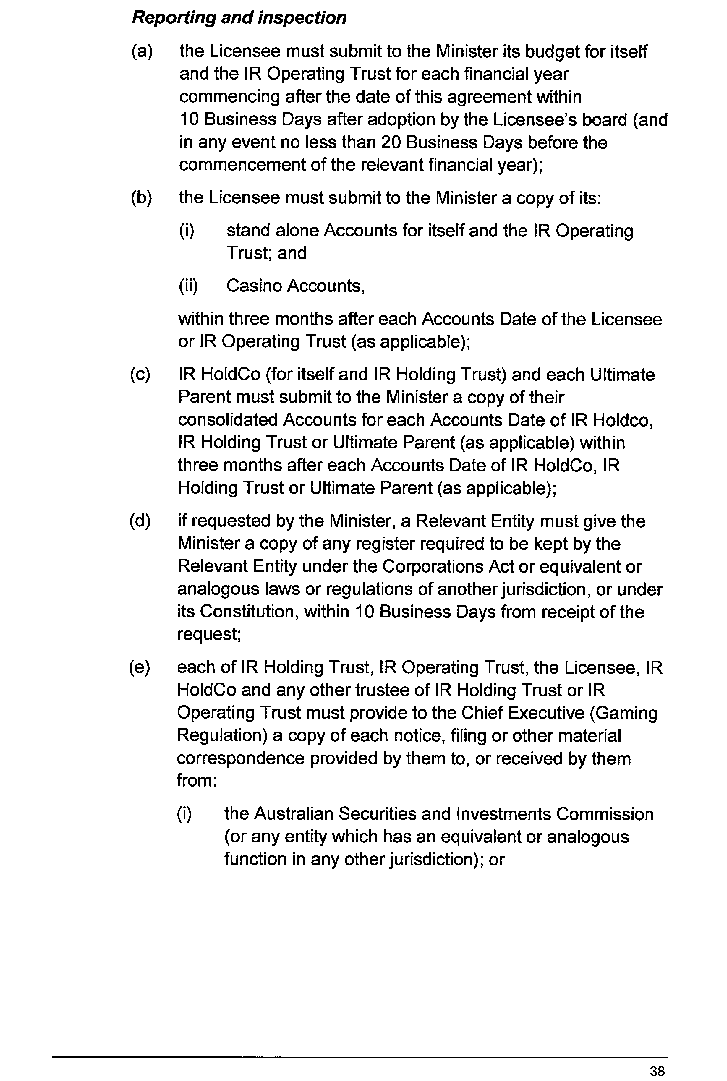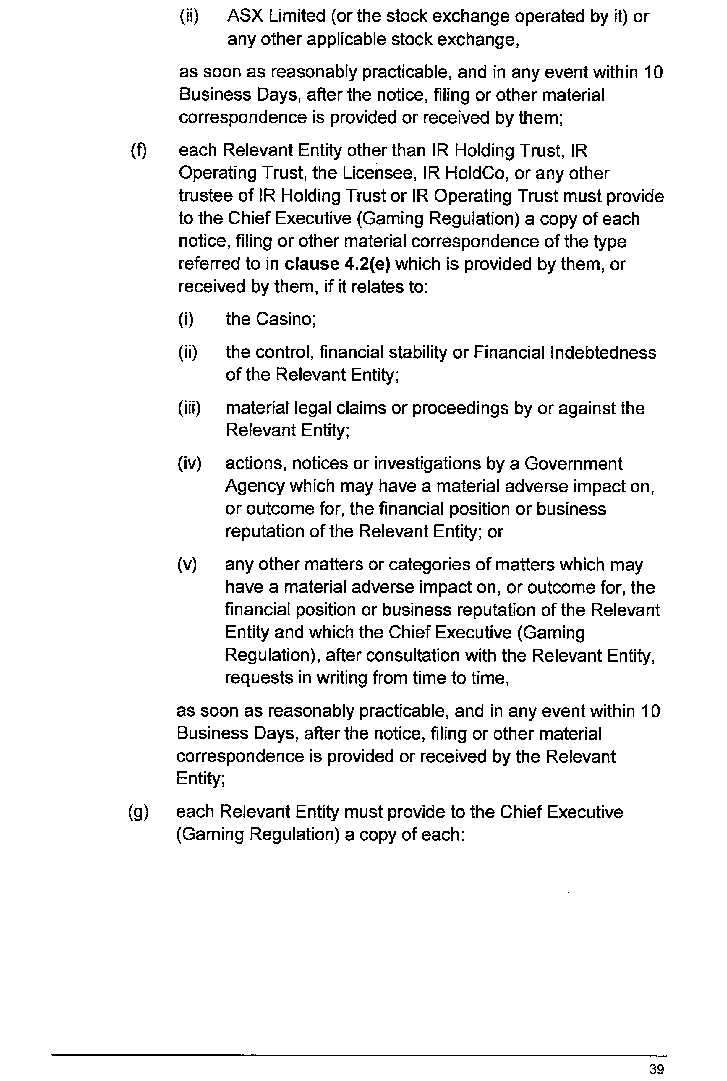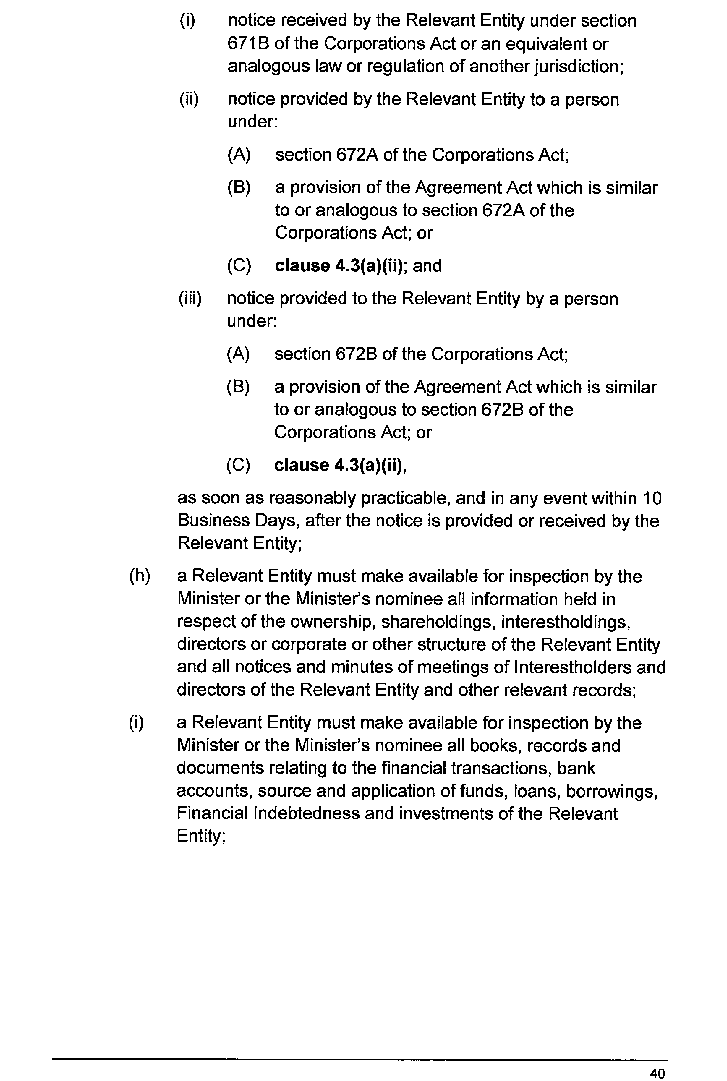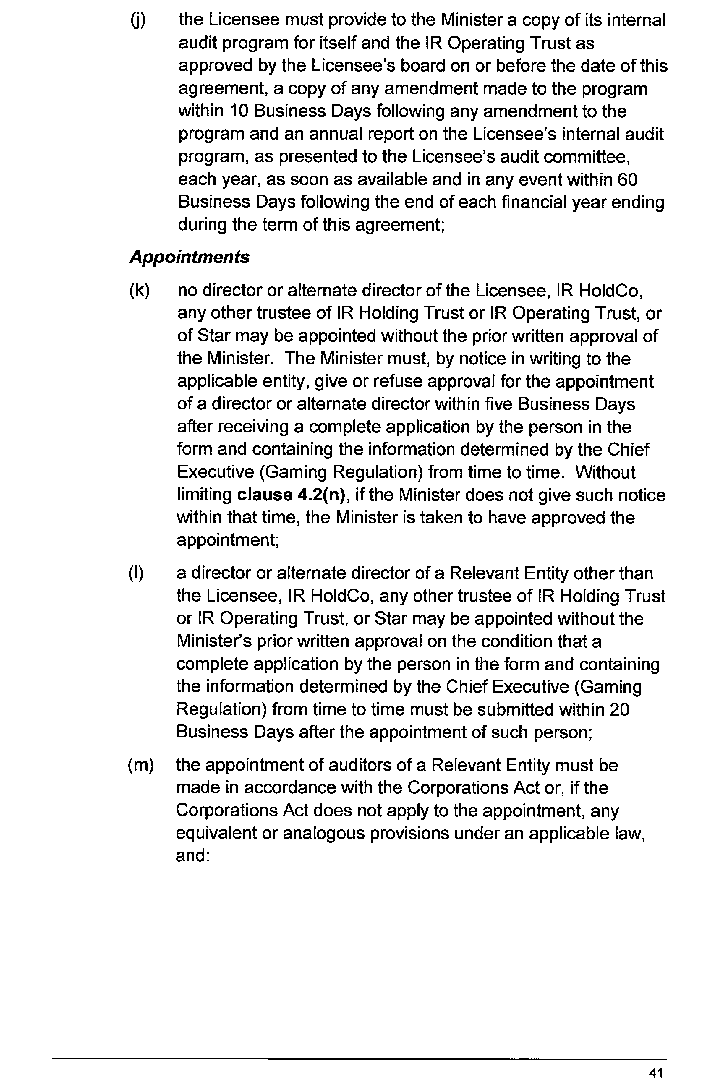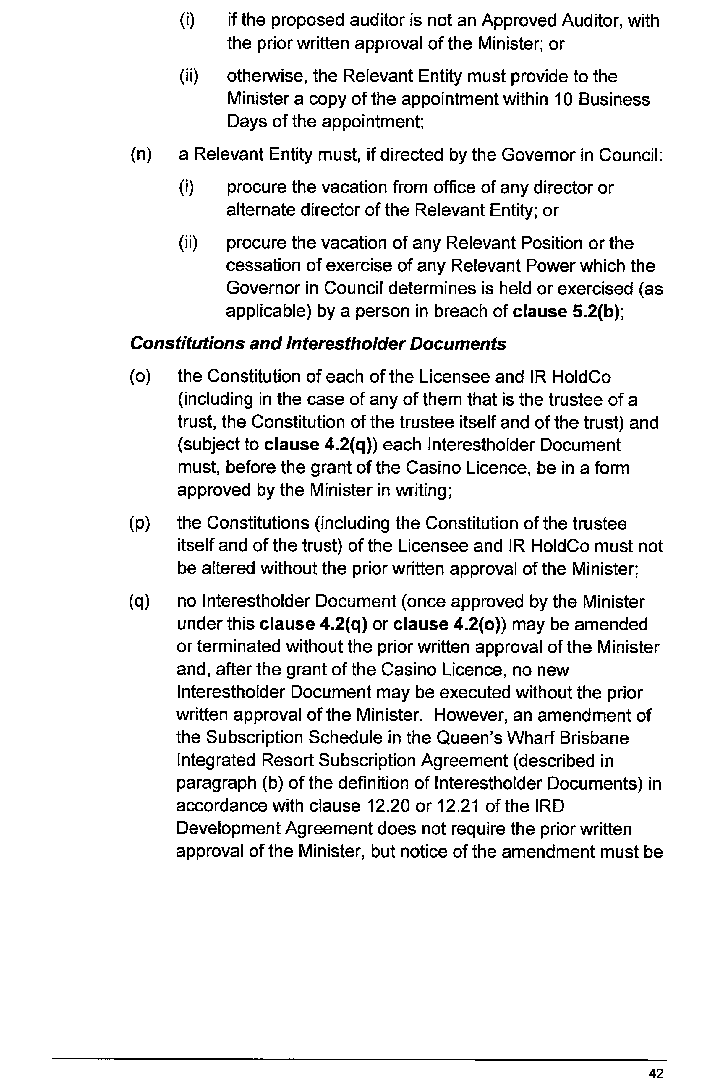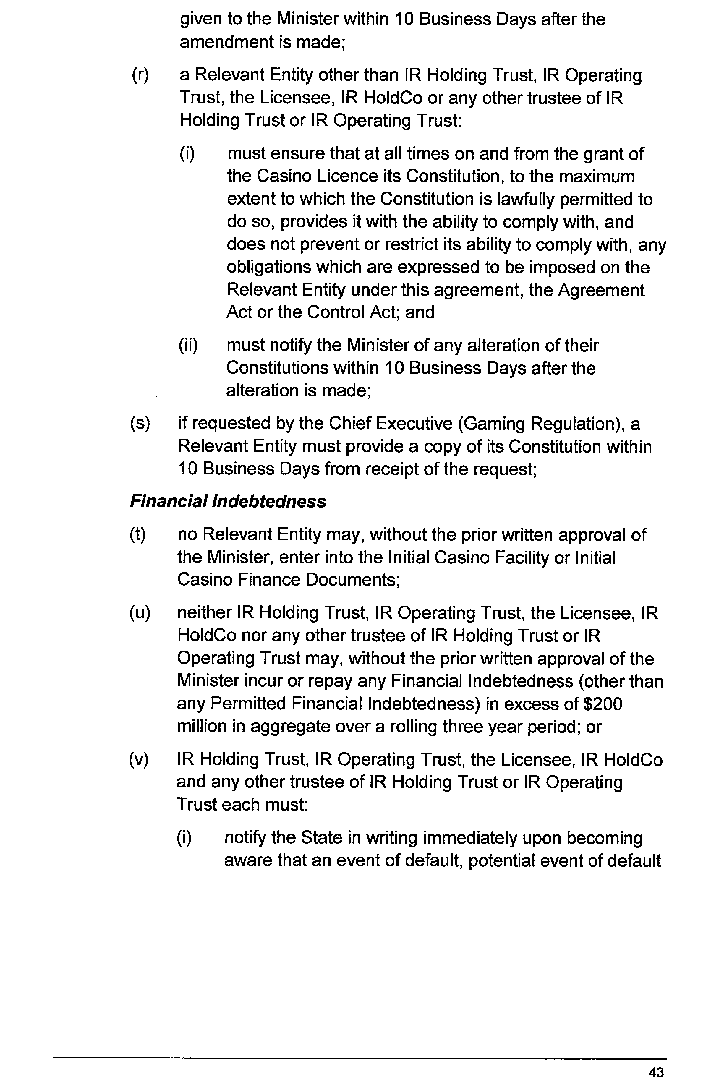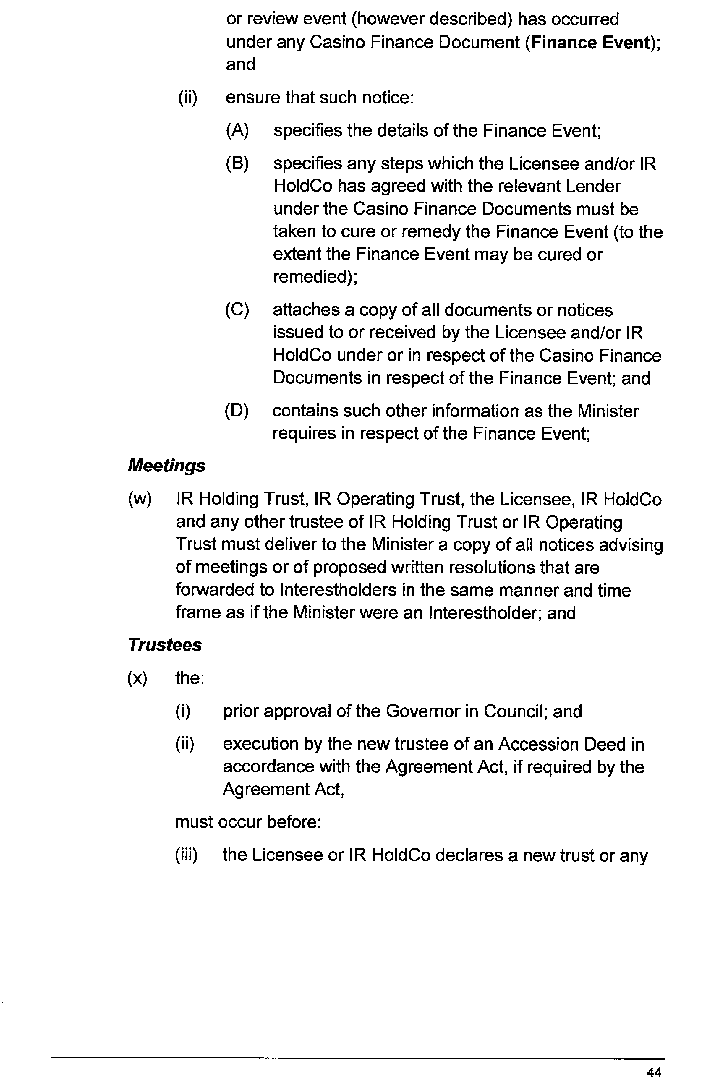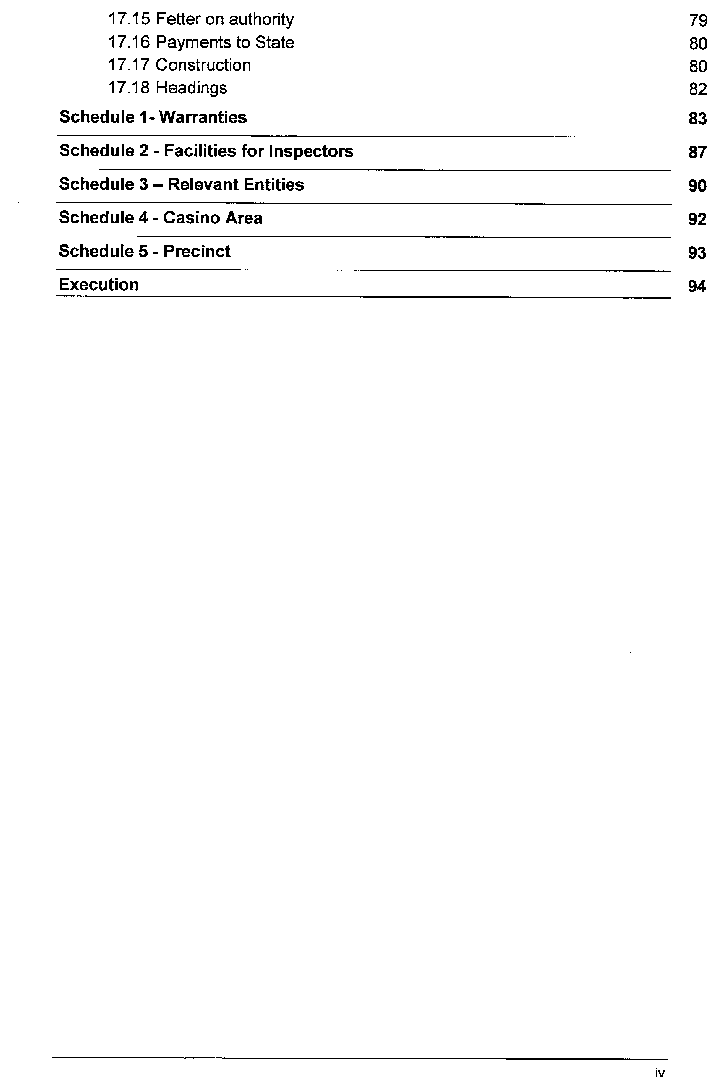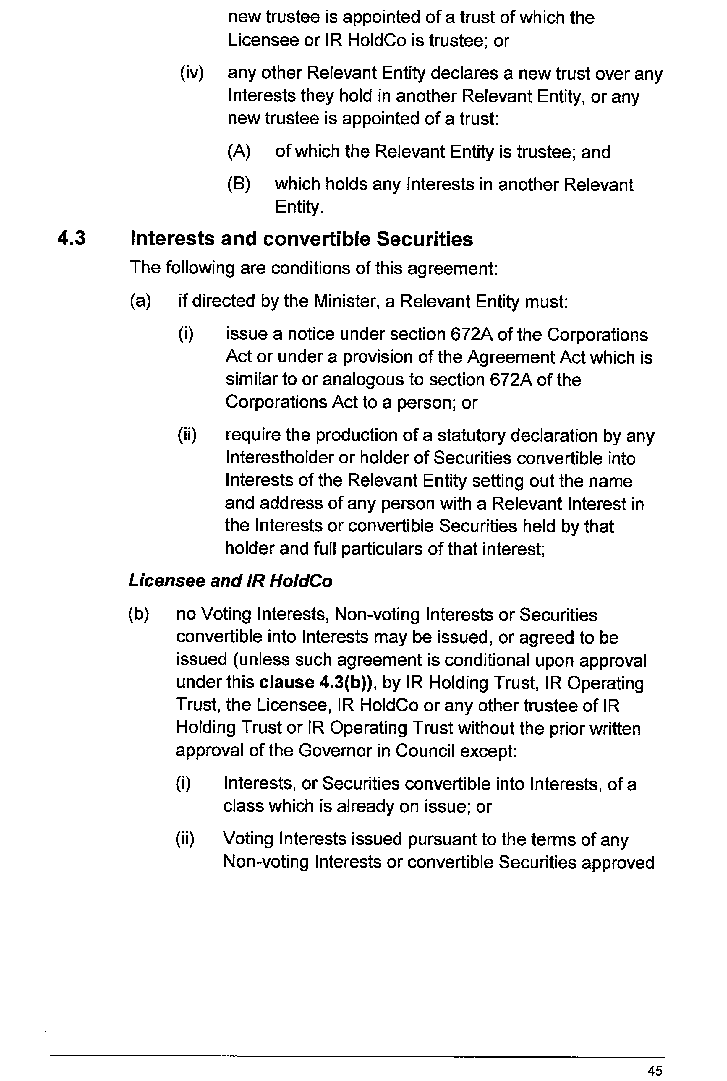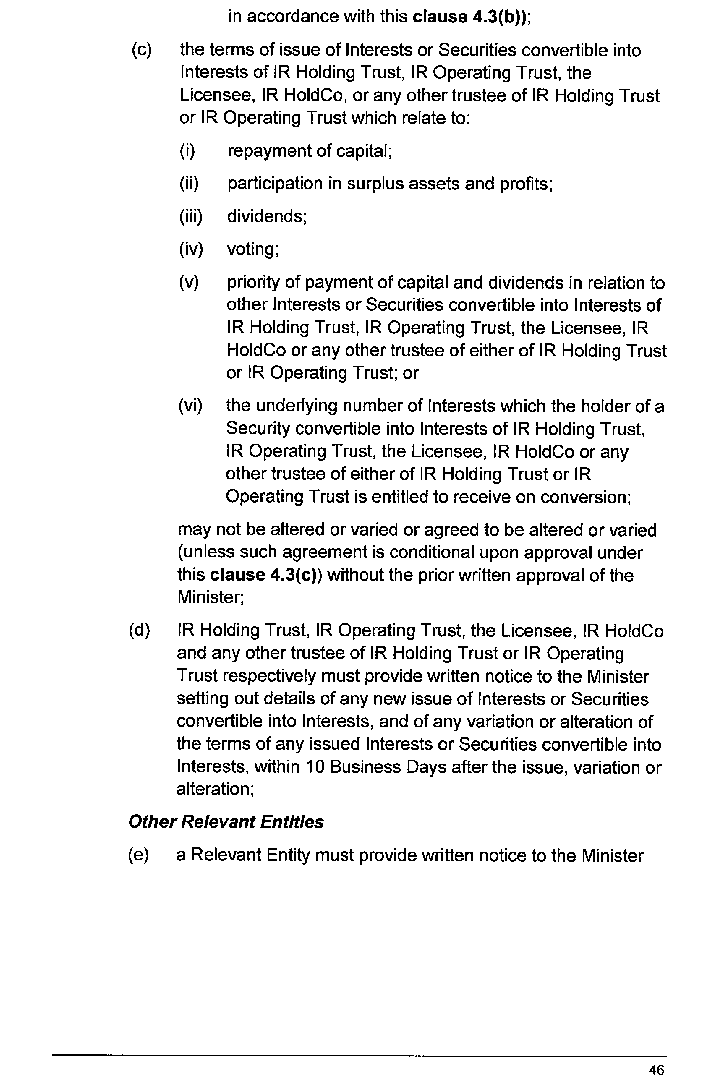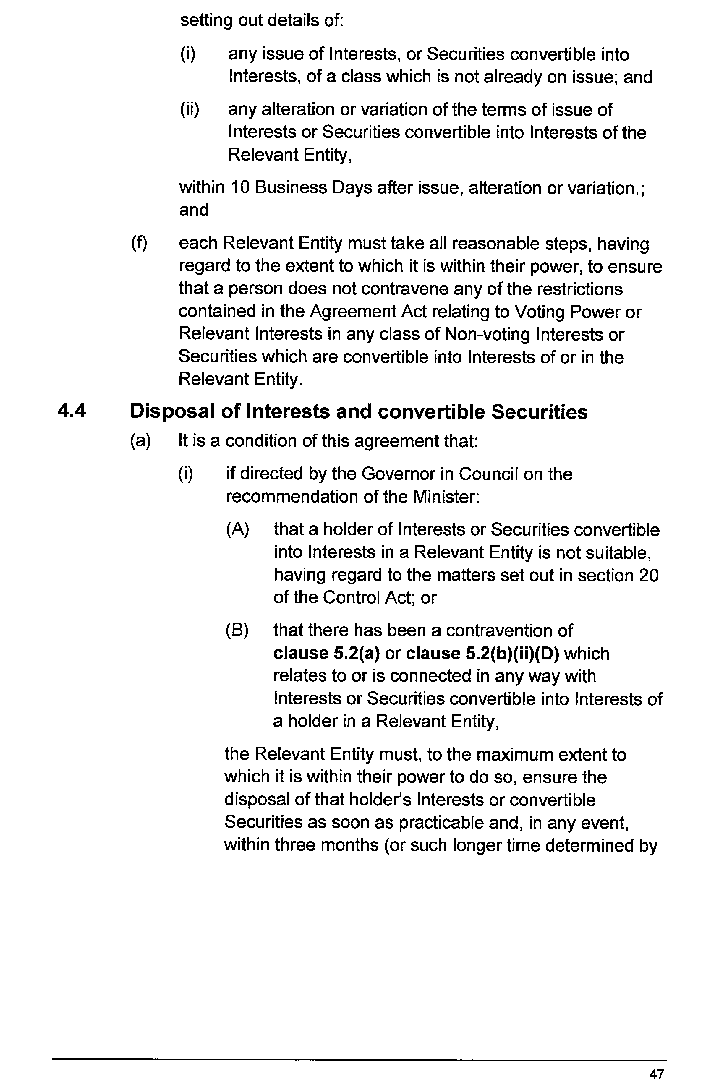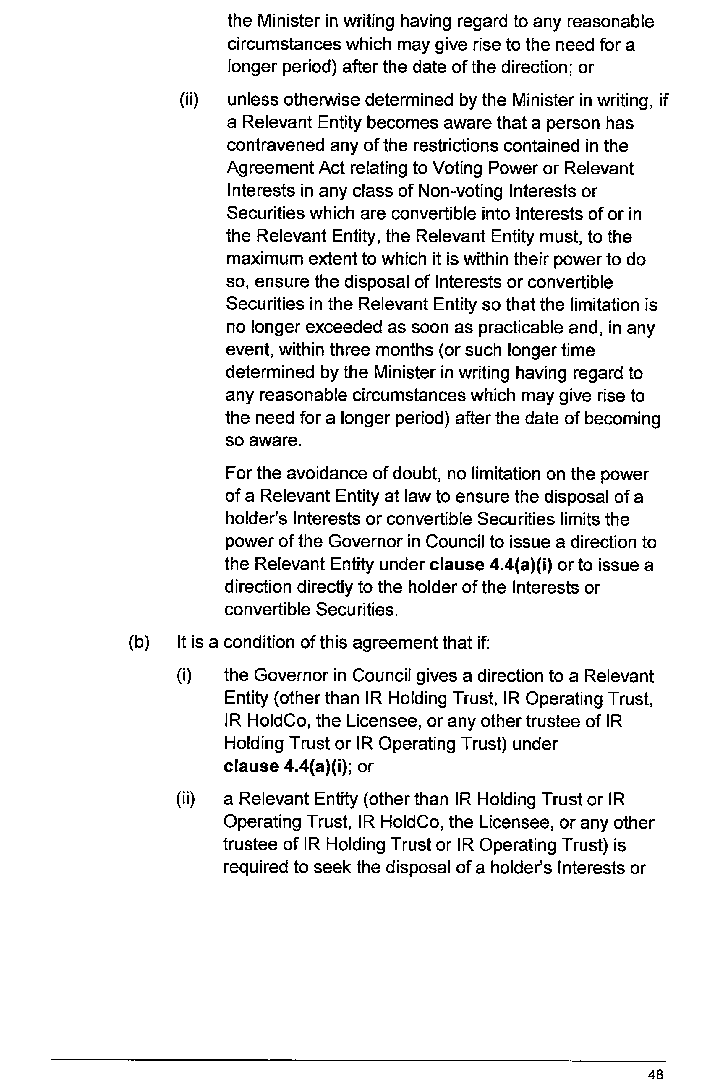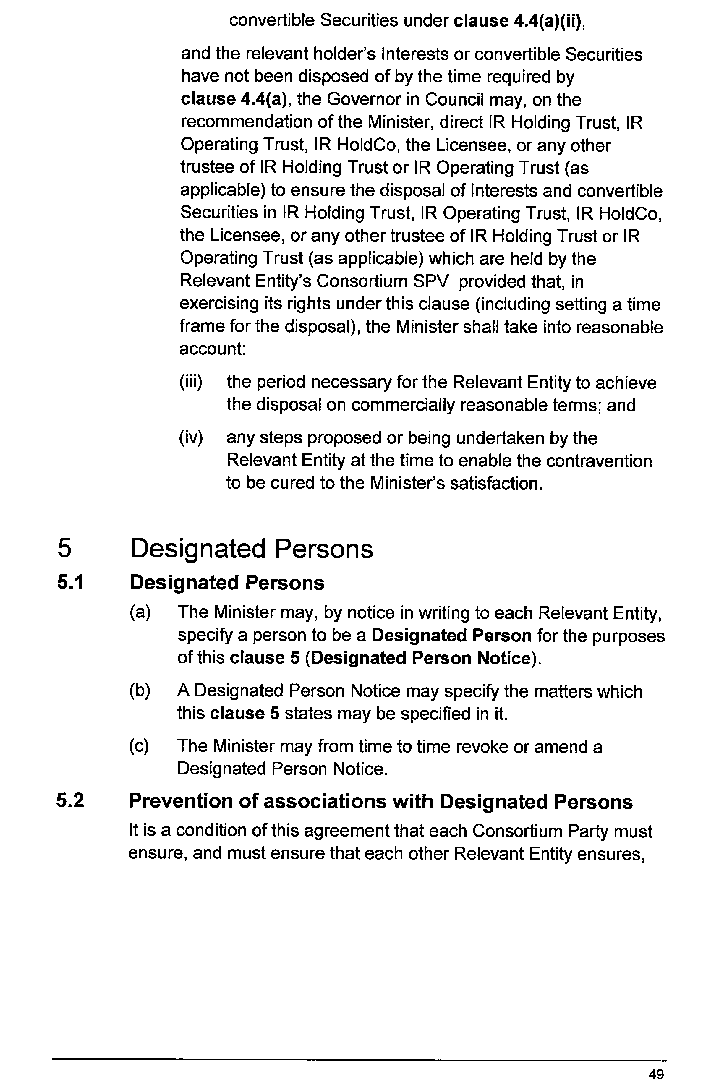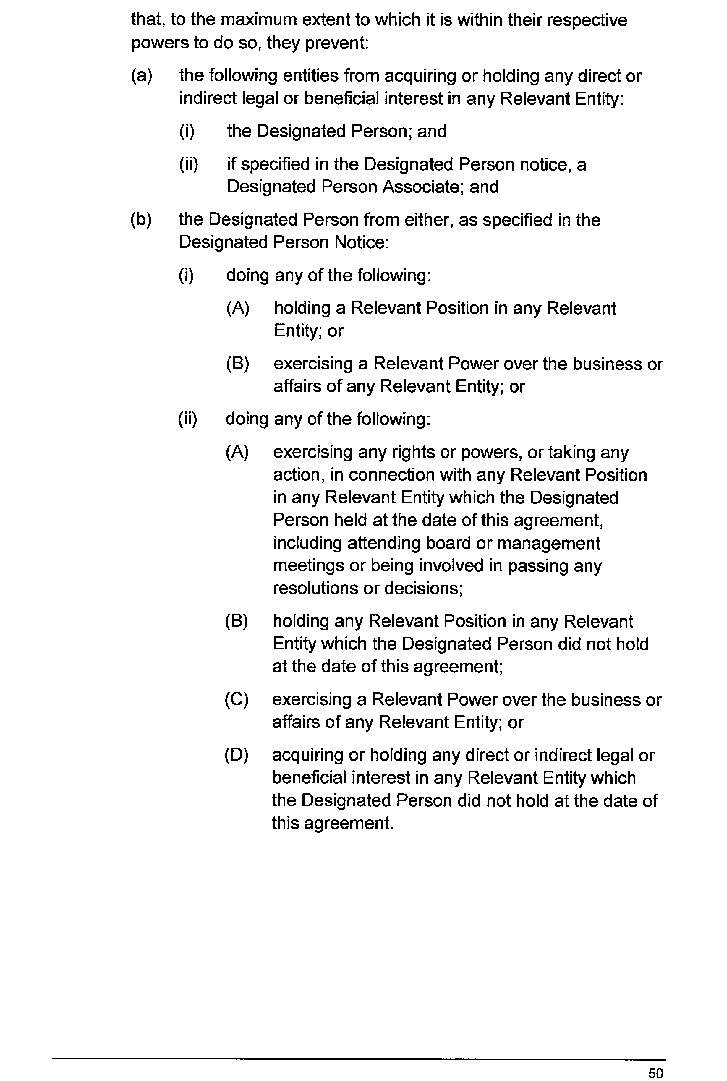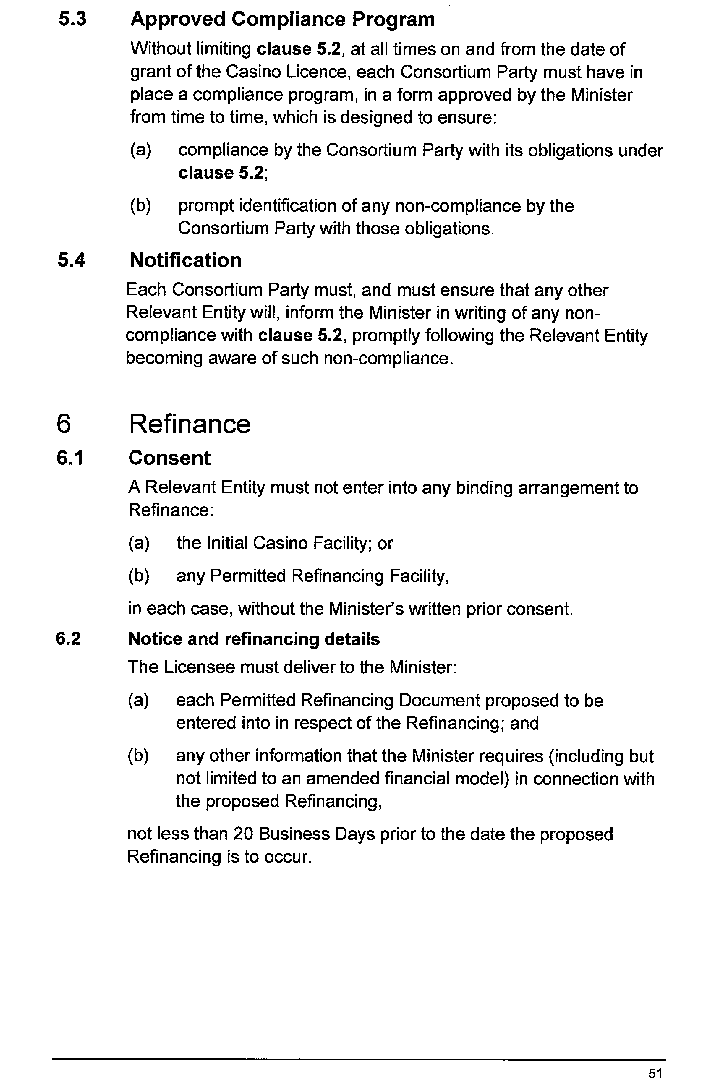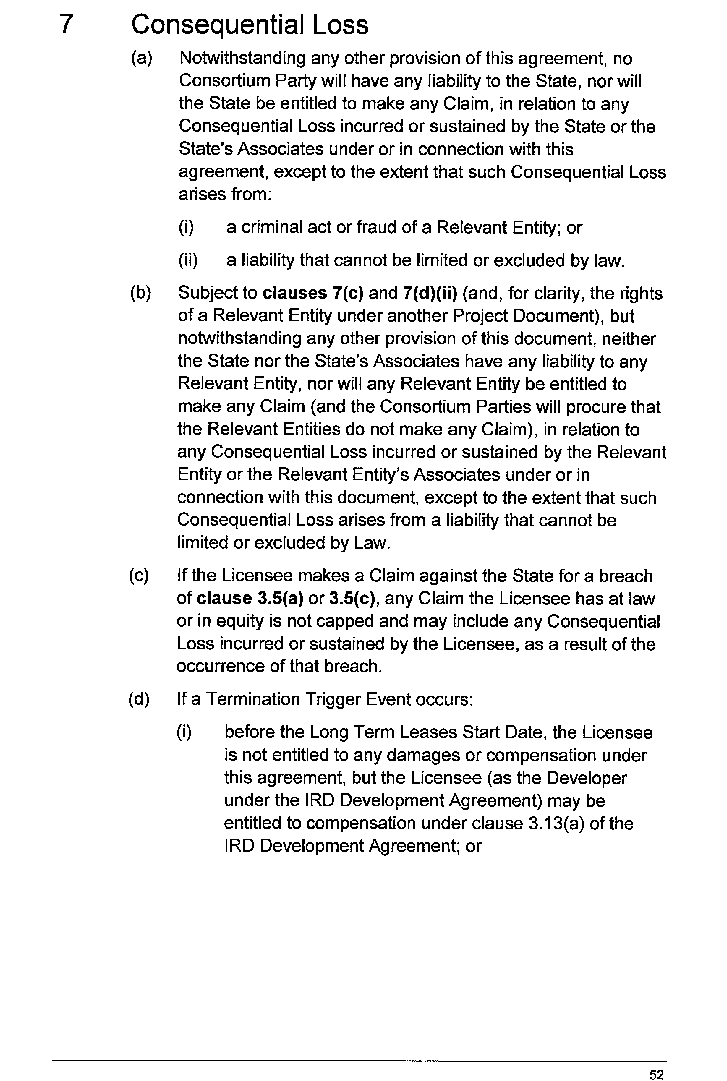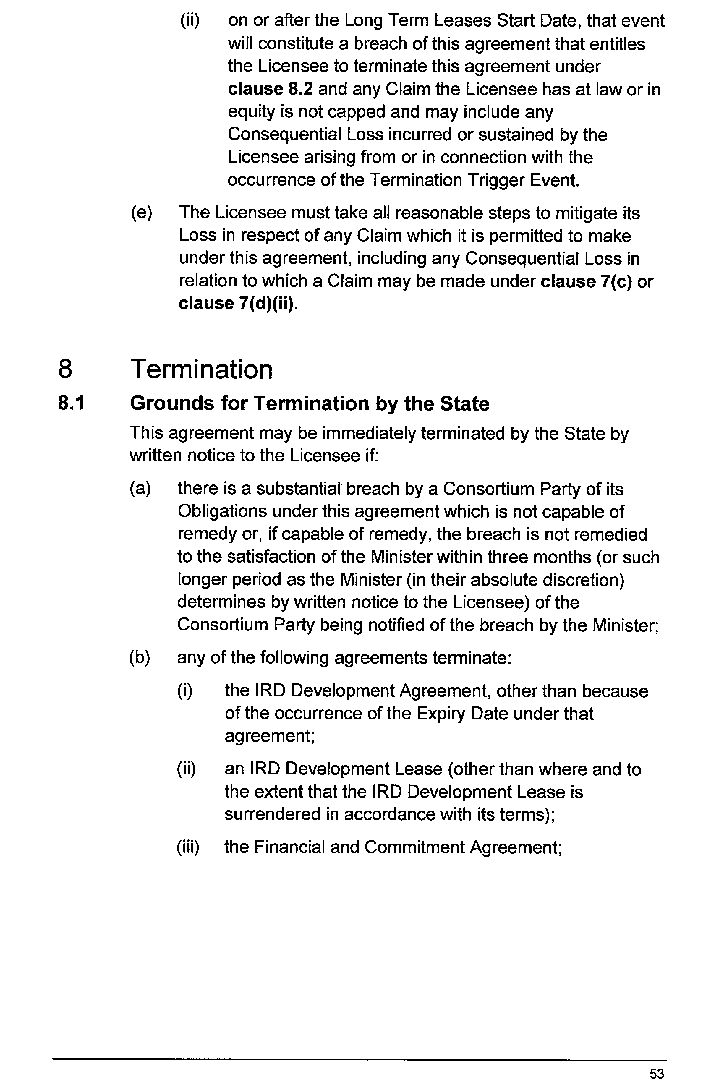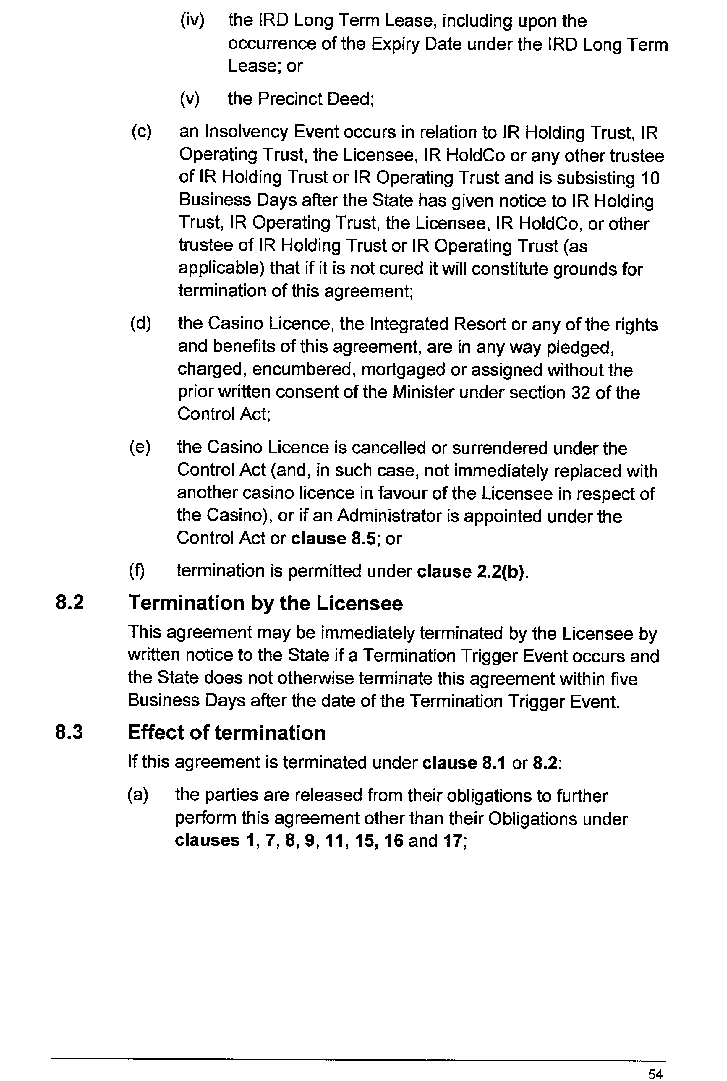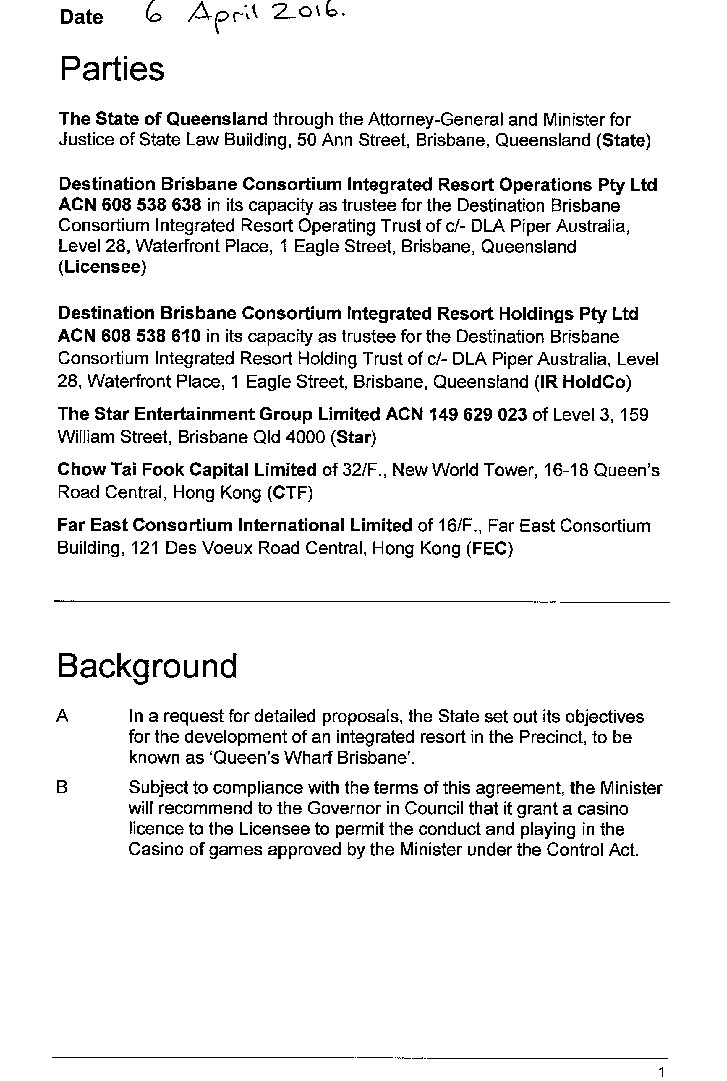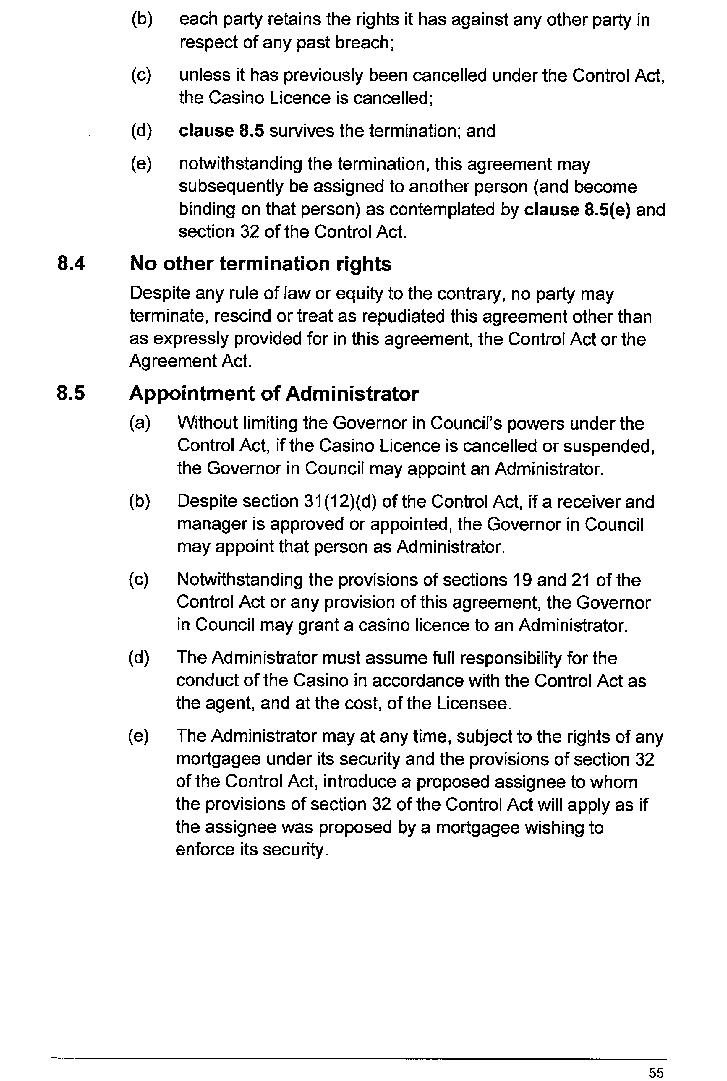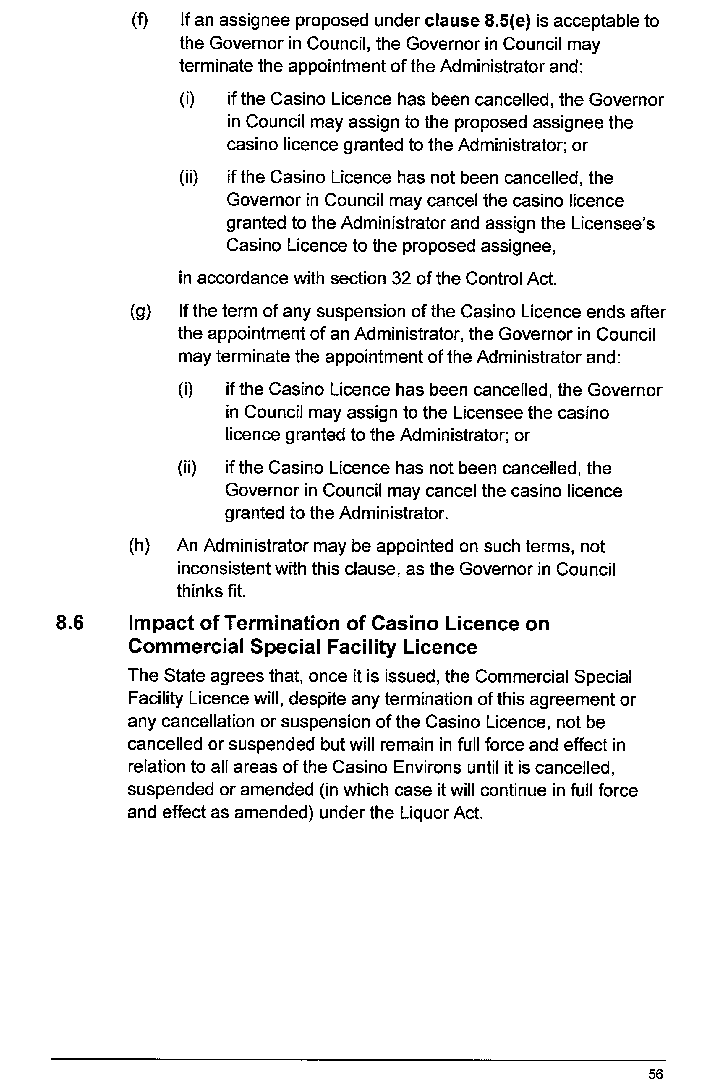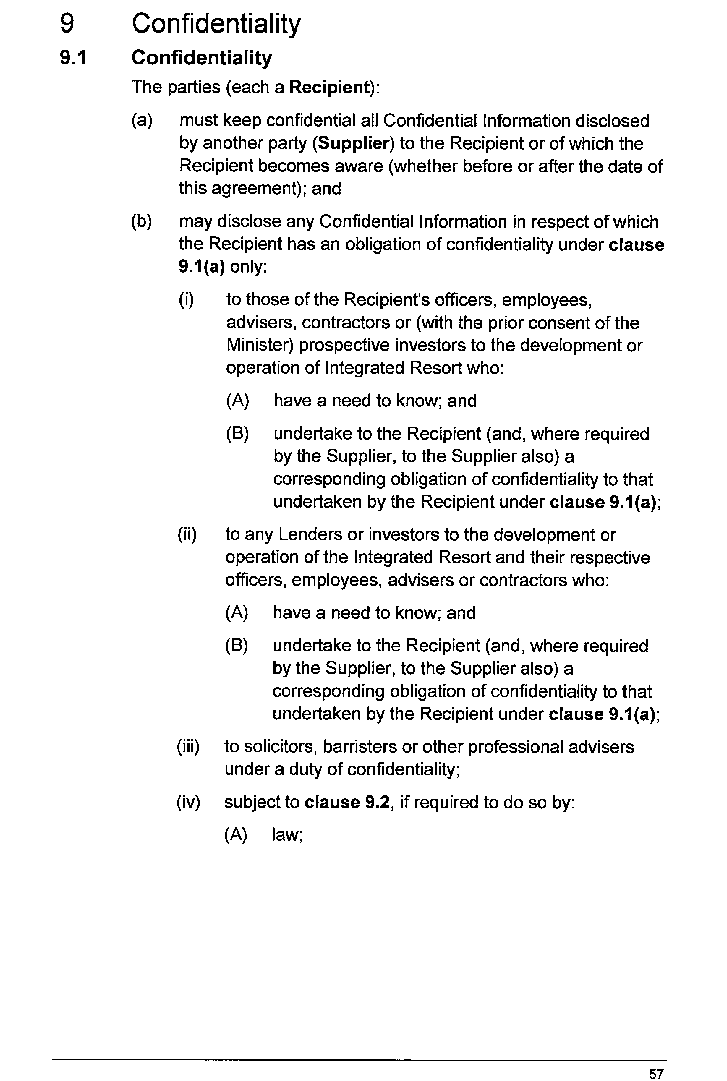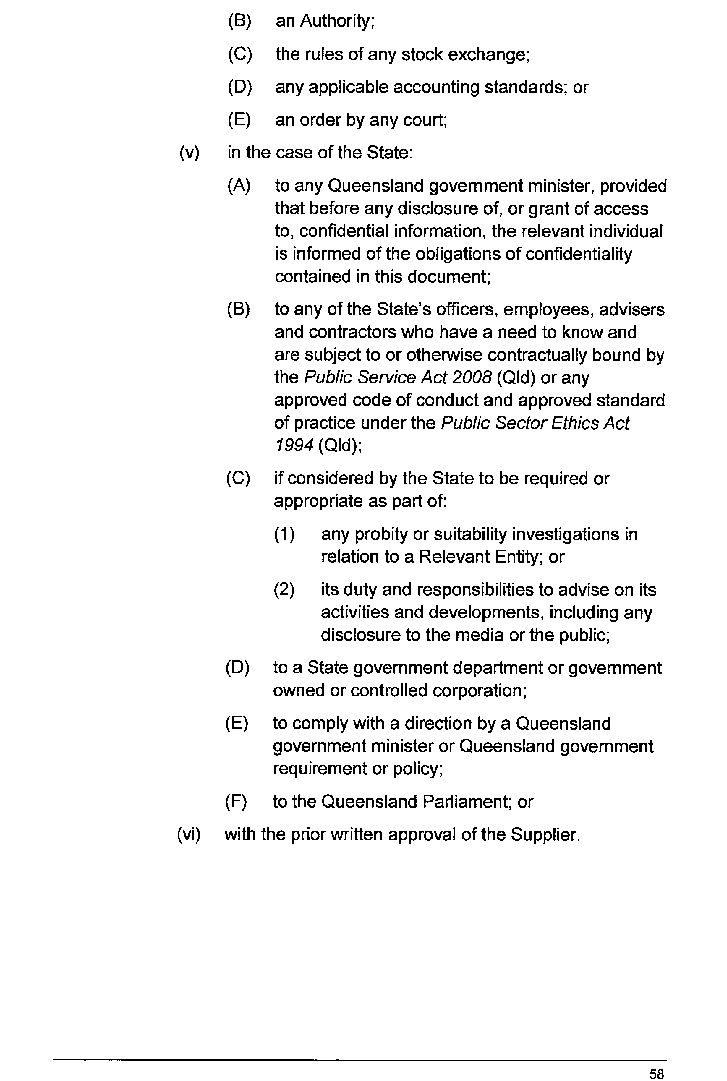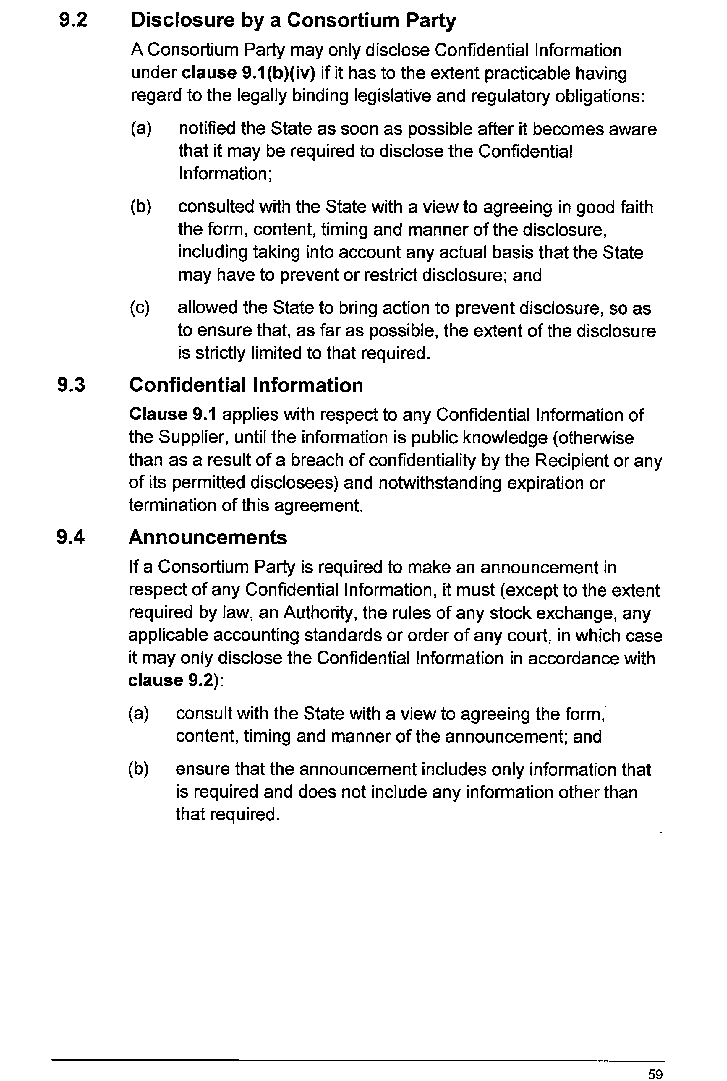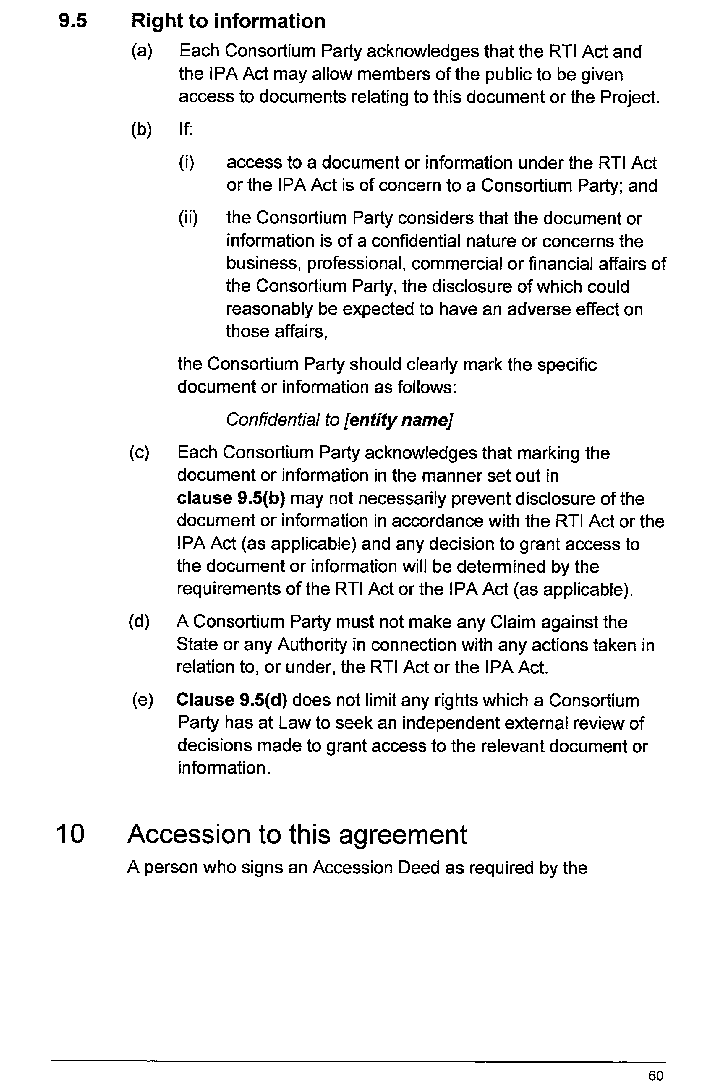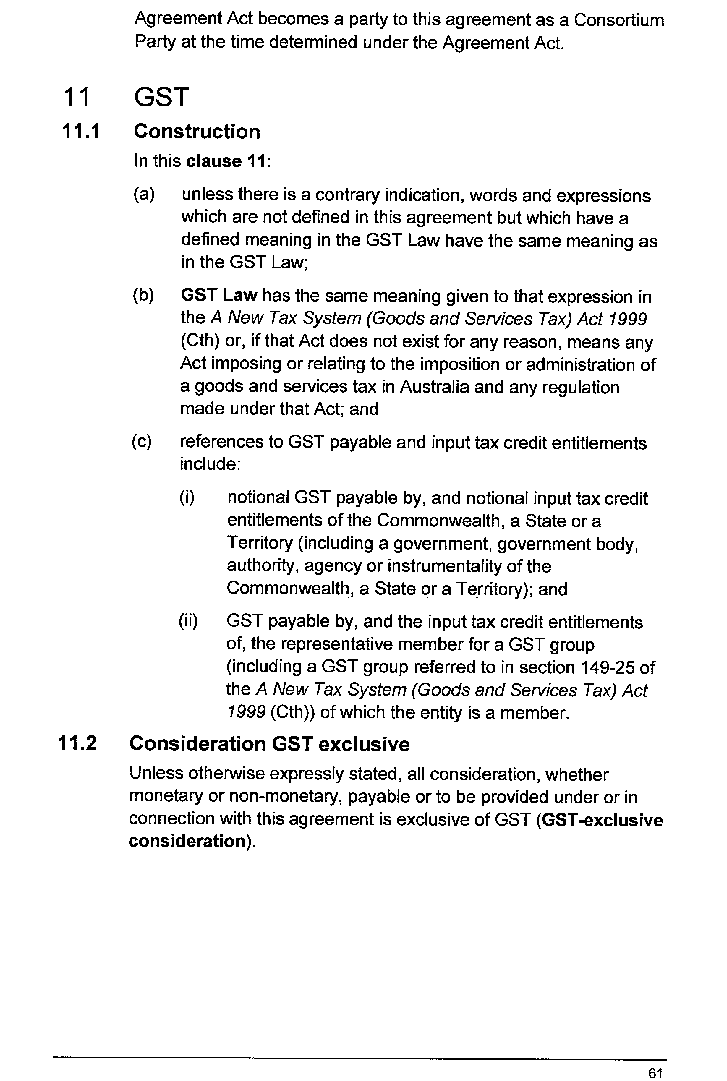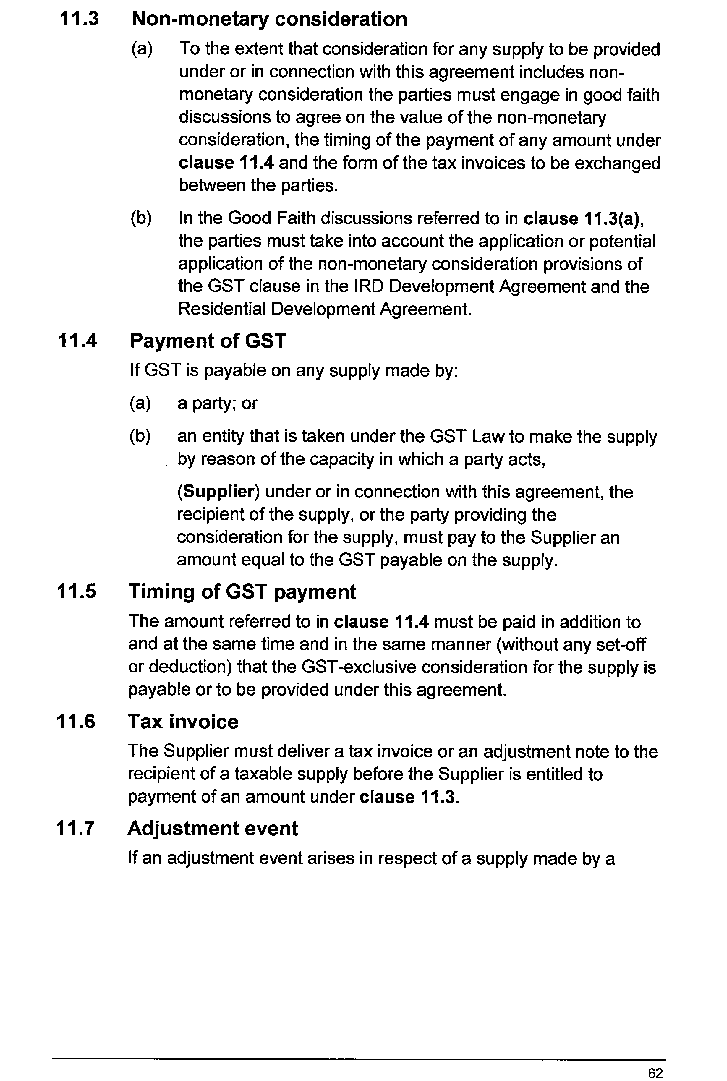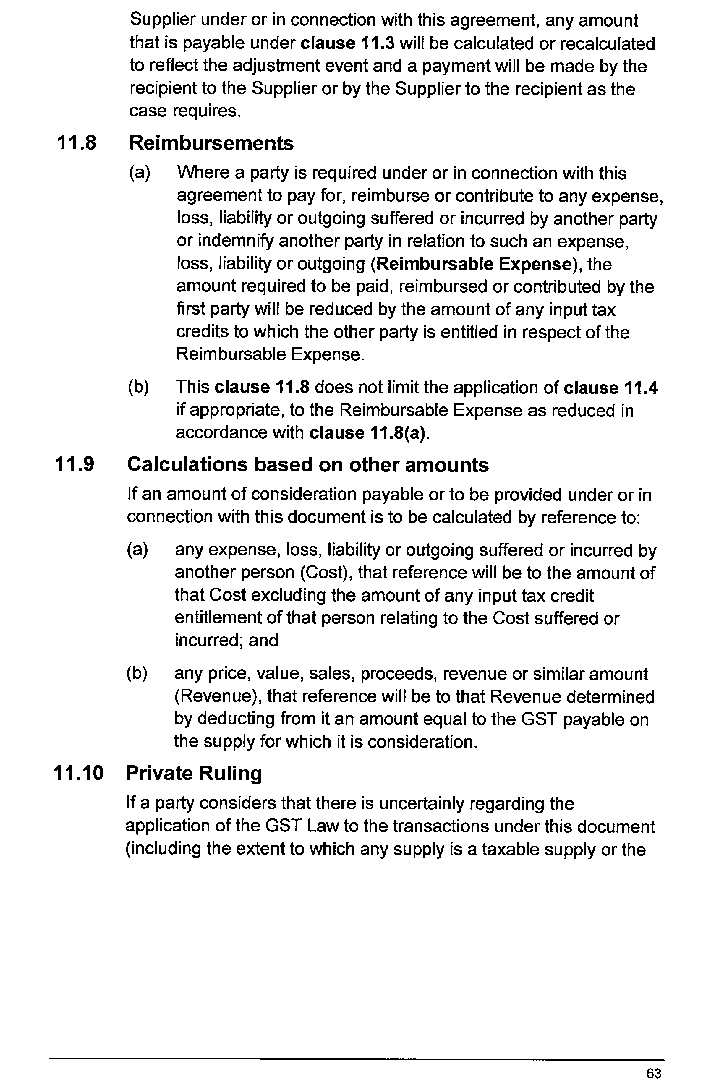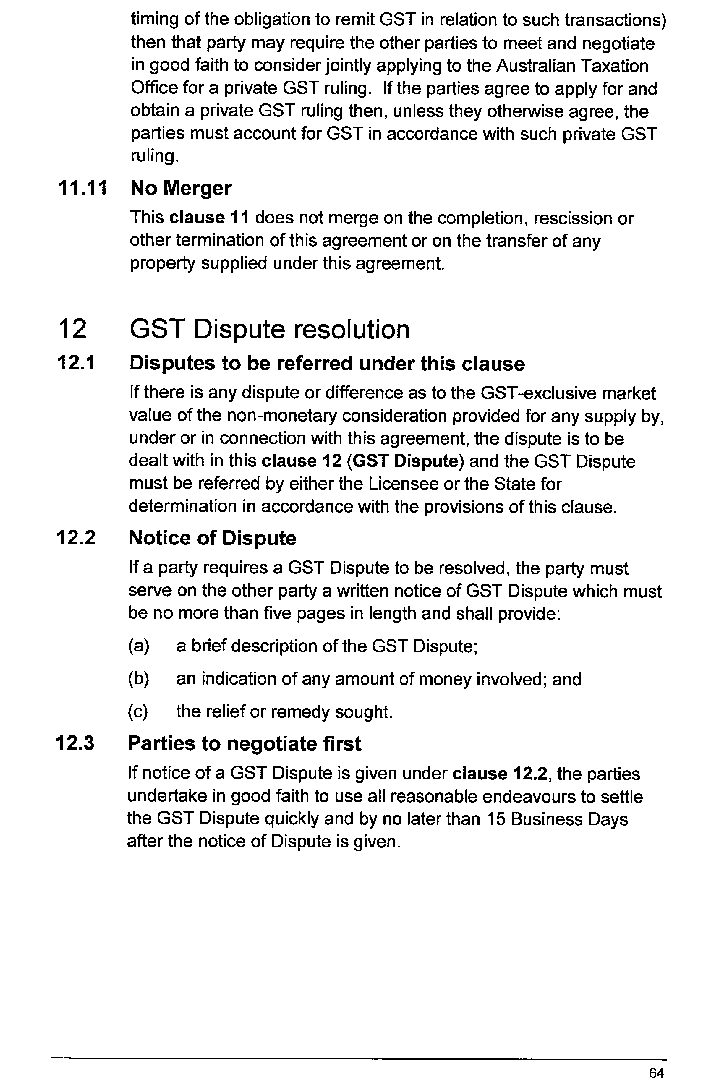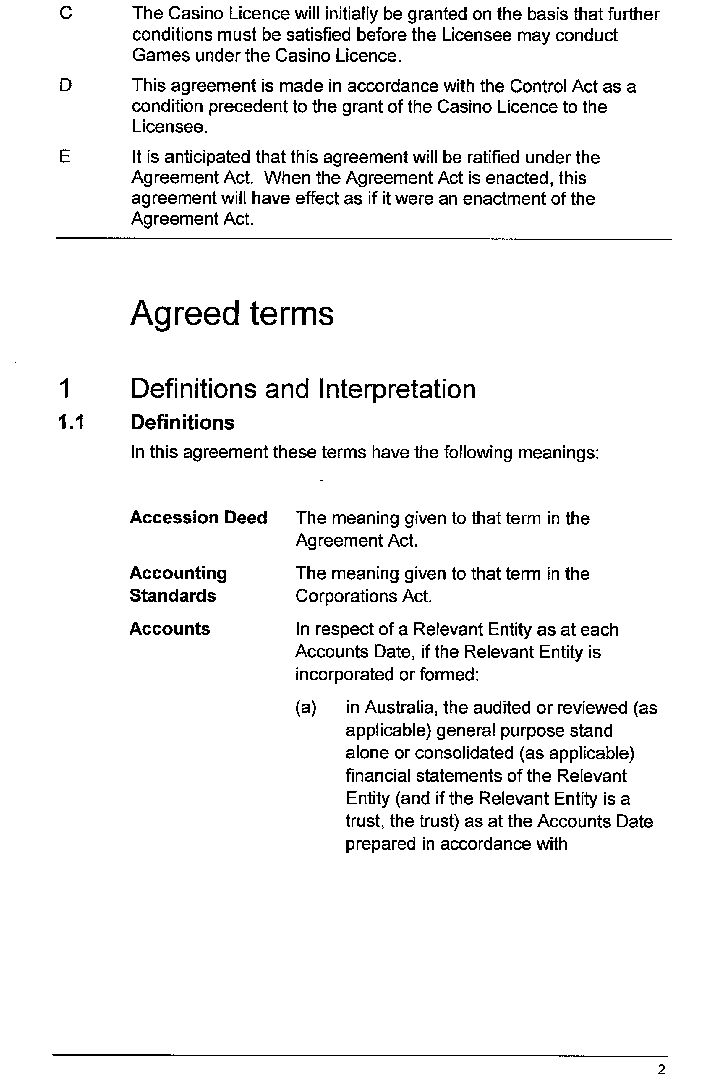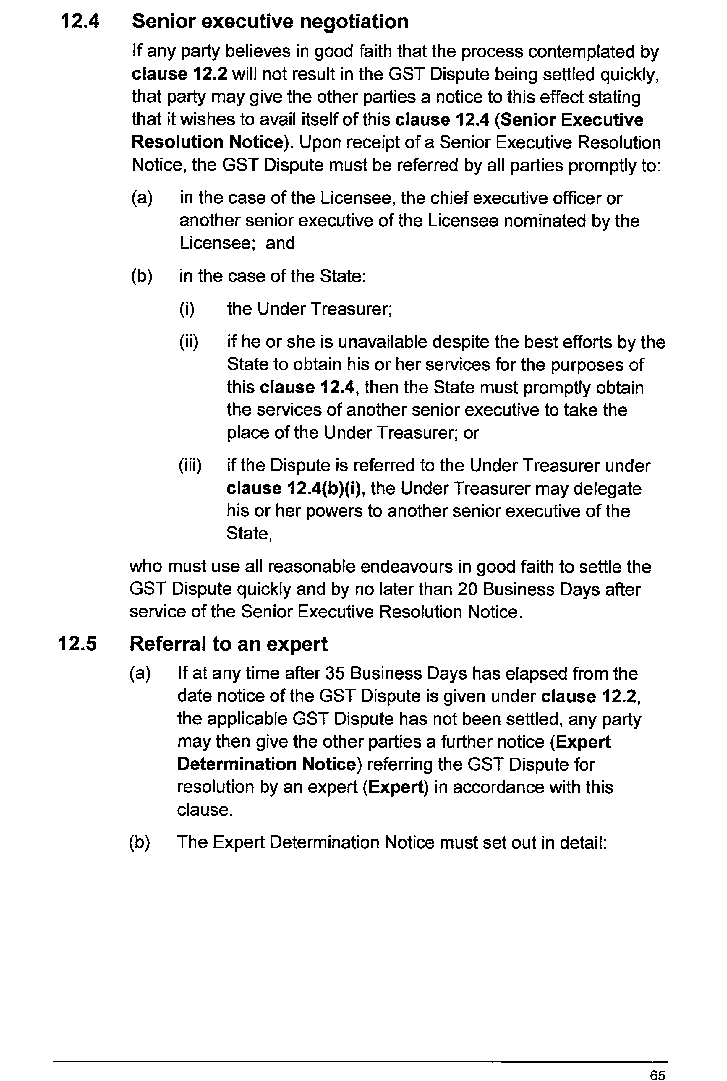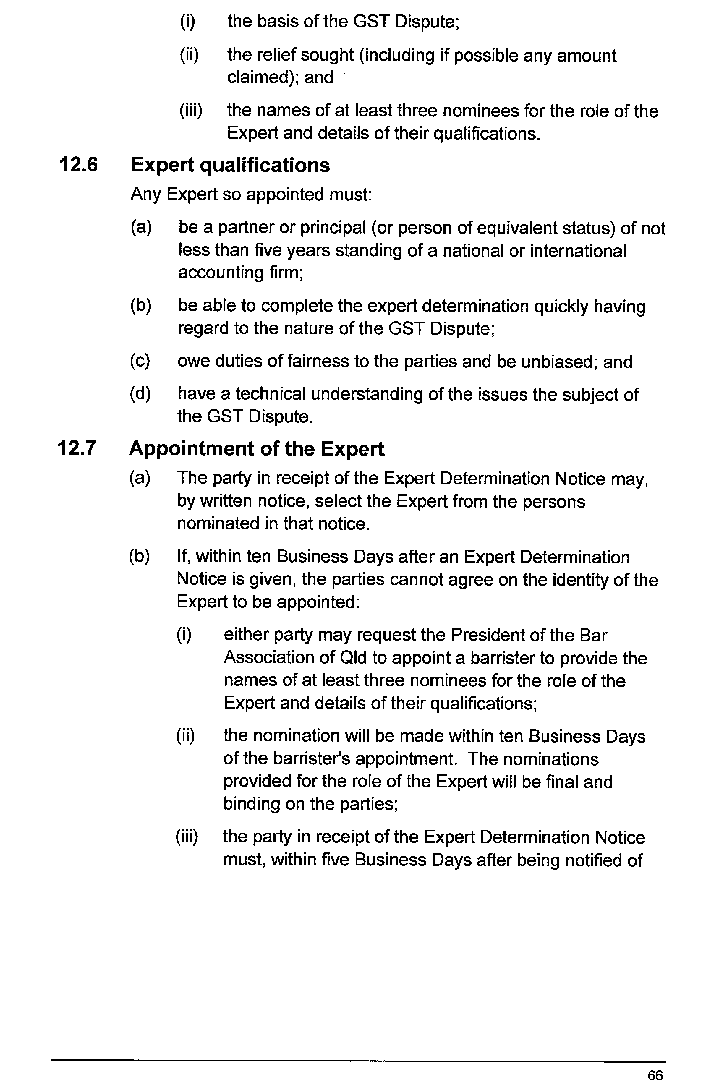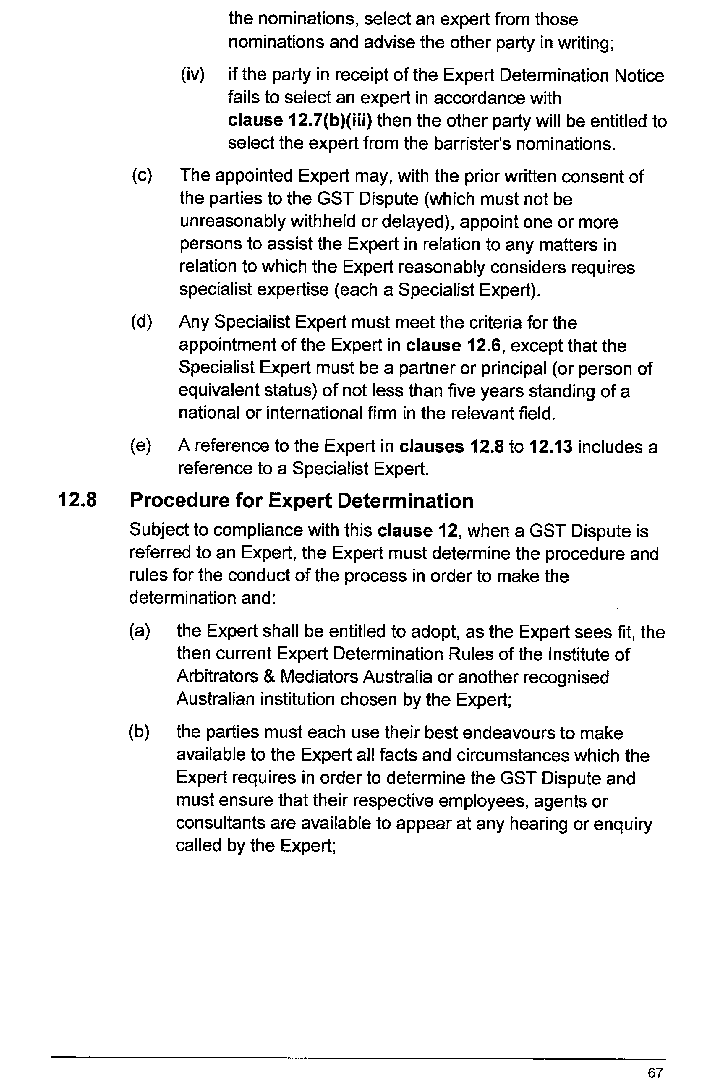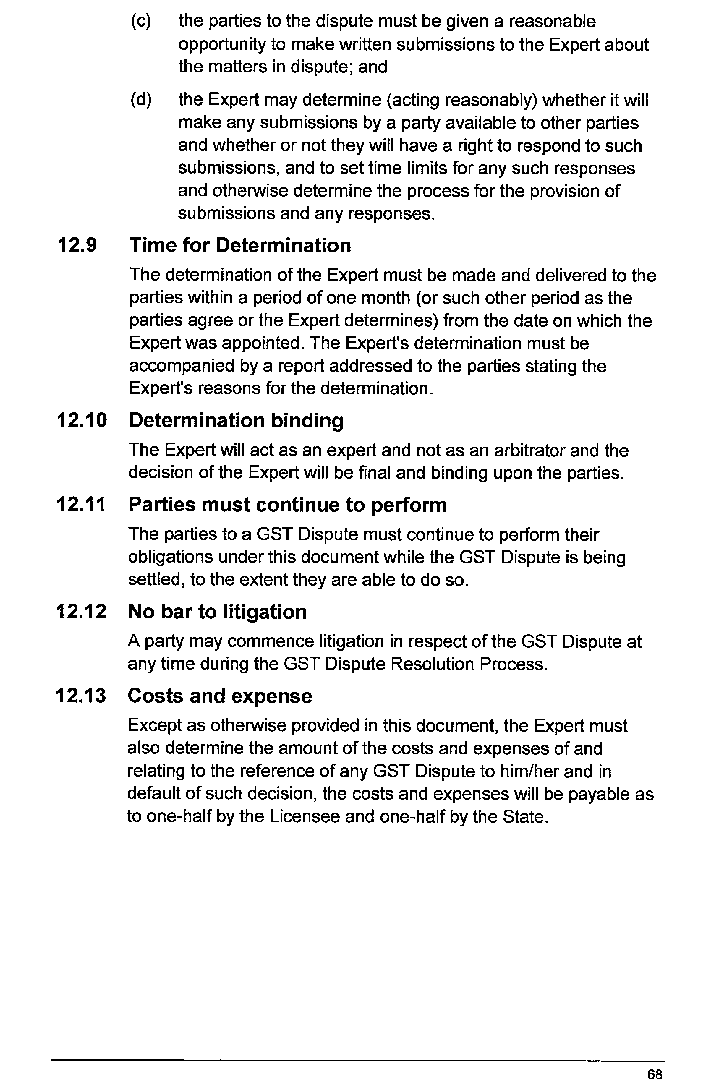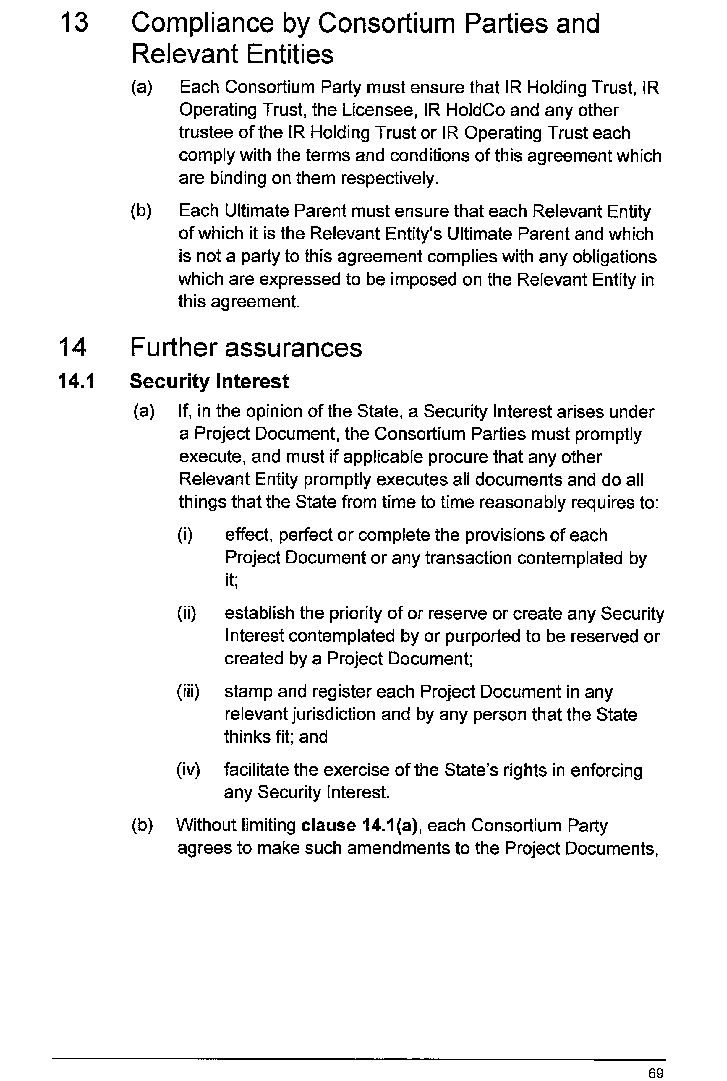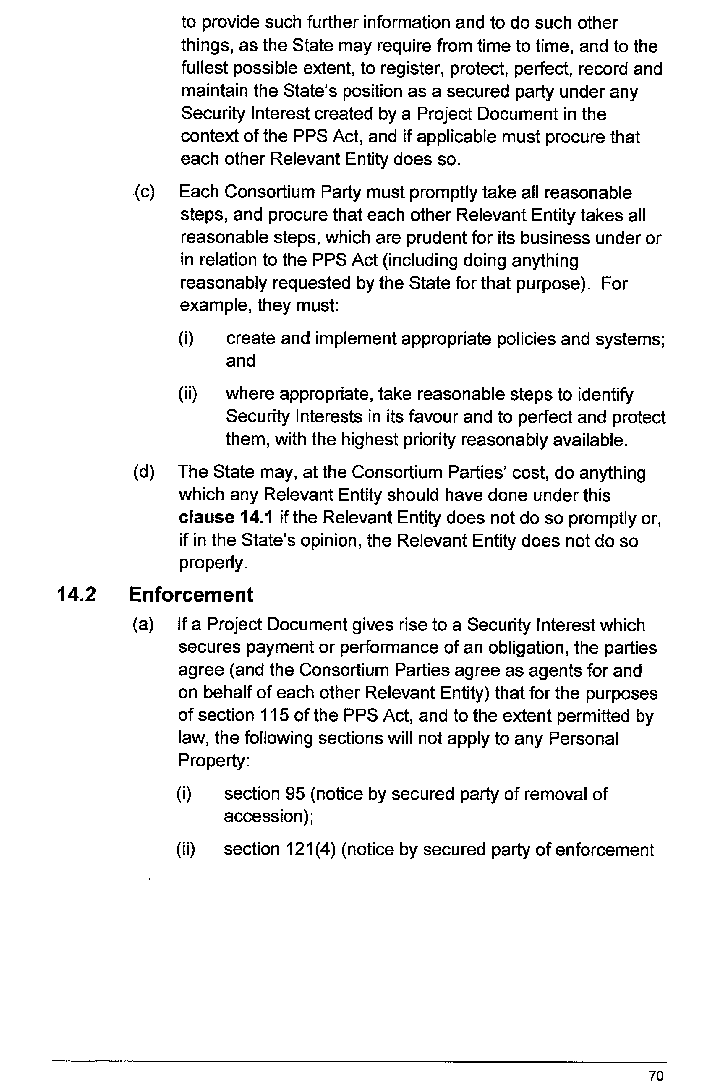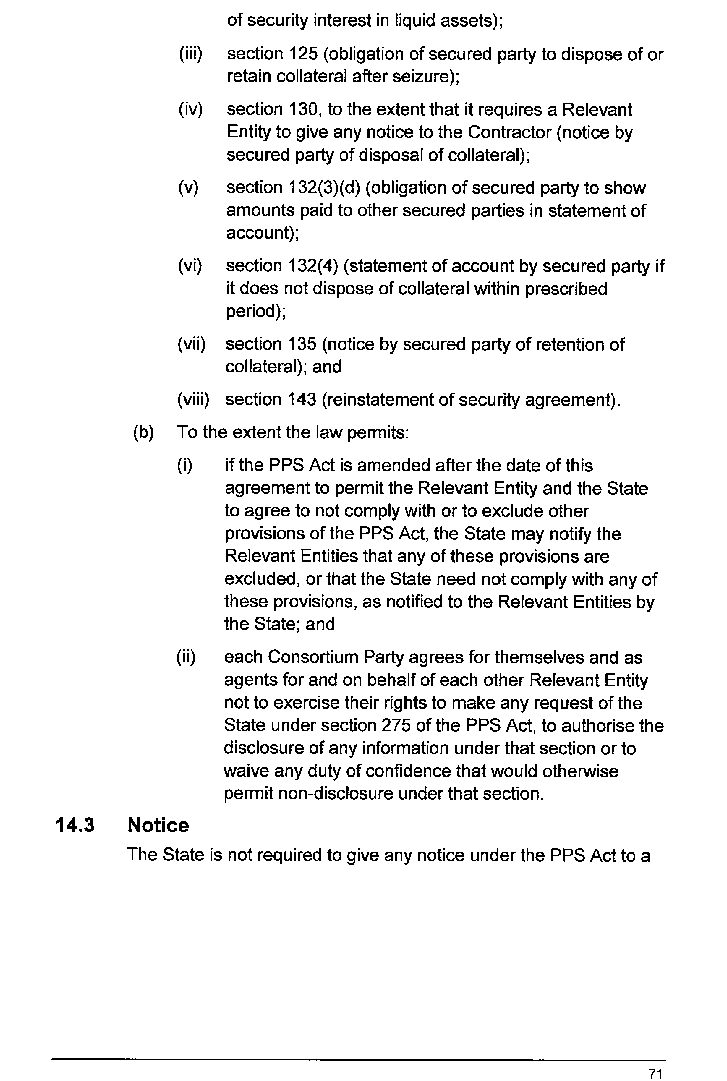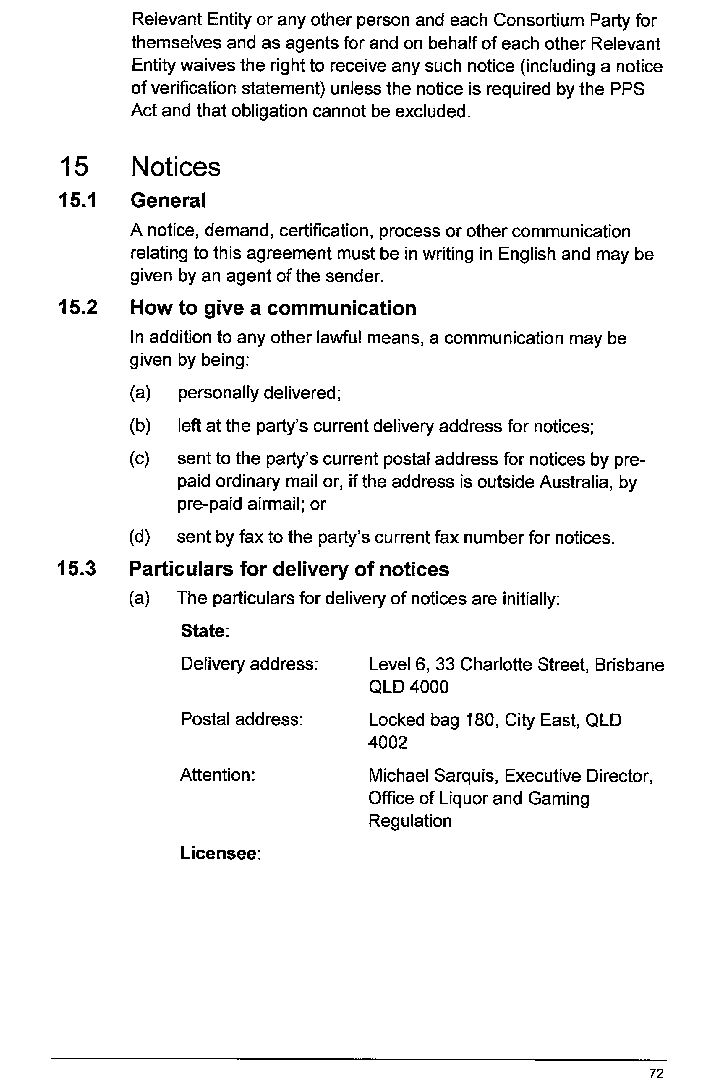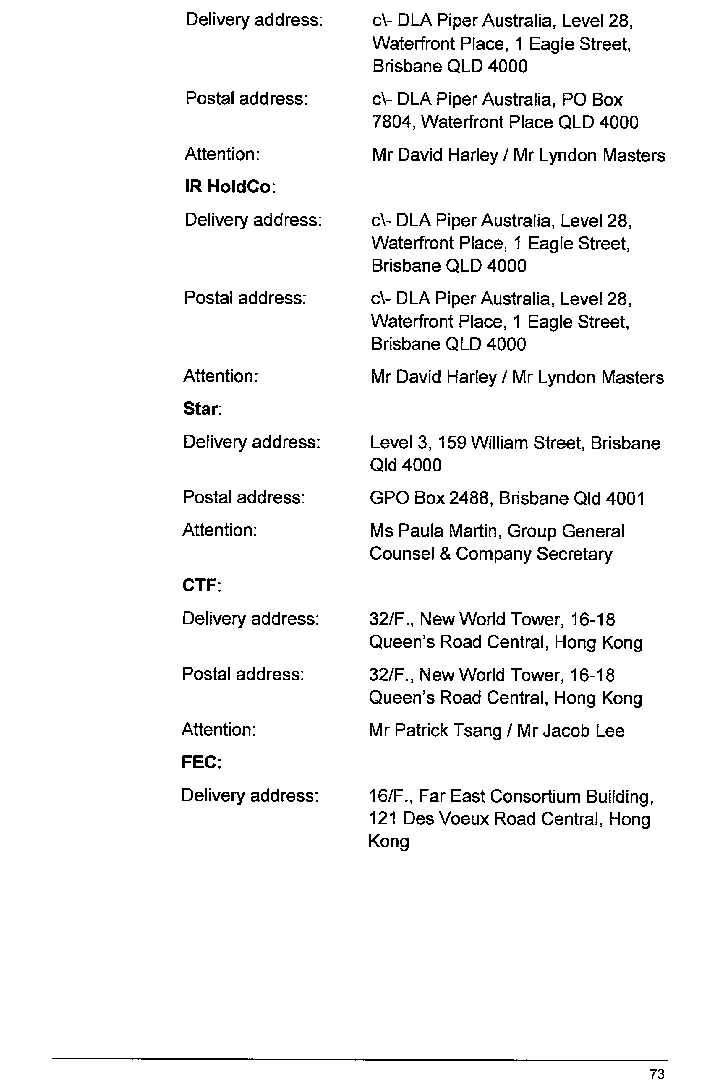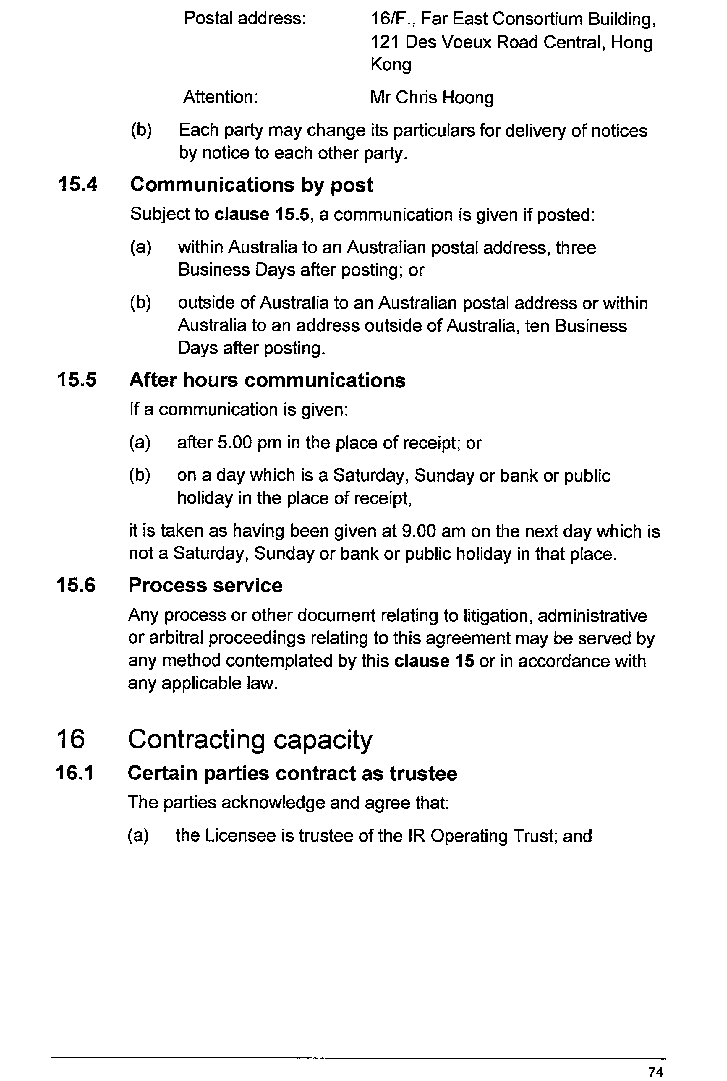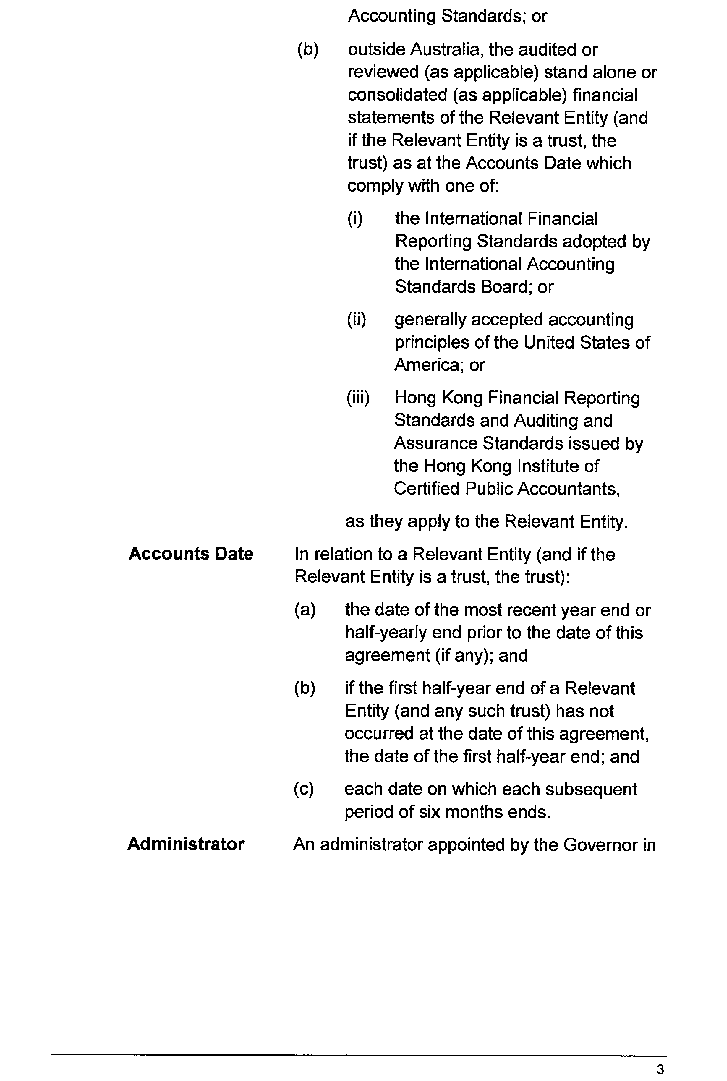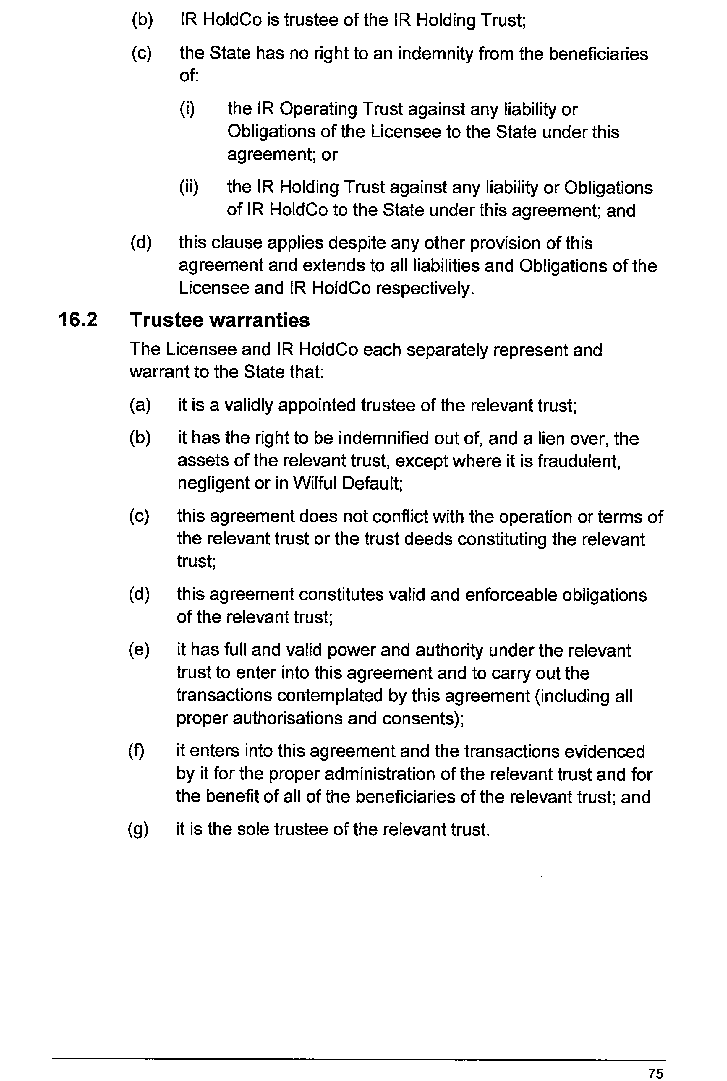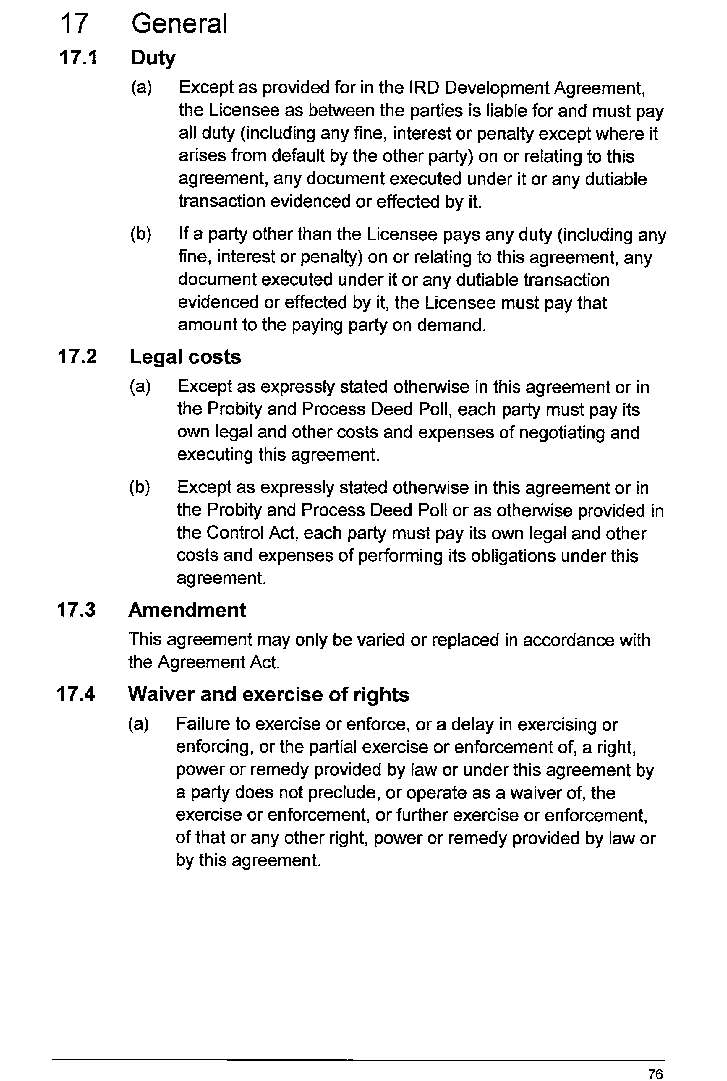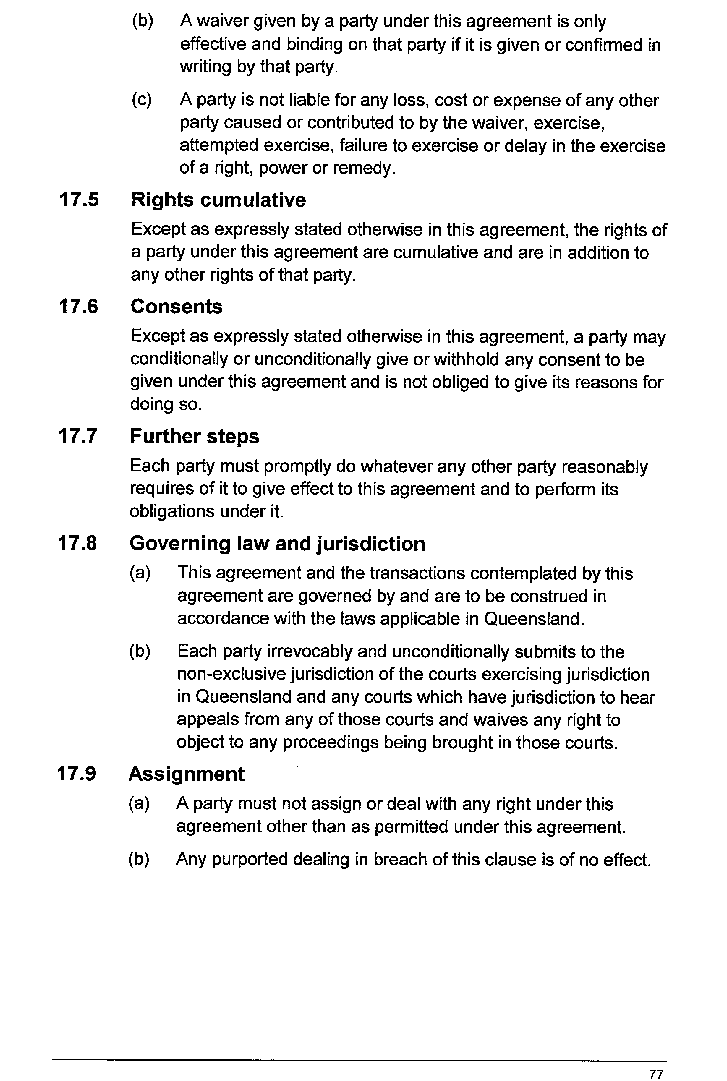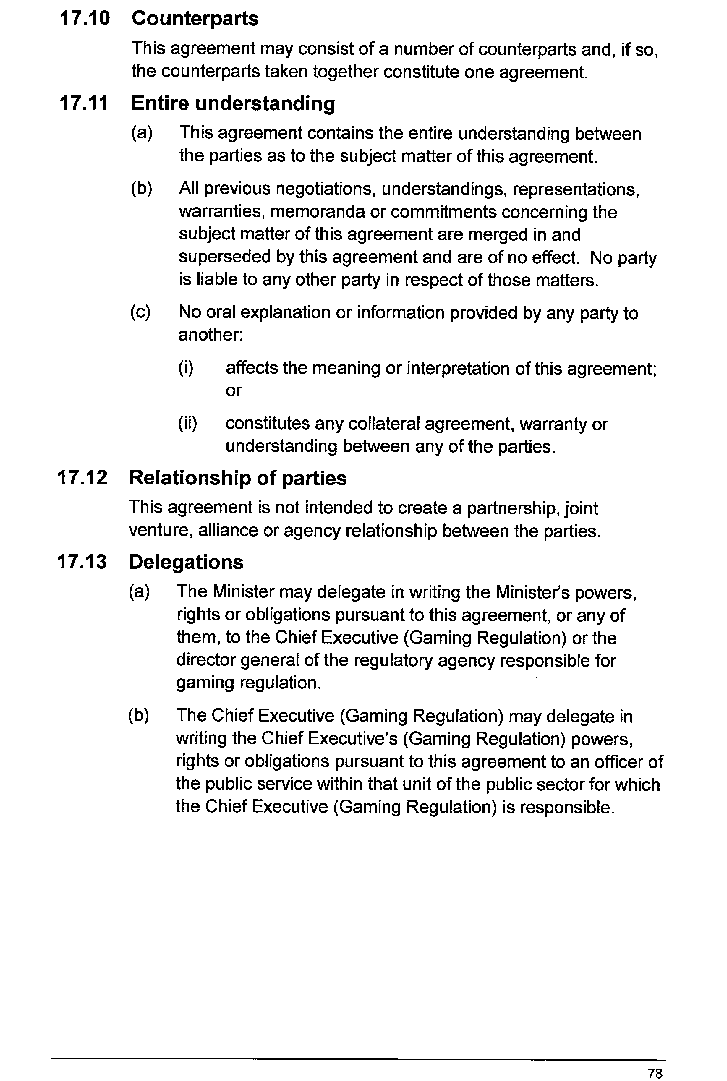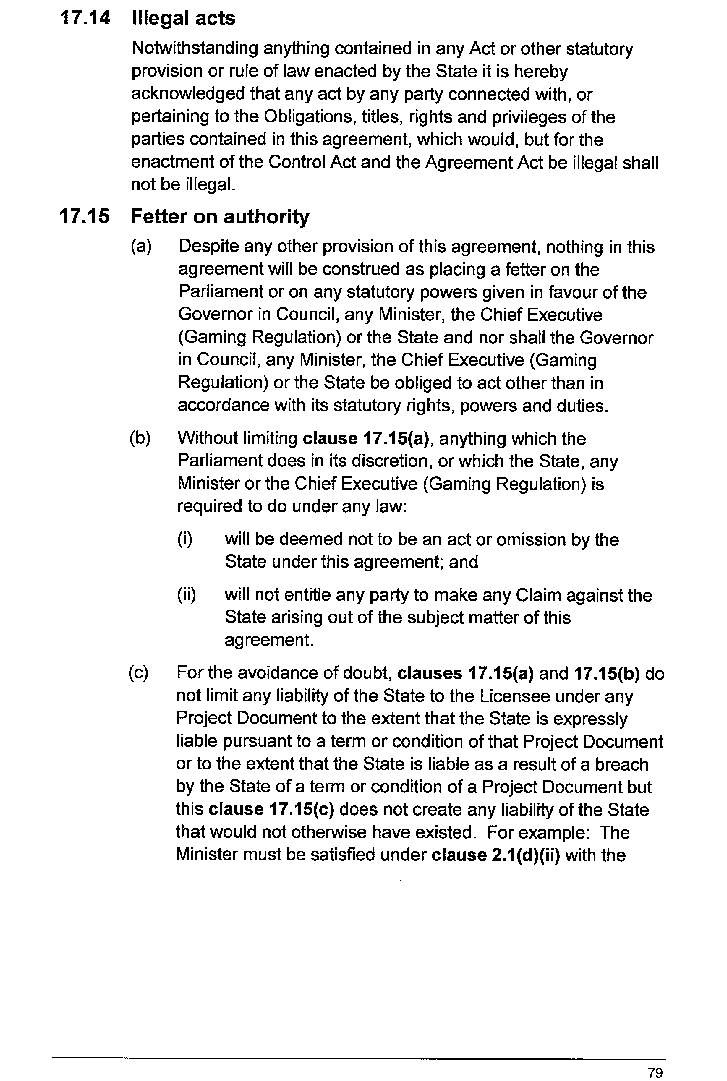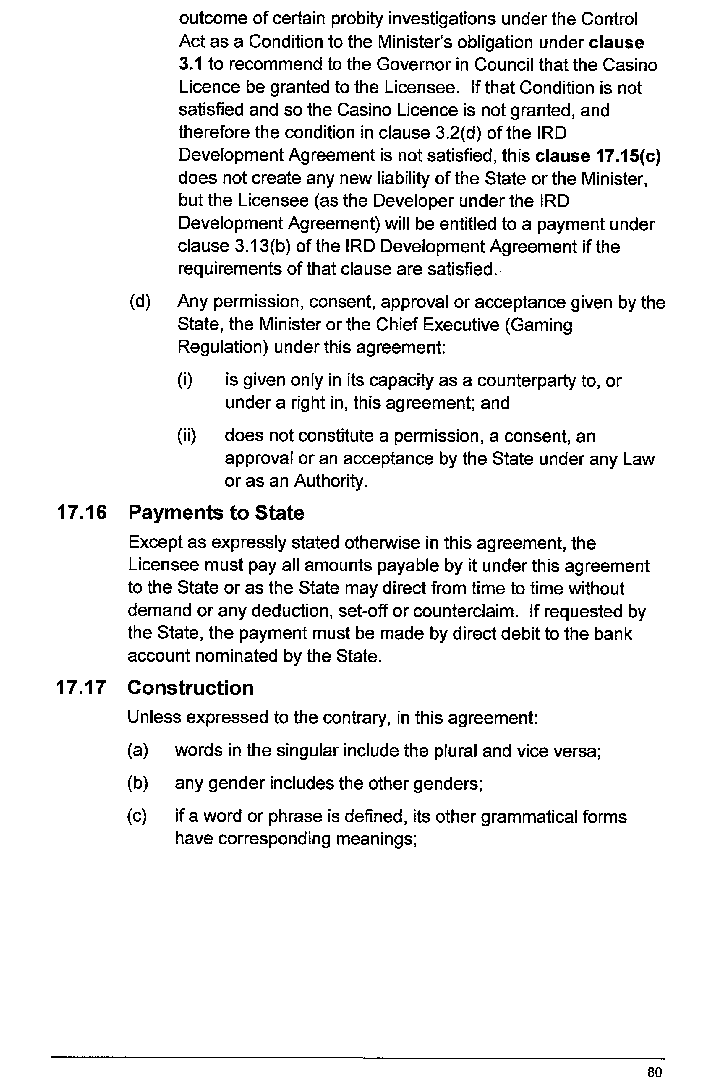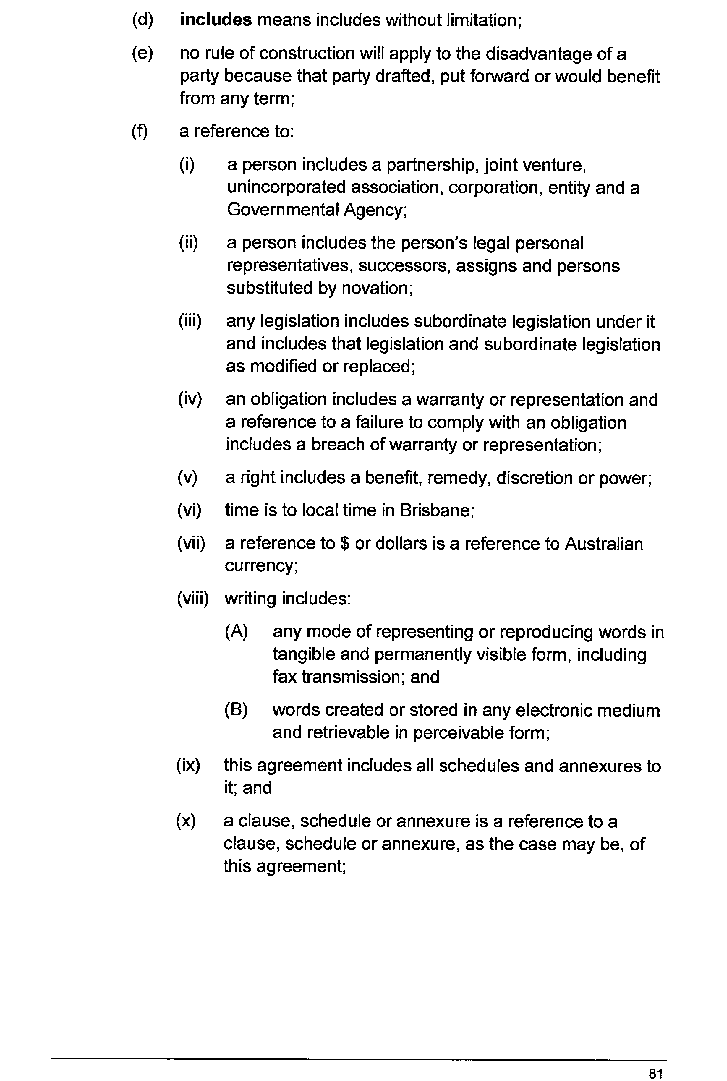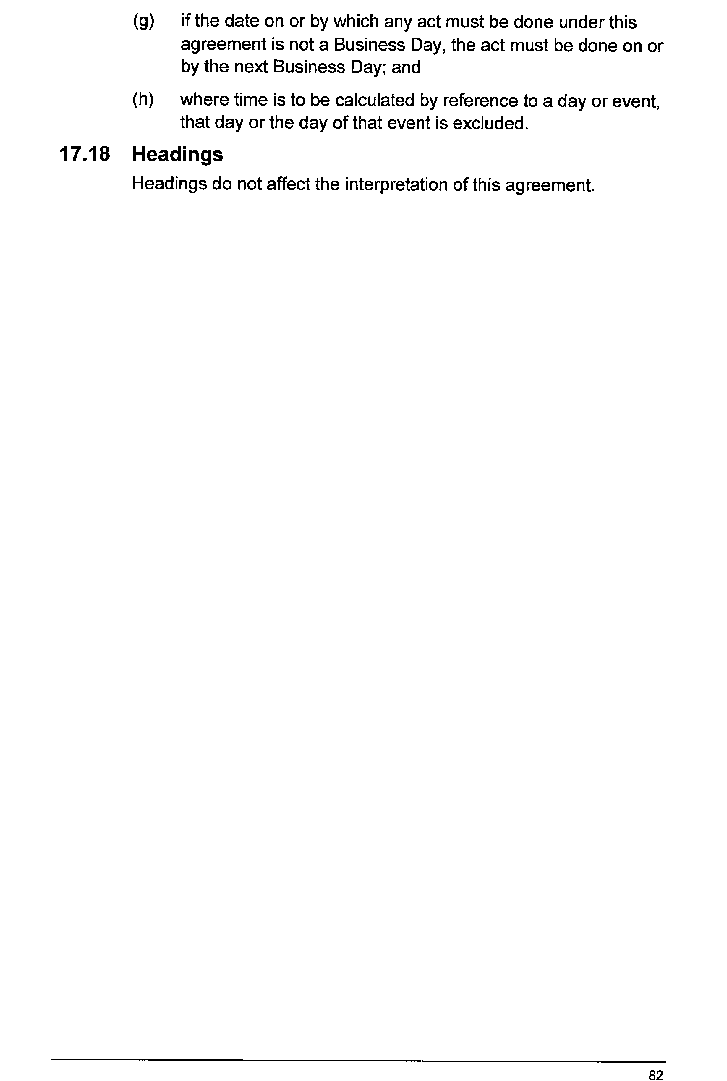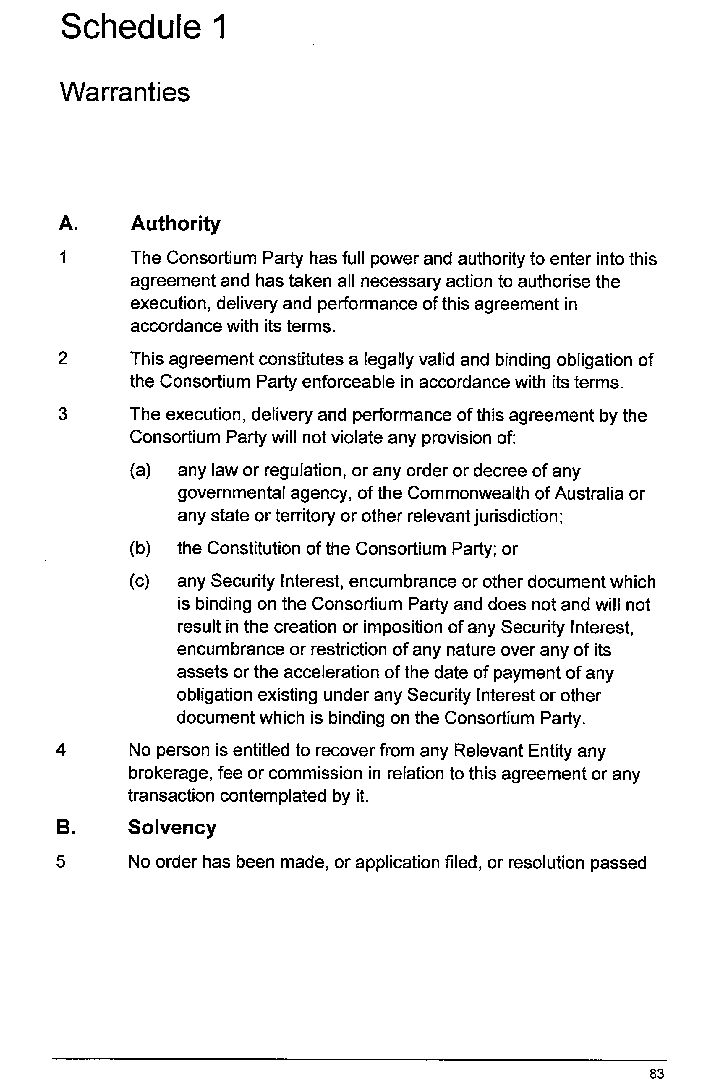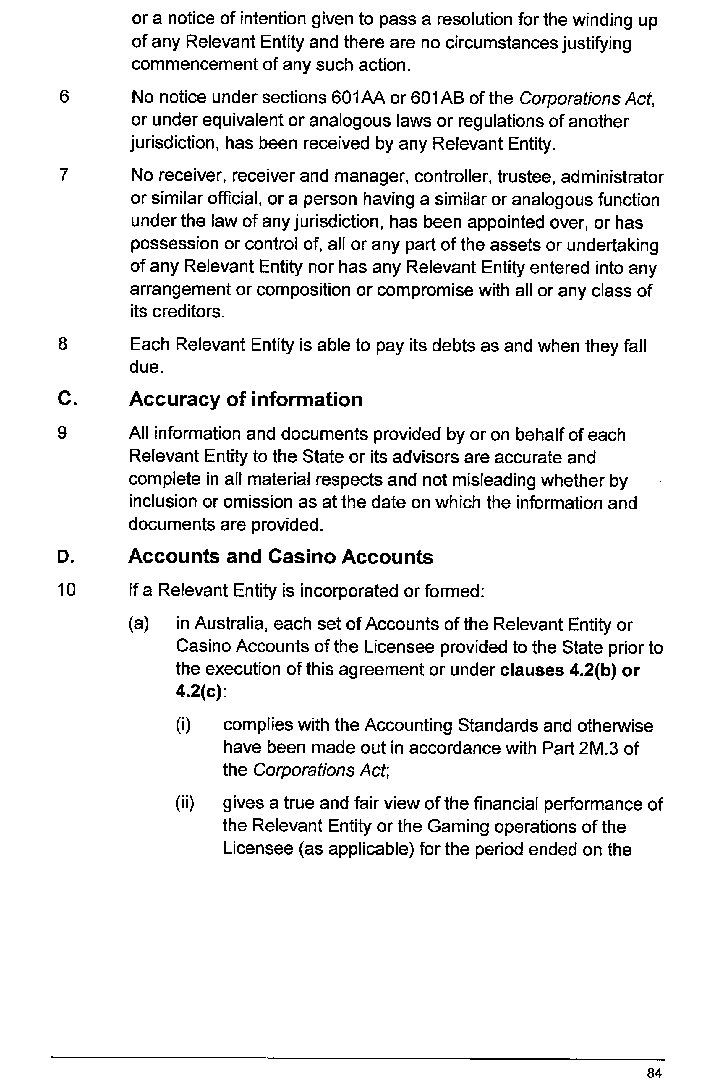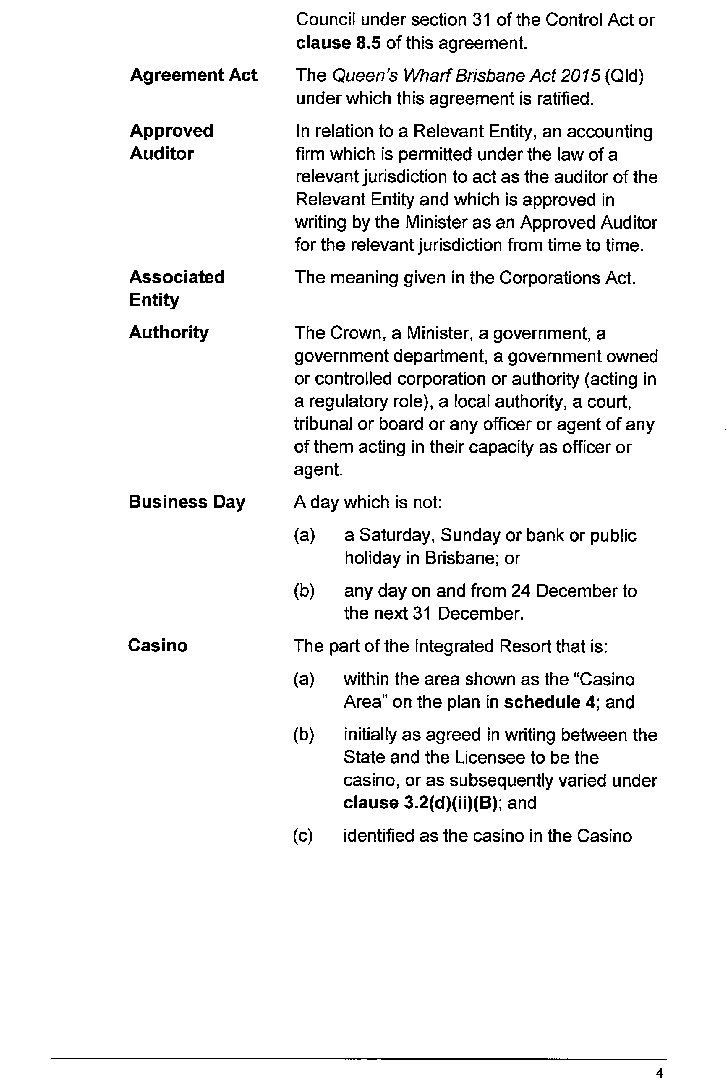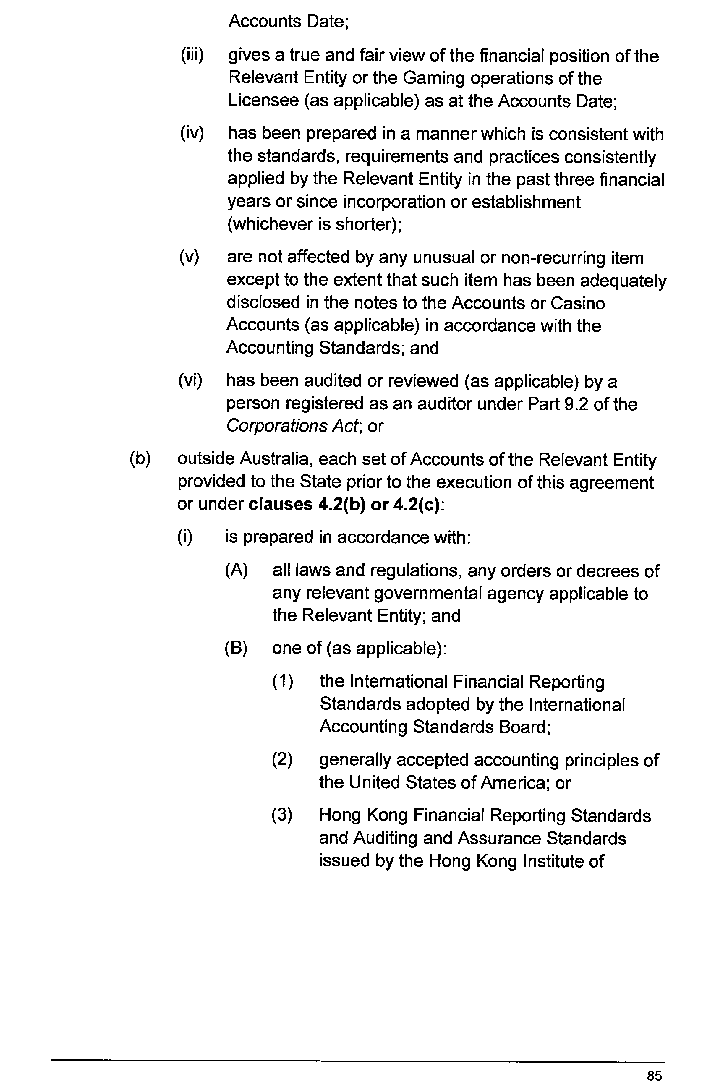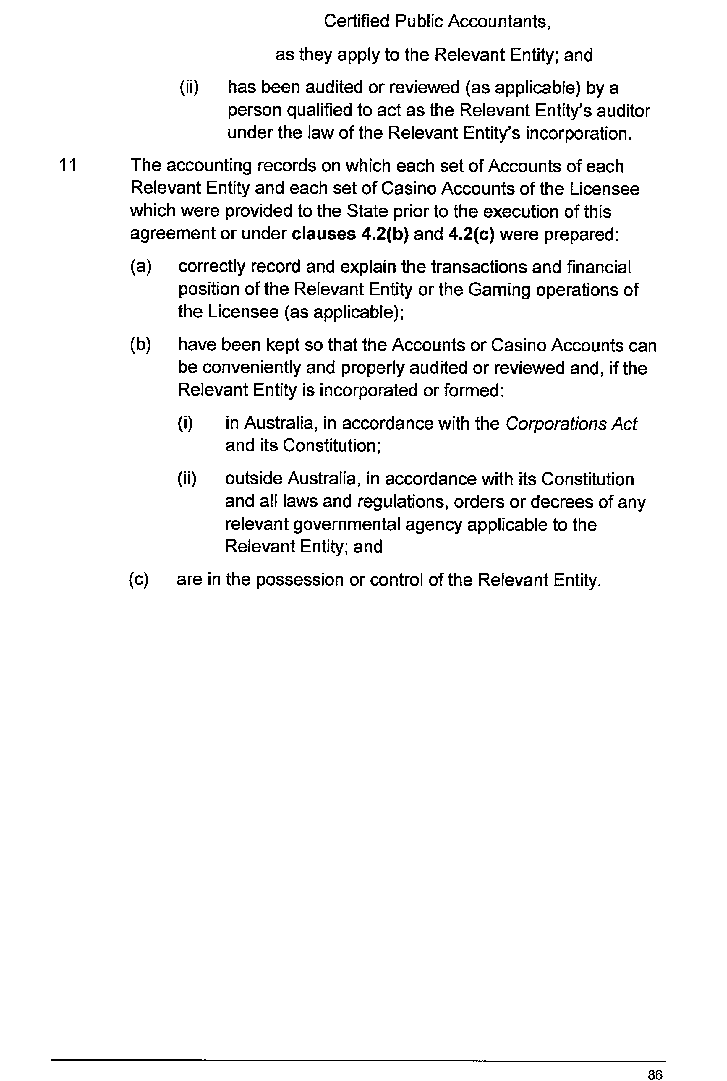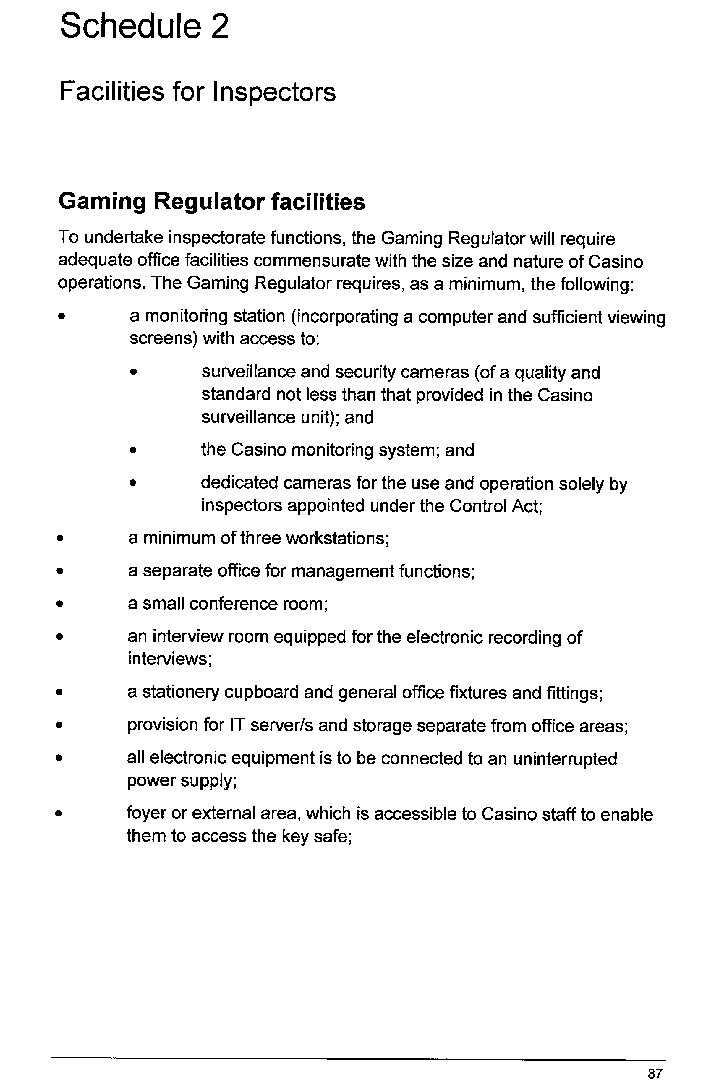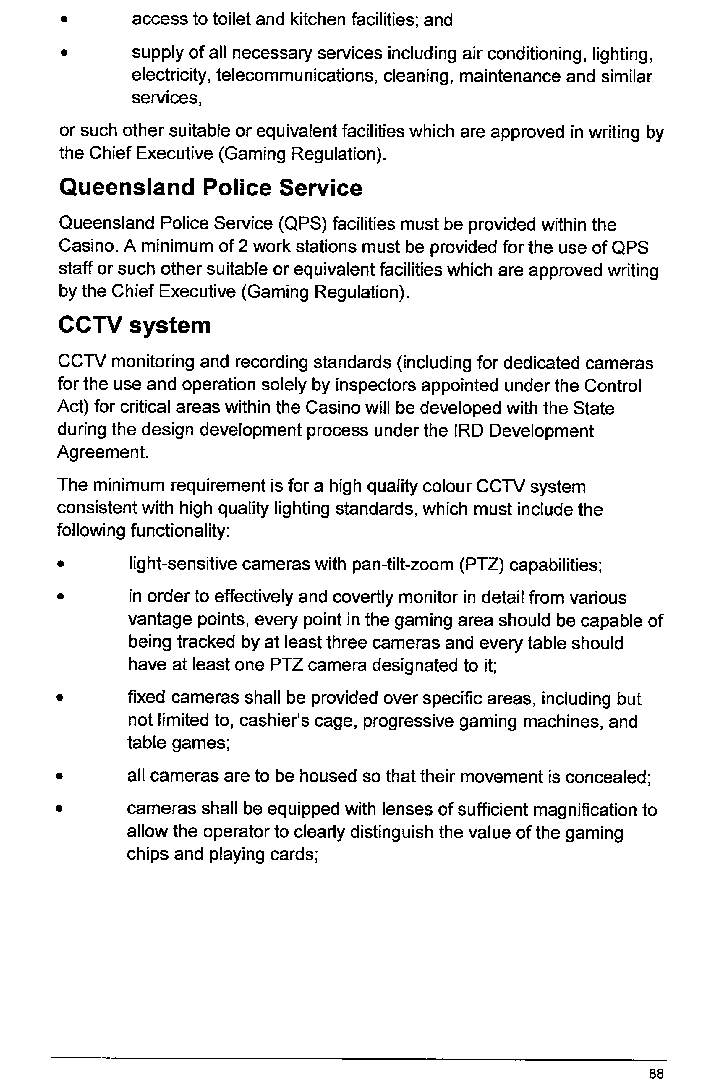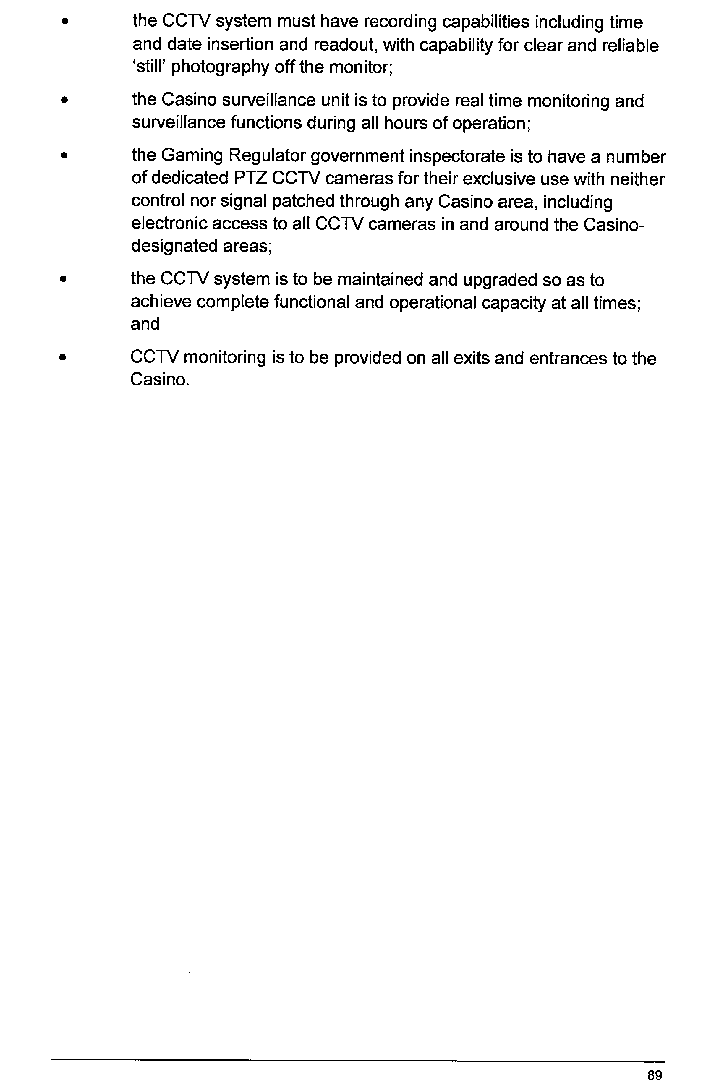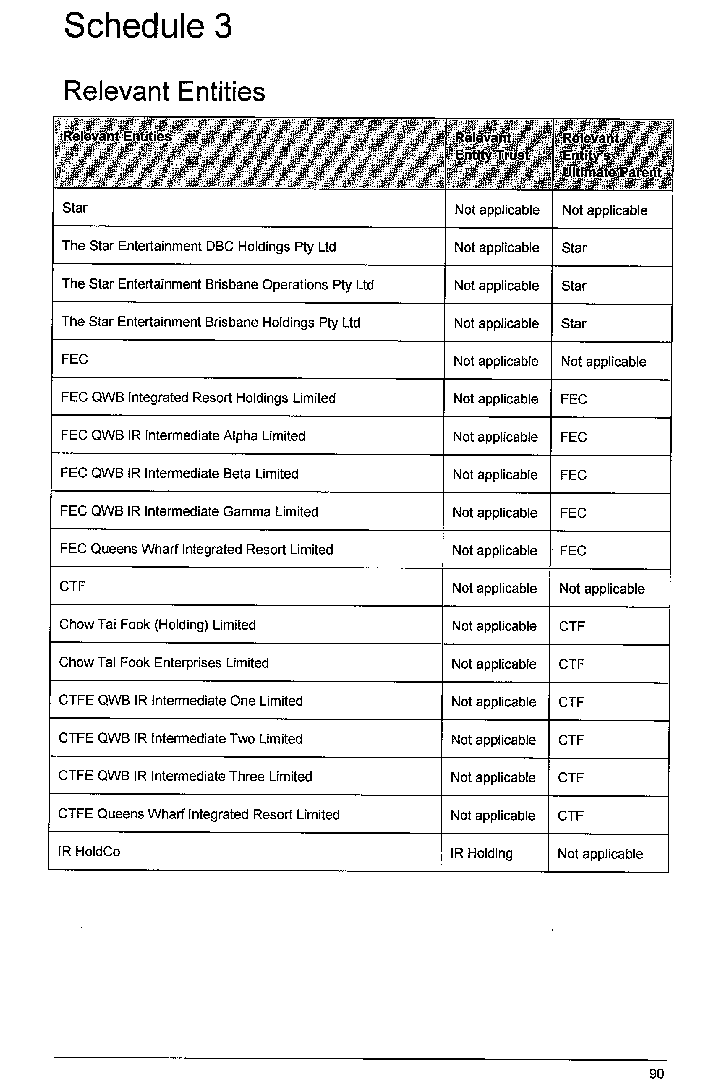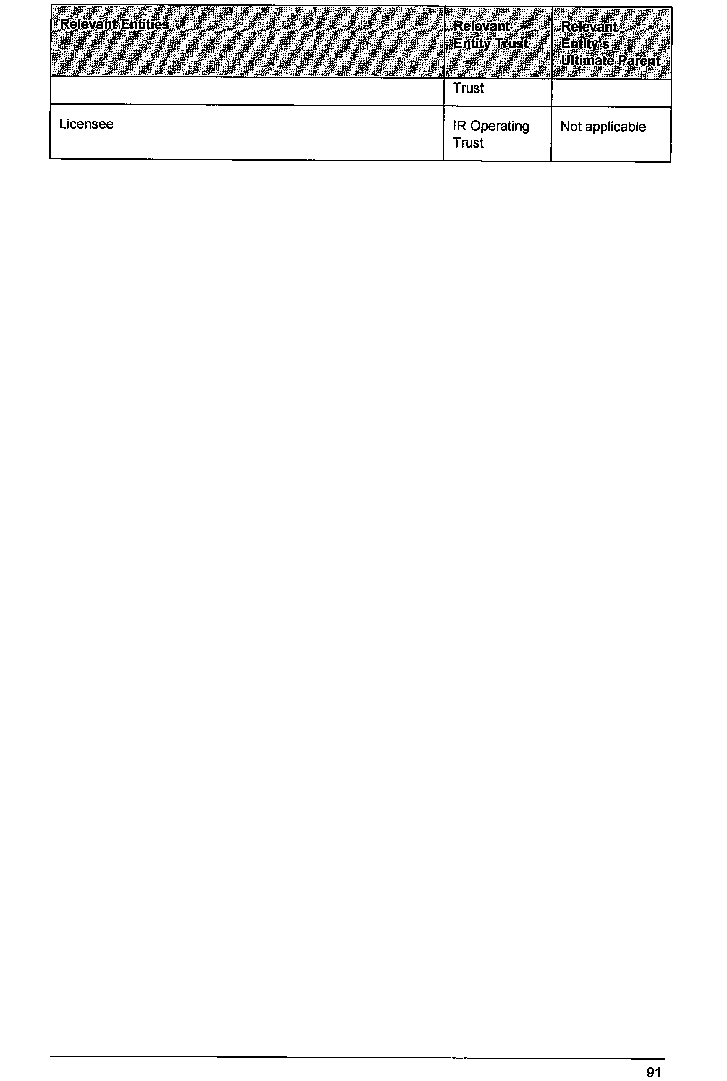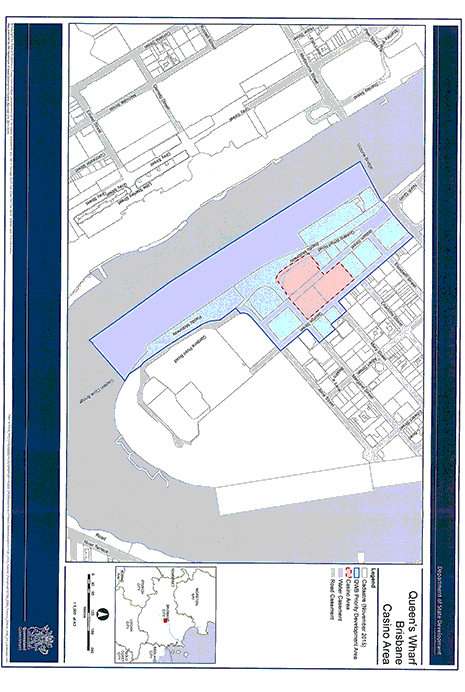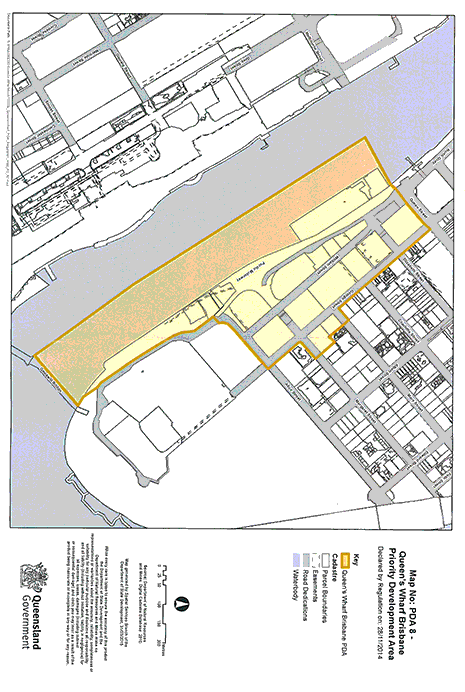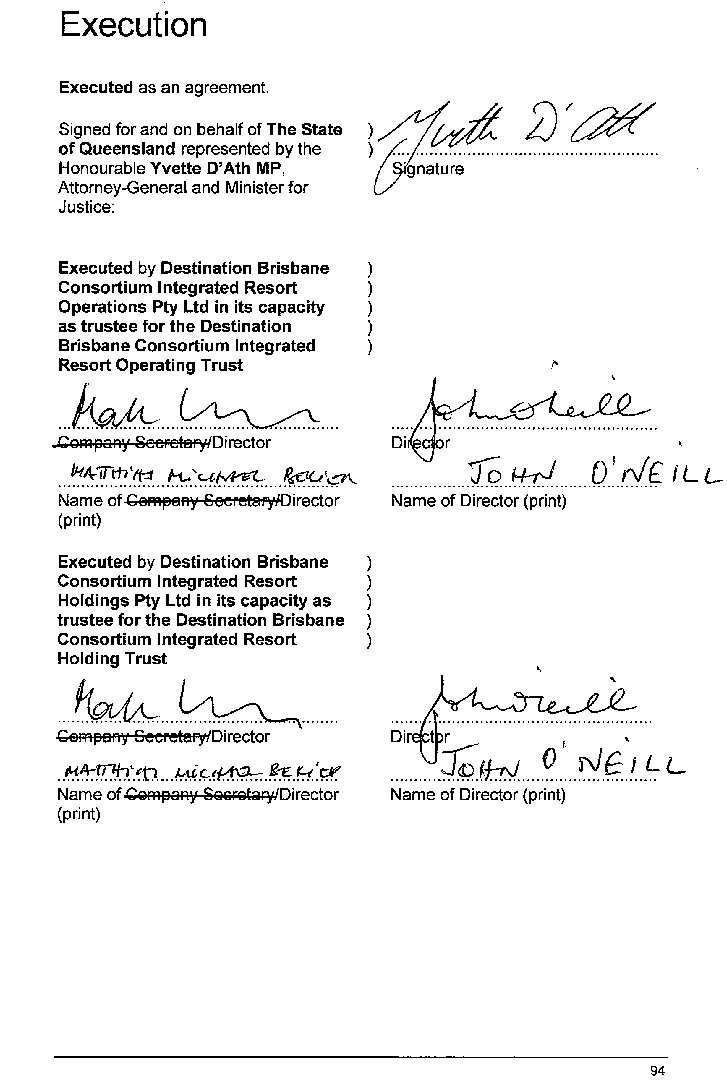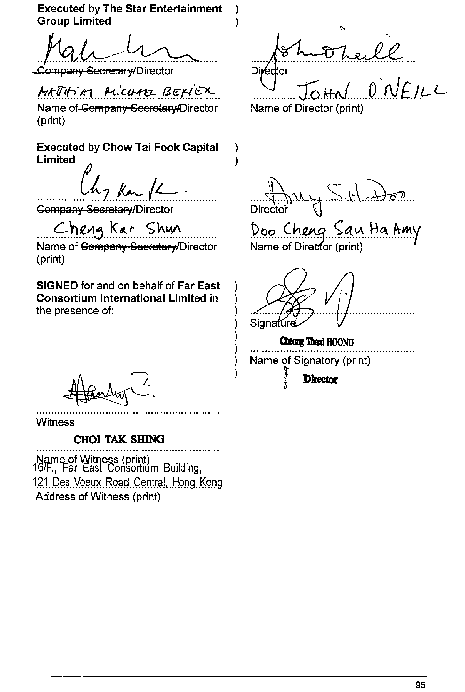An Act to provide for the ratification of the agreement for the Queen’s Wharf Brisbane casino and provide for other matters relating to the development of Queen’s Wharf Brisbane
Long title amd 2016 No. 17 s 68
This Act may be cited as the Queen’s Wharf Brisbane Act 2016.
This Act commences on a day to be fixed by proclamation.
The main purposes of this Act are the following—(a)to provide for the ratification of an agreement for a casino to be located within the Queen’s Wharf priority development area;(b)to enact the agreement as a law;(c)to provide for the way in which an entity may become, or stop being, a party to the agreement;(d)to state the requirements for holding interests in relation to an entity that is a party to, or referred to in, the agreement;(e)to provide for the interaction between this Act and other laws.
4Relationship with other Acts generally
(1)If a provision of this Act is inconsistent with another Act, the provision prevails over the other Act to the extent of the inconsistency.(2)Subsection (1) does not affect a provision of this Act or another Act that expressly deals with the interaction between this Act and the other Act.
(1)This Act binds all persons, including the State.(2)Nothing in this Act makes the State liable to be prosecuted for an offence.
The dictionary in schedule 2 defines particular words used in this Act.
7References to this Act and provisions
Unless the context otherwise requires, a reference to this Act, or a provision of this Act, includes a reference to the casino agreement, or a provision of the agreement.Under section 10, the casino agreement has effect as if it were a law of the State.
8Different drafting practice not to affect meaning
(1)This section applies if—(a)a provision of the casino agreement expresses an idea in particular words; and(b)another provision of this Act appears to express the same idea in different words for the purpose of giving effect to the agreement.(2)The ideas are taken not to be different merely because different words are used.
The casino agreement is the agreement ratified under section 10, as amended from time to time under section 11.
The agreement set out in schedule 1, made by the Minister on behalf of the State—(a)is ratified by the Legislative Assembly for the purposes of the Control Act, section 19; and(b)has effect as if it were a law of the State.
(1)The agreement ratified under section 10 (the original agreement) may be amended by a further agreement between the parties to the agreement.(2)If the further agreement is ratified by the Legislative Assembly, the further agreement—(a)takes effect to amend the original agreement; and(b)has effect as if it were a law of the State.
12Publication of consolidated agreement
The chief executive must, from time to time, publish a document on the department’s website consolidating the agreement ratified under section 10 and any further agreements made and ratified under section 11.
(1)An entity (the second entity) is the holding entity of another entity (the first entity) if the first entity is a subsidiary of the second entity.(2)For deciding whether the first entity is a subsidiary of the second entity, if the first entity is a trustee of a trust and the second entity holds interests in the trust, the definition subsidiary applies with any necessary changes as if—(a)the trust were a body corporate; and(b)interests in the trust were shares in the body corporate; and(c)a meeting of members of the trust were a general meeting of the body corporate; and(d)the appointment of a trustee for the trust were the election of the directors of the body corporate; and(e)if the second entity holds the interests in the first entity as a trustee of a trust—that trust were a body corporate.
14Becoming a party to casino agreement
(1)This section applies to a person if—(a)the person proposes to become a holding entity of a relevant entity; or(b)the person proposes to become a trustee of a trust to which each of the following applies—(i)a consortium party is a trustee of the trust;(ii)the trust is a relevant entity;(iii)the trust holds interests in another relevant entity; or(c)the Governor in Council decides, on the Minister’s recommendation, to require the person to become a party to the casino agreement, including, for example, as a condition of granting an approval under chapter 4, part 2, division 1; or(d)the person and the Minister agree in writing that the person will become a party to the casino agreement.(2)Despite subsection (1), the Minister may decide this section does not apply to a person mentioned in subsection (1)(a) or (b).(3)The person must, on or before the compliance day, sign a deed in the approved form (an accession deed) under which the person becomes, subject to the terms and conditions stated in the deed, each of the following—(a)a party to the casino agreement;(b)a consortium party;(c)a relevant entity;(d)if applicable, an ultimate parent under the casino agreement.Maximum penalty—40 penalty units.
A direction may also be given under chapter 4, part 3 enforcing compliance with this requirement.(4)For subsection (3), the compliance day is—(a)for a person mentioned in subsection (1)(a) or (b)—(i)the day that is 2 weeks before the day on which the person becomes a holding entity or trustee mentioned in the subsection; or(ii)if the Minister gives the person a written notice stating a later day for the purposes of this subsection—the later day; or(b)for a person mentioned in subsection (1)(c)—the day stated in the Governor in Council’s decision for the purposes of this subsection; or(c)for a person mentioned in subsection (1)(d)—the day agreed by the person and the Minister for the purposes of this subsection.(5)For subsection (4)(b), the day stated in the Governor in Council’s decision must be at least a reasonable period after notice of the decision is given to the person.(6)The accession deed takes effect when—(a)the signed accession deed has been published in the gazette; and(b)it has become unconditional.(7)This section does not limit the operation of chapter 4, part 2.
15Ceasing to be a party to casino agreement
(1)This section applies if—(a)a consortium party (the ceasing party) stops being, or proposes to stop being—(i)a holding entity of a relevant entity; or(ii)a trustee of a trust that is a relevant entity; and(b)the Minister and each other consortium party consents in writing to the ceasing party no longer being a party to the casino agreement.(2)Also, this section applies in relation to a consortium party (also the ceasing party) in any other circumstances decided by the Minister, if each other consortium party consents in writing to the ceasing party no longer being a party to the casino agreement.(3)The ceasing party may sign a deed in the approved form (a deed of cessation) under which the ceasing party stops being, subject to the terms and conditions stated in the deed, each of the following—(a)a party to the casino agreement;(b)a consortium party;(c)a relevant entity;(d)if applicable, an ultimate parent under the casino agreement.(4)Despite subsection (3)(c), the ceasing party does not stop being a relevant entity if, on or after the signing of the deed of cessation, the party is declared to be a relevant entity by the Minister under section 17(1)(c).(5)The deed of cessation is of no effect unless—(a)the ceasing party gives a copy of the signed deed to the Minister and each other consortium party; and(b)the signed deed has been published in the gazette.(6)If the requirements mentioned in subsection (5)(a) and (b) are satisfied, the deed of cessation takes effect when it becomes unconditional.(7)This section does not limit the operation of chapter 4, part 2.
In this chapter—associate, of a person in relation to a relevant entity, has the meaning given under the Corporations Act, sections 12 and 16(1).convertible securities, in a relevant entity, means securities in any class that are convertible into interests in the entity.interest, in a relevant entity, means a voting interest or non-voting interest in the entity.managed investment scheme see the Corporations Act, section 9.non-voting interest, in a relevant entity, means—(a)if the entity is a trust—an interest in the trust, other than a voting interest, within the meaning of the Corporations Act as if the trust were a managed investment scheme; orIn relation to trusts, see also section 19.(b)otherwise—a non-voting share within the meaning of the Corporations Act.relevant entity see section 17.relevant interest, in interests or convertible securities in a relevant entity, see section 18.required approval means prior written approval given under the provision in which the reference appears.security means—(a)a security mentioned in the Corporations Act, section 92(3); or(b)an interest in a managed investment scheme, other than a registered scheme within the meaning of the Corporations Act; orAn interest in a registered scheme is a security mentioned in paragraph (a).(c)an interest in a trust that, but for the operation of section 19, would not be a managed investment scheme because of paragraph (e) of the definition managed investment scheme under the Corporations Act, section 9.voting interest, in a relevant entity, means—(a)if the entity is a trust—a voting interest within the meaning of the Corporations Act as if the trust were a managed investment scheme; orIn relation to trusts, see also section 19.(b)otherwise—a voting share within the meaning of the Corporations Act.voting power, of a person in a relevant entity, has the meaning given under the Corporations Act, section 610.1A person’s voting power in a relevant entity that is a body corporate does not include voting power in a relevant entity that is a trust of which the body corporate is a trustee.2See also section 19 in relation to trusts.3Under part 2, division 1, a person must comply with the approval requirements separately in relation to—(a)voting power in a relevant entity that is a body corporate; and(b)voting power in a relevant entity that is a trust of which the body corporate is a trustee.
(1)Each of the following entities is a relevant entity—(a)an entity listed in the casino agreement, schedule 3, column 1 or 2;(b)an entity that becomes a party to the casino agreement under chapter 3;(c)an entity declared by the Minister, by notice, to be a relevant entity.A trust, and a trustee of the trust, may be separate relevant entities. See also section 19 in relation to trusts.(2)However, relevant entity does not include—(a)an entity that stops being a party to the casino agreement under chapter 3; or(b)an entity declared by the Minister, by notice, not to be a relevant entity.(3)The Minister may declare an entity to be a relevant entity under subsection (1)(c) only if, in the Minister’s opinion—(a)the entity can influence the ownership, management or operations of another relevant entity in relation to the Queen’s Wharf complex or the Queen’s Wharf casino; or(b)the entity is a subsidiary of, or is otherwise controlled or significantly influenced by—(i)the licensee or IR Holdco; or(ii)another relevant entity that is a trustee of the IR Holding Trust or IR Operating Trust.(4)The Minister may declare an entity not to be a relevant entity under subsection (2)(b) only if, in the Minister’s opinion—(a)the entity can not influence the ownership, management or operations of another relevant entity in relation to the Queen’s Wharf complex or the Queen’s Wharf casino; and(b)the entity is not a subsidiary of, or otherwise controlled or significantly influenced by—(i)the licensee or IR Holdco; or(ii)another relevant entity that is a trustee of the IR Holding Trust or IR Operating Trust.(5)A notice under subsection (1)(c) or (2)(b) is subordinate legislation.(6)The Minister must give a copy of a notice under subsection (1)(c) or (2)(b) to the entity to which the declaration relates.
18Meaning of relevant interest
(1)A person’s relevant interest, in interests or convertible securities in a relevant entity, has the meaning given under the Corporations Act.1If a relevant entity is a body corporate, a person’s relevant interest in interests or convertible securities in the entity does not include a relevant interest in interests or convertible securities in a trust of which the entity is a trustee.2Under part 2, division 1, a person must comply with the approval requirements separately in relation to—(a)interests or convertible securities in a relevant entity that is a body corporate; and(b)interests or convertible securities in a relevant entity that is a trust of which the body corporate is a trustee.(2)For subsection (1), interests in a relevant entity that is a trust are taken to be securities.
(1)For this chapter, a trust is taken to be—(a)an entity; and(b)a managed investment scheme and a designated body under the Corporations Act.(2)For applying a provision of this Act in relation to a trust—(a)if the provision imposes an obligation in relation to the trust, the obligation is taken to be imposed in relation to each trustee of the trust acting in that capacity; and(b)if the provision refers to consent given by the trust, the consent must be given by each trustee of the trust acting in that capacity; and(c)if the provision requires a document to be given to or by the trust, the document must be given to or by a trustee of the trust.
1See subdivision 3 for general provisions about the giving of approvals under subdivision 1 or 2.2A direction may be given under part 3 enforcing compliance with a requirement under this division.
(1)This section applies to a person’s voting power in any of the following relevant entities—(a)the licensee or IR Holdco;(b)any other relevant entity that is a trustee of the IR Holding Trust or IR Operating Trust;(c)the IR Holding Trust or IR Operating Trust.(2)The person’s voting power in the relevant entity must not, without the required approval, be—(a)more than 5% but not more than 10%; or(b)more than 10% but not more than 20%; or(c)more than 20%.(3)The required approval must be given by—(a)for subsection (2)(a)—the Minister; or(b)for subsection (2)(b) or (c)—the Governor in Council.(4)If a person has voting power in more than 1 relevant entity mentioned in subsection (1), the person must comply with subsection (2) in relation to each of the entities.
(1)This section applies to non-voting interests in—(a)the licensee or IR Holdco; or(b)any other relevant entity that is a trustee of the IR Holding Trust or IR Operating Trust; or(c)the IR Holding Trust or IR Operating Trust.(2)The total number of non-voting interests in which a person has a relevant interest must not, without the required approval, be—(a)more than 10% but not more than 20% of the total number of interests of the same class on issue; or(b)more than 20% of the total number of interests of the same class on issue.(3)For subsection (2)(a) or (b), the required approval must be given by the Governor in Council.(4)For this section, a person’s relevant interest in non-voting interests includes a relevant interest of an associate of the person in non-voting interests of the same class on issue, other than the non-voting interests in which the person has a relevant interest.Person X has a relevant interest in 4% of a class of non-voting interests.If person X’s associate has a relevant interest in a different 3% of the class of non-voting interests, person X’s relevant interest would be 7%.However, if person X’s associate has a relevant interest in the same 4% of the class of non-voting interests as person X, then person X’s relevant interest would be 4%.(5)If a person has a relevant interest in non-voting interests in more than 1 relevant entity mentioned in subsection (1), the person must comply with subsection (2) in relation to each of the entities.
(1)This section applies to convertible securities in—(a)the licensee or IR Holdco; or(b)any other relevant entity that is a trustee of the IR Holding Trust or IR Operating Trust; or(c)the IR Holding Trust or IR Operating Trust.(2)The total number of convertible securities in which a person has a relevant interest must not, without the required approval, be—(a)more than 10% but not more than 20% of the total number of convertible securities of the same class on issue; or(b)more than 20% of the total number of convertible securities of the same class on issue.(3)For subsection (2)(a) or (b), the required approval must be given by the Governor in Council.(4)For this section, a person’s relevant interest in convertible securities includes a relevant interest of an associate of the person in convertible securities of the same class, other than the convertible securities in which the person has a relevant interest.(5)If a person has a relevant interest in convertible securities in more than 1 relevant entity mentioned in subsection (1), the person must comply with subsection (2) in relation to each of the entities.
(1)This section applies to a person’s voting power in a relevant entity, other than a relevant entity mentioned in section 20(1).(2)The person’s voting power must not be more than 20% without the required approval.(3)For subsection (2), the required approval must be given by the Governor in Council.(4)If a person has voting power in more than 1 relevant entity mentioned in subsection (1), the person must comply with subsection (2) in relation to each of the entities.
24Requirement about suitability
The Governor in Council or the Minister may give a person approval under this division only if satisfied, on the basis of an investigation under the Control Act, section 20 or 30, that the person is a suitable person to be associated or connected with the ownership, management or operations of the Queen’s Wharf complex or the Queen’s Wharf casino.
(1)The Governor in Council or the Minister may give a person approval under this division subject to conditions.(2)If approval is given subject to conditions, the person must comply with the conditions.A direction may be given under part 3, division 1 enforcing compliance with the conditions of an approval.
26Effect of direction under pt 3, div 2
(1)This section applies if—(a)the Governor in Council or the Minister has given a person approval under this division; and(b)the Governor in Council gives the person a direction under part 3, division 2.(2)The approval is revoked when the direction is given to the person.
27Notice requirements relating to the licensee and IR Holdco
(1)A regulation may require a person to give a relevant entity mentioned in subsection (2), or the Minister, stated information known to the person about any matter related to interests, or convertible securities, in the relevant entity.(2)For subsection (1), the relevant entities are—(a)the licensee or IR Holdco; or(b)any other relevant entity that is a trustee of the IR Holding Trust or IR Operating Trust; or(c)the IR Holding Trust or IR Operating Trust.(3)The regulation may require the information to be given within a stated period and in a stated way.
28Notice requirements relating to other relevant entities
(1)If a person’s voting power in a relevant entity other than a relevant entity mentioned in section 27(2) is more than 10% but not more than 20%, the person must give the relevant entity written notice, in the approved form, within 5 business days after the person’s voting power first exceeds 10%.Maximum penalty—40 penalty units.
(2)If the relevant entity is aware the person’s voting power is more than 10%, the relevant entity must, within the period mentioned in subsection (3), give the Minister written notice of that fact in the approved form.Maximum penalty—40 penalty units.
(3)For subsection (2), the period is 10 business days after the earlier of the following events—(a)the relevant entity receives notice of the person’s voting power under subsection (1);(b)the relevant entity otherwise becomes aware the person’s voting power is more than 10%.
A regulation may exempt a person, or a class of persons, in stated circumstances from the requirement to comply with a provision of division 1, subdivision 1 or 2 or division 2.
(1)This section applies if the Minister suspects on reasonable grounds a person has not complied with either of the following (an approval requirement)—(a)a requirement under part 2, division 1 to obtain an approval;(b)a condition of an approval given under part 2, division 1.(2)The Minister may give the person a written notice (a show cause notice)—(a)stating the action (the proposed action) the Minister proposes to recommend the person be directed to take by the Governor in Council under this division; and(b)stating the grounds for the proposed action; and(c)outlining the facts and circumstances forming the basis for the grounds; and(d)inviting the person to show within a stated period (the show cause period) why the proposed action should not be taken.(3)The proposed action must be stated action, or all action necessary, to remedy the noncompliance.(4)The show cause period must be a period ending at least 21 days after the day the show cause notice is given to the person.(5)The Minister must give the following entities a copy of the show cause notice—(a)the relevant entity to which the approval requirement relates;(b)if the relevant entity is not a consortium party—the consortium party that is the relevant entity’s ultimate parent under the casino agreement.
31Consideration of representations
The Minister must consider all written representations (the accepted representations) made during the show cause period by the person.
32Decision to investigate person’s suitability
(1)This section applies if, after considering the accepted representations for a show cause notice, the Minister believes—(a)the person has not complied with an approval requirement mentioned in section 30(1)(a); and(b)it is appropriate to undertake an investigation of the person under the Control Act, section 30.(2)The Minister may give the person a written notice requiring the person to satisfy the Governor in Council, under the Control Act, section 30, that the person is a suitable person to be associated or connected with the ownership, management or operations of the Queen’s Wharf complex or the Queen’s Wharf casino.(3)If the person satisfies the Governor in Council under the Control Act, section 30 that the person is a suitable person—(a)the person is taken to have obtained the required approval for the purposes of the approval requirement that was the subject of the show cause notice; and(b)the Minister must give the person a written notice stating—(i)the Governor in Council is satisfied under the Control Act, section 30 that the person is a suitable person; and(ii)the person is taken to have obtained the required approval for the purposes of the approval requirement that was the subject of the show cause notice; and(iii)no further action will be taken in relation to the show cause notice.
(1)This section applies if, after considering the accepted representations for a show cause notice—(a)the Minister believes the person has not complied with an approval requirement; and(b)either—(i)the person has not been given a notice under section 32(2); or(ii)if the person was given a notice under section 32(2)—the Governor in Council is not satisfied under the Control Act, section 30, that the person is a suitable person to be associated or connected with the ownership, management or operations of the Queen’s Wharf complex or the Queen’s Wharf casino.(2)Also, this section applies if the Minister believes—(a)a person has not complied with an approval requirement; and(b)the integrity of the operation of the Queen’s Wharf casino may be jeopardised in a material way or the public interest may be affected in an adverse or material way; and(c)it is appropriate to recommend that a direction be given to the person under section 34 without giving the person a show cause notice.(3)The Minister may recommend to the Governor in Council that a direction be given to the person under section 34.
34Direction to take action to remedy noncompliance
(1)The Governor in Council may, on the Minister’s recommendation, direct the person to take stated action, or all necessary action, to remedy the noncompliance within the required period.(2)For subsection (1), the required period is as soon as reasonably practicable and no later than—(a)the day that is 2 months after the day the direction is given to the person; or(b)if the Governor in Council agrees in writing to a later day—the later day.(3)The direction must be given by written notice stating—(a)details of the grounds for the making of the Minister’s recommendation; and(b)that the person is directed to take stated action, or all action necessary, as applicable, to remedy the noncompliance; and(c)the day mentioned in subsection (2)(a) by which the person must comply with the direction, unless the Governor in Council agrees in writing to a later day.(4)The person must comply with the direction.Maximum penalty—200 penalty units.
35Relationship with div 2
This division does not limit division 2.
(1)This section applies if the Minister believes—(a)on the basis of an investigation under the Control Act, section 30, a person who holds interests or convertible securities in a relevant entity is not a suitable person to be associated or connected with the ownership, management or operations of the Queen’s Wharf complex or the Queen’s Wharf casino; or(b)a person has contravened section 14(3); or(c)clause 5.2(a) or 5.2(b)(ii)(D) of the casino agreement has not been complied with in relation to, or in any way connected with, interests or convertible securities in a relevant entity held by a person.(2)The Minister may recommend to the Governor in Council that a direction be given to the person under section 37.
37Direction to dispose of interests and convertible securities
(1)The Governor in Council may, on the Minister’s recommendation, direct the person to dispose, within the required period, of all of the person’s interests and convertible securities in each relevant entity.(2)For subsection (1), the required period is as soon as reasonably practicable and no later than—(a)the day that is 2 months after the day the direction is given to the person; or(b)if the Governor in Council agrees in writing to a later day—the later day.(3)For subsection (1), the Governor in Council may direct the person to take stated action, or all action necessary, to dispose of the interests and convertible securities.(4)The direction must be given by written notice stating—(a)details of the grounds for the Minister’s recommendation; and(b)that the person is directed to dispose of all of the person’s interests and convertible securities in each relevant entity; and(c)whether the person is directed to take stated action or all action necessary to dispose of the interests and convertible securities; and(d)the day mentioned in subsection (2)(a) by which the person must comply with the direction, unless the Governor in Council agrees in writing to a later day.(5)The person must comply with the direction.Maximum penalty—200 penalty units.
This part applies to a relevant entity if the Corporations Act, part 6C.2 does not apply in relation to the entity.
(1)The relevant entity may, by written notice (a disclosure notice), direct a person mentioned in subsection (2) to make the disclosure required by section 40.(2)For subsection (1), the persons are—(a)a person who holds interests in the relevant entity; or(b)a person named in a previous disclosure under section 40 as holding, or having given instructions about, interests in the relevant entity.
40Requirement to comply with disclosure notice
(1)A person given a disclosure notice (the recipient) must, within 2 business days after receiving the notice, give the relevant entity a written notice disclosing—(a)full details of—(i)the recipient’s relevant interest in interests in the relevant entity; and(ii)the circumstances giving rise to the relevant interest; and(b)the name and address of each other person who has a relevant interest in any of the interests and full details of—(i)the nature and extent of the relevant interest; and(ii)the circumstances giving rise to the relevant interest; and(c)the name and address of each other person who has given the recipient instructions about—(i)the acquisition or disposal of the interests; or(ii)the exercise of any voting or other rights attached to the interests; or(iii)any other matter relating to the interests; and(d)full details of any instructions mentioned in paragraph (c), including the date on which they were given.Maximum penalty—40 penalty units.
(2)However, a matter mentioned in subsection (1)(b), (c) or (d) need only be disclosed to the extent to which it is known to the recipient.(3)Subsection (2) places an evidential burden on the defendant to show the extent to which the matter was not known to the defendant.(4)The recipient is not required to comply with subsection (1) if the recipient proves that the giving of the disclosure notice is vexatious.
Part 1 Application of Land Act
The purpose of this part is to provide for the following to facilitate commitments made by the State in relation to land within the Queen’s Wharf area—(a)a streamlined process for particular land to be granted in fee simple or leased to the State under the Land Act;(b)changes to the way the Land Act operates in relation to the land leased to the State.s 41 amd 2018 No. 22 s 15
(1)In this part—chief executive (land) means the chief executive of the department in which the Land Act is administered.declaration see section 43(1).freehold declaration see section 43(1)(a).Land Act Minister means the Minister responsible for administering the Land Act.leasehold declaration see section 43(1)(b).ongoing interest see section 43(6).Queen’s Wharf area means—(a)the Queen’s Wharf priority development area; or(b)PDA-associated land under the Economic Development Act 2012, schedule 1 for the Queen’s Wharf priority development area.s 42 def Queen’s Wharf area ins 2018 No. 22 s 16
Queen’s Wharf deed see section 44(4) or 57D(7).s 42 def Queen’s Wharf deed amd 2023 No. 30 s 116(1)
Queen’s Wharf headlease see section 45(5).Queen’s Wharf headlease land see section 45(6).Queen’s Wharf licence see section 52.Queen’s Wharf tenure means a Queen’s Wharf deed issued under section 44(4) or Queen’s Wharf headlease.s 42 def Queen’s Wharf tenure amd 2023 No. 30 s 116(2)
(2)Words and expressions used in this part and the Land Act have the same meaning, to the extent the context permits.(3)Without limiting subsection (2), in this part—sublease includes a concurrent sublease.
(1)The Minister may, by instrument (a declaration) declare land in the Queen’s Wharf area is to be either—(a)granted in fee simple to the State under the Land Act (a freehold declaration); or(b)leased to the State under the Land Act (a leasehold declaration).(2)Land may be included in a declaration only if it is—(a)unallocated State land; or(b)a road; or(c)trust land; or(d)land subject to a lease under the Land Act held by the State as lessee.(3)A declaration must—(a)identify the land the subject of the declaration; and(b)state the purpose for declaring the land; and(c)for a leasehold declaration—state either—(i)the land is to be leased to the State for a stated term of years; or(ii)the land is to be leased to the State in perpetuity.(4)Land on the seaward side of a tidal boundary or right line tidal boundary must not be included in—(a)a freehold declaration, unless the land has been reclaimed under the authority of an Act; or(b)a leasehold declaration, unless the Minister is satisfied the matters mentioned in the Land Act, section 15(4) have been sufficiently addressed for the land.(5)The Minister may state a purpose for declaring the land even if the purpose is ultimately for conferring rights and interests on a person other than the State.(6)If the Minister considers it necessary and reasonable for an interest in land included in a declaration to continue after the land has been granted or leased under this division, the declaration may identify the interest (an ongoing interest).(7)However, a declaration must not identify an ongoing interest if the Minister considers the continuation of the interest is inconsistent with the purpose for declaring the land as stated in the declaration.(8)A declaration is subordinate legislation.s 43 amd 2018 No. 22 s 17
44Grant in fee simple to State
(1)This section applies to a freehold declaration.(2)The Governor in Council must, under the Land Act, grant the land identified in the declaration in fee simple to the State.(3)If the land was not unallocated State land when the declaration was made, the land is taken to be unallocated State land for giving effect to subsection (2).(4)A deed of grant issued by the Governor in Council in applying this section is a Queen’s Wharf deed.(5)This section does not affect the operation of the Land Act, section 21.Under the Land Act, section 21, each deed of grant is subject to the reservations and conditions authorised or required by the Land Act or another Act.
(1)This section applies to a leasehold declaration.(2)The Land Act Minister must, under the Land Act, lease the land identified in the declaration to the State.(3)If the land was not unallocated State land when the declaration was made, the land is taken to be unallocated State land for giving effect to subsection (2).(4)The lease must be—(a)for the term, or in perpetuity, as stated in the declaration; and(b)for a rent of $1 a year, if demanded; and(c)for a purpose that is consistent with the purpose stated in the declaration.(5)A lease issued by the Land Act Minister in applying this section is a Queen’s Wharf headlease.(6)Land subject to a Queen’s Wharf headlease is Queen’s Wharf headlease land.(7)This section does not affect the operation of the Land Act, section 21.Under the Land Act, section 21, each lease is subject to the reservations and conditions authorised or required by the Land Act or another Act.
(1)A Queen’s Wharf tenure takes effect on registration of the tenure.(2)If, immediately before registration of the tenure, the land the subject of the tenure was a road, the road is permanently closed on the registration.(3)If, immediately before registration of the tenure, the land the subject of the tenure was a reserve, the dedication or the reservation and setting apart is revoked on the registration.(4)If, immediately before registration of the tenure, the land the subject of the tenure was contained in a deed of grant in trust, the deed of grant in trust is cancelled on the registration.(5)If, immediately before registration of the tenure, the land the subject of the tenure was leased under the Land Act to the State, the lease ends on the registration.(6)If, immediately before registration of the tenure, the land the subject of the tenure was subject to another interest, other than an ongoing interest, the interest ends on the registration.(7)The registration of the tenure must be subject to any ongoing interest identified in the declaration for the tenure.(8)The chief executive (land) must record the cancellation of an interest under this section in the appropriate register.(9)This section applies despite any requirement that would otherwise apply under the Land Act to the Land Act Minister or chief executive (land) in relation to cancelling, or registering the cancellation of, an interest.(10)In this section—cancel, an interest, includes permanently close a road, revoke a dedication or reservation and setting apart, and end a lease or other interest.registration—(a)of a Queen’s Wharf deed—means registration in the freehold land register; or(b)of a Queen’s Wharf headlease—means registration in the leasehold land register kept by the chief executive (land) under the Land Act, section 275(a).
(1)This section applies to a person who has an interest in land, other than an interest under a services contract for the land, if the interest ends on the registration of a Queen’s Wharf tenure under section 46(6).(2)The person has a right to claim compensation for the ending of the interest by using the process stated in the Acquisition of Land Act 1967, section 12(5A) and (5B) and part 4.(3)For applying the Acquisition of Land Act 1967 under subsection (2)—(a)the State is the constructing authority; and(b)a reference to land taken, or an interest in land taken, under that Act is taken to be a reference to the interest to which this section applies; and(c)for section 24(2A) of that Act, a claimant refers a claim for compensation to the Land Court by filing in the office of the registrar of the court copies of the claim given by the claimant to the State and a copy of the declaration for the Queen’s Wharf tenure (the relevant declaration); and(d)the reference in section 24(5) of that Act to the date of the gazette containing the gazette resumption notice taking the land is taken to be a reference to the date of the relevant declaration; and(e)the process under that Act applies even if—(i)the purpose stated in the relevant declaration is not a purpose for which land may be taken under that Act; or(ii)the relevant declaration is ultimately for the purpose of conferring rights and interests on a person other than the State.(4)Other than as stated in this section, a person has no right to compensation for the effect of a declaration.(5)In this section—services contract, for land, see the Acquisition of Land Act 1967, section 12(9).
48Application of Land Act to granting and leasing
(1)This division has effect despite any limitation or requirement under the following provisions of the Land Act—(a)section 15(4);(b)section 16;(c)section 122.(2)The Land Act, section 127 does not prevent land reclaimed under the authority of an Act from being—(a)included in a declaration; or(b)granted or leased in accordance with this division.
(1)This section applies to the following dealings—(a)any subleasing of a Queen’s Wharf headlease under the Land Act, section 332;(b)transferring any sublease of a Queen’s Wharf headlease under the Land Act, section 322;(c)amending any sublease of a Queen’s Wharf headlease under the Land Act, section 336.(2)Despite a section of the Land Act mentioned in subsection (1), the Land Act Minister’s approval is not required for the dealing or the registration of a document for the dealing.(3)The requirements in the Land Act, section 332(1)(a)(ii) and (iii) do not apply to any subleasing of a Queen’s Wharf headlease.•The Land Act, section 332 states requirements for subleasing.•The Land Act, section 322 states requirements for transfers of a sublease.•The Land Act, section 336 states requirements for amending a sublease.
(1)A person may hold an interest in a sublease of a Queen’s Wharf headlease in trust even if the requirement for the interest in trust to be registered under the Land Act, section 374A has not been met.(2)Subsection (1) does not affect a person registering the person’s interest as trustee in the way required under the Land Act, sections 374A and 375.The Land Act, sections 374A and 375 include requirements that apply to holding or registering an interest in a sublease in trust.
(1)If a sublease of a Queen’s Wharf headlease is granted over land, a concurrent sublease may also be granted over all or part of the land.(2)Subsection (1) is subject to any conditions of the Queen’s Wharf headlease or the sublease about the grant of a concurrent sublease.
(1)A licence (a Queen’s Wharf licence) may be granted to enter and use all or part of land subject to a Queen’s Wharf headlease or a sublease of a Queen’s Wharf headlease.(2)Subsection (1) is subject to any conditions of the Queen’s Wharf headlease or the sublease about the grant of the Queen’s Wharf licence.
53Application of Land Act to concurrent sublease or licence
To remove any doubt, it is declared that—(a)the Land Act Minister’s approval is not required for the grant of a concurrent sublease or a Queen’s Wharf licence; and(b)a concurrent sublease is a sublease that must be registered under the Land Act, section 335.
54Indemnity and insurance conditions for subleases and licences
(1)The indemnity and insurance conditions are conditions of each sublease of a Queen’s Wharf headlease or Queen’s Wharf licence.(2)For applying the indemnity and insurance conditions under subsection (1)—(a)a reference to a lease may be taken to include a reference to a sublease or Queen’s Wharf licence; and(b)a reference to a lessee may be taken to include a reference to a sublessee or Queen’s Wharf licensee.(3)In this section—indemnity and insurance conditions means the conditions stated in the Land Regulation 2020, schedule 1, sections 1 and 2.The Land Regulation 2020, schedule 1, sections 1 and 2 state conditions about keeping the State indemnified in relation to claims and maintaining a current public liability insurance policy.s 54 amd 2023 No. 2 sch 1 s 108
55Holding over term not affected
(1)A holding over term in a sublease of a Queen’s Wharf headlease has effect even if it is inconsistent with the Land Act.(2)In this section—holding over term, in a sublease, means a term of the sublease providing for the holding over right of the sublessee at the end of the sublease.
56Disapplied mediation provisions
The Land Act, chapter 6, part 4, division 3A, does not apply to a sublease of a Queen’s Wharf headlease.The Land Act, chapter 6, part 4, division 3A provides for the chief executive to mediate disputes about terms of particular subleases.
57Application of other Land Act provisions to subleasing
(1)This section applies if, under this division—(a)a provision (the affected provision) of the Land Act does not apply to subleasing, or a sublease of, a Queen’s Wharf headlease; and(b)another provision (the applicable provision) of the Land Act requires compliance with the affected provision in relation to subleasing or the sublease.(2)The requirement of the applicable provision is taken to have been complied with—(a)for applying the applicable provision; and(b)to the extent the affected provision does not apply.The Land Act, section 299A(1)(a) prevents the registration of a document in the relevant register if the approval or consent of the Land Act Minister is required under the Land Act and the approval or consent has not been obtained. For applying this section to the requirement in the Land Act, section 332(1)(a)(i) to obtain the Minister’s approval to sublease, the Minister is taken to have given the approval for applying section 299A.(3)For subsection (2), a reference in the Land Act to a matter being authorised under that Act is taken to include a reference to the matter being authorised under this Act.
ch 5 pt 1 div 4 hdg ins 2023 No. 30 s 117
In this division—Brisbane Casino lease land means the following land subject to a term lease to The Star Entertainment Qld Limited ACN 010 741 045, in effect immediately before the commencement—(a)Lot 10 on B31753;(b)Lots 492 and 682 on CP855445;(c)Lot 300 on CP866930;(d)Lot 301 on CP866931;(e)Lot 11 on CP866932;(f)Lot 303 on CP866933;(g)Lot 304 on CP866934.Queen’s Park reserve land means Lot 10 on CP866932.Queen’s Wharf precinct lease land means the following land—(a)Lots 707 and 223 on SP289469;(b)Lot 706 on SP289470;(c)Lot 414 on SP312028;(d)Lot 228 on SP322273;(e)Lot 234 on SP338045.s 57A ins 2023 No. 30 s 117
57BApplication of Land Act to division
(1)This division applies despite—(a)any limitation or requirement under the Land Act, section 16 or 122; or(b)any requirement that would otherwise apply, or right that would exist, under the Land Act in relation to revoking a reserve or ending a lease.(2)However, this division does not affect the operation of the Land Act, section 21.s 57B ins 2023 No. 30 s 117
This division applies in relation to the following land—(a)Brisbane Casino lease land;(b)Queen’s Park reserve land;(c)Queen’s Wharf precinct lease land.s 57C ins 2023 No. 30 s 117
57DConverting to State freehold
(1)The Governor in Council must, under the Land Act, grant the land in fee simple to the State.(2)The land is taken to be unallocated State land for giving effect to subsection (1).(3)The grant in fee simple for each part of the land takes effect on registration of the deed of grant for that land in the freehold land register.(4)On registration—(a)for Brisbane Casino lease land—(i)the reservation and setting apart of the Treasury Building reserve is revoked; and(ii)the reserve over the land ends; and(iii)all appointments of trustees for the reserve are cancelled; and(b)for Queen’s Park reserve land—(i)the reservation and setting apart of the Queen’s Park reserve is revoked; and(ii)the reserve over the land ends; and(iii)all appointments of trustees for the reserve are cancelled; and(c)for Queen’s Wharf precinct lease land—the Queen’s Wharf headlease ends over that part of the land.(5)Any other interests in any part of the land, in effect immediately before registration of the deed of grant, continue in effect, including—(a)the term lease over the Brisbane Casino lease land; and(b)an entry in the Queensland heritage register that the land is a State heritage place under the Queensland Heritage Act 1992.(6)If an interest mentioned in subsection (5) was registered immediately before registration of the deed of grant for the land, the deed must be registered subject to the interest, with any necessary modifications required to give effect to this section.(7)A deed of grant issued by the Governor in Council in applying this section is also a Queen’s Wharf deed.(8)In this section—Queen’s Park reserve means the reserve over Lot 10 on CP866932, known as Queen’s Park or Queen’s Gardens, in effect immediately before the commencement.Treasury Building reserve means the reserve over Lot 492 on CP855445, known as the Treasury Building, in effect immediately before the commencement.s 57D ins 2023 No. 30 s 117
Part 2 Application of Land Title Act
58Registration of public thoroughfare easements
(1)This section applies to an instrument of easement—(a)in relation to Queen’s Wharf freehold land; and(b)for a right of way for the public; and(c)in favour of the State.(2)The Land Title Act, section 89(4), (5) and (6) does not apply to the registration of the easement under that Act.(3)An easement that, apart from subsection (2), would not be registered under the Land Title Act is taken to be a public thoroughfare easement for that Act.
Part 3 Application of Property Law Act 1974
59Non-application of s 121
The Property Law Act 1974, section 121 does not apply to a Queen’s Wharf lease.The Property Law Act 1974, section 121 deems leases to be subject to particular conditions.
Part 4 Application of Residential Tenancies and Rooming Accommodation Act 2008
60Declaration about application of Act
(1)This section applies to a Queen’s Wharf lease if the lease is for, or for purposes that include, residential purposes.(2)For the Residential Tenancies and Rooming Accommodation Act 2008, section 26(1), the Queen’s Wharf lease is taken to be granted under the authority of this Act.The Residential Tenancies and Rooming Accommodation Act 2008, section 26(1) states that the Act does not apply to particular leases granted under the authority of an authorising law if the State is the lessor.(3)Nothing in this section affects the application of the Residential Tenancies and Rooming Accommodation Act 2008 to a sublease of the Queen’s Wharf lease.The Residential Tenancies and Rooming Accommodation Act 2008, section 26(3) states that the Act applies to a sublease to the extent it is not inconsistent with the authorising law.
Part 5 Application of Retail Shop Leases Act 1994
61Queen’s Wharf lease not a retail shop lease
(1)This section applies to a Queen’s Wharf lease if the lease is for, or for purposes that include, a retail shop.(2)To remove any doubt, it is declared that the Queen’s Wharf lease is not a retail shop lease under the Retail Shop Leases Act 1994.(3)In this section—retail shop see the Retail Shop Leases Act 1994, section 5B.
Part 6 Application of Transport Infrastructure Act 1994
62Non-application of s 105ZP
(1)This section applies to a public thoroughfare easement registered—(a)in relation to Queen’s Wharf freehold land; and(b)under the Land Title Act, section 89, because of the operation of section 58.(2)The Transport Infrastructure Act 1994, section 105ZP does not apply to the public thoroughfare easement or land affected by the easement.
63Agreement amounts are not penalties
(1)This section applies to an agreement if—(a)the State is a party to the agreement; and(b)the agreement relates to the development of land within the Queen’s Wharf priority development area; and(c)a term of the agreement entitles the State to keep an amount given to it by another party in the event of a termination of the agreement.(2)It is declared that—(a)the term of the agreement has effect even if it is inconsistent with the common law; and(b)the amount is not a penalty at law.
The chief executive may approve forms for use under this Act.
(1)The Governor in Council may make regulations under this Act, including for the casino agreement.(2)A regulation may be made imposing a penalty of no more than 10 penalty units for contravention of a provision of a regulation.
66Application of existing determination of suitability for ch 4 approval requirements
(1)This section applies if—(a)before the commencement, the Governor in Council made a suitability determination for a person; and(b)on or after the commencement, an approval requirement applies to the person; and(c)the person has not been given a direction under section 37.(2)The person is taken to comply with the approval requirement.(3)However, if the person’s voting power or relevant interest has increased after the making of the suitability determination—(a)subsection (2) applies only in relation to the pre-increase approval requirement; and(b)to remove any doubt, it is declared that the person is not required to comply with the pre-increase approval requirement in relation to the person’s voting power or relevant interest acquired after the making of the suitability determination.Before the commencement, a suitability determination was made for a person with 15% voting power in IR Holdco.
If the person’s voting power later increases to 19%, the person is taken to comply with section 20(2)(b) (see subsection (3)(a)) and is not required to obtain any further approval under section 20(2)(b) for the additional 4% (see subsection (3)(b)).
However, if the person’s voting power increases to 21% the person is required to comply with section 20(2)(c).(4)In this section—approval requirement means a requirement to obtain the prior written approval of the Governor in Council or the Minister under chapter 4, part 2, division 1.pre-increase approval requirement, in relation to a person to whom subsection (3) applies, means the approval requirement that would have applied had the person’s voting power or relevant interest not increased after the making of the suitability determination.suitability determination, for a person, means the Governor in Council was satisfied, under the Control Act, section 20, that the person was suitable to be associated or connected with the ownership, management or operations of—(a)the hotel-casino complex within which the Queen’s Wharf casino is or will be located; or(b)Queen’s Wharf casino.voting power or relevant interest, of a person, means—(a)the person’s voting power in a relevant entity; or(b)the person’s relevant interest in non-voting interests, or convertible securities, in—(i)the licensee or IR Holdco; or(ii)any other relevant entity that is a trustee of the IR Holding Trust or IR Operating Trust; or(iii)the IR Holding Trust or IR Operating Trust.
accepted representations see section 31.
approval requirement see section 30.
approved form means a form approved by the chief executive under section 64.
associate, for chapter 4, see section 16.
Brisbane Casino lease land, for chapter 5, part 1, division 4, see section 57A.
sch 2 def Brisbane Casino lease land ins 2023 No. 30 s 118(2)
casino agreement see section 9.
chief executive (land), for chapter 5, part 1, see section 42.
consortium parties has the meaning given by the casino agreement.
Control Act means the Casino Control Act 1982.
convertible securities, in a relevant entity, see section 16.
declaration, for chapter 5, part 1, see section 43(1).
disclosure notice, for chapter 4, part 4, see section 39.
freehold declaration, for chapter 5, part 1, see section 43(1)(a).
holding entity, for chapter 3, see section 13.
interest, in a relevant entity, see section 16.
IR Holdco means Destination Brisbane Consortium Integrated Resort Holdings Pty Ltd ACN 608 538 610 in its capacity as trustee for the IR Holding Trust.
IR Holding Trust means the Destination Brisbane Consortium Integrated Resort Holding Trust constituted by a unit trust deed dated 30 October 2015.
IR Operating Trust means the Destination Brisbane Consortium Integrated Resort Operating Trust constituted by a unit trust deed dated 30 October 2015.
Land Act means the Land Act 1994.
Land Act Minister, for chapter 5, part 1, see section 42.
Land Title Act means the Land Title Act 1994.
leasehold declaration, for chapter 5, part 1, see section 43(1)(b).
licensee means Destination Brisbane Consortium Integrated Resort Operations Pty Ltd ACN 608 538 638 in its capacity as trustee for the IR Operating Trust.
managed investment scheme, for chapter 4, see section 16.
non-voting interest, in a relevant entity, see section 16.
ongoing interest, for chapter 5, part 1, see section 43(6).
Queen’s Park reserve land, for chapter 5, part 1, division 4, see section 57A.
sch 2 def Queen’s Park reserve land ins 2023 No. 30 s 118(2)
Queen’s Wharf area, for chapter 5, part 1, see section 42(1).
sch 2 def Queen’s Wharf area ins 2018 No. 22 s 18
Queen’s Wharf casino means the casino under the casino agreement.
Queen’s Wharf complex means the hotel-casino complex, within the meaning of the Control Act, in which the Queen’s Wharf casino is located.
Queen’s Wharf deed see section 44(4) or 57D(7).
sch 2 def Queen’s Wharf deed sub 2023 No. 30 s 118
Queen’s Wharf freehold land means—
(a)land contained in a Queen’s Wharf deed; and
(b)the following land owned by the State in fee simple within the Queen’s Wharf priority development area—(i)Lot 1 on B32444;(ii)Lot 2 on B32444;(iii) Lot 3 on CP882348;(iv)Lot 100 on CP898752;(v)Lot 101 on CP905886; and
(c)land vested in fee simple in the Minister for Economic Development Queensland under the Economic Development Act 2012, section 125.
Queen’s Wharf headlease see section 45(5).
Queen’s Wharf headlease land, for chapter 5, part 1, see section 45(6).
Queen’s Wharf lease—
1A Queen’s Wharf lease is—(a)a lease granted by the State over Queen’s Wharf freehold land; or(b)a sublease of a Queen’s Wharf headlease granted by the State.
2A Queen’s Wharf lease does not include any of the following leases granted by a person other than the State—(a)a sublease of a lease mentioned in paragraph 1(a);(b)a concurrent sublease or any derivative under-lease of a Queen’s Wharf headlease.
Queen’s Wharf licence, for chapter 5, part 1, see section 52.
Queen’s Wharf precinct lease land, for chapter 5, part 1, division 4, see section 57A.
sch 2 def Queen’s Wharf precinct lease land ins 2023 No. 30 s 118(2)
Queen’s Wharf priority development area means the Queen’s Wharf Brisbane priority development area declared under the Economic Development Act 2012.
Queen’s Wharf tenure, for chapter 5, part 1, see section 42.
relevant entity see section 17.
relevant interest, in interests or convertible securities in a relevant entity, see section 18.
required approval, for chapter 4, see section 16.
security, for chapter 4, see section 16.
show cause notice see section 30(2).
show cause period see section 30(2)(d).
sublease—
(a)for chapter 5, part 1—see section 42(2) and (3); or
(b)otherwise—includes a concurrent sublease and any derivative under-lease, including, for example, a sub-sublease.
subsidiary has the meaning given by the Corporations Act.
voting interest, in a relevant entity, for chapter 4, see section 16.
voting power, of a person in a relevant entity, see section 16.





